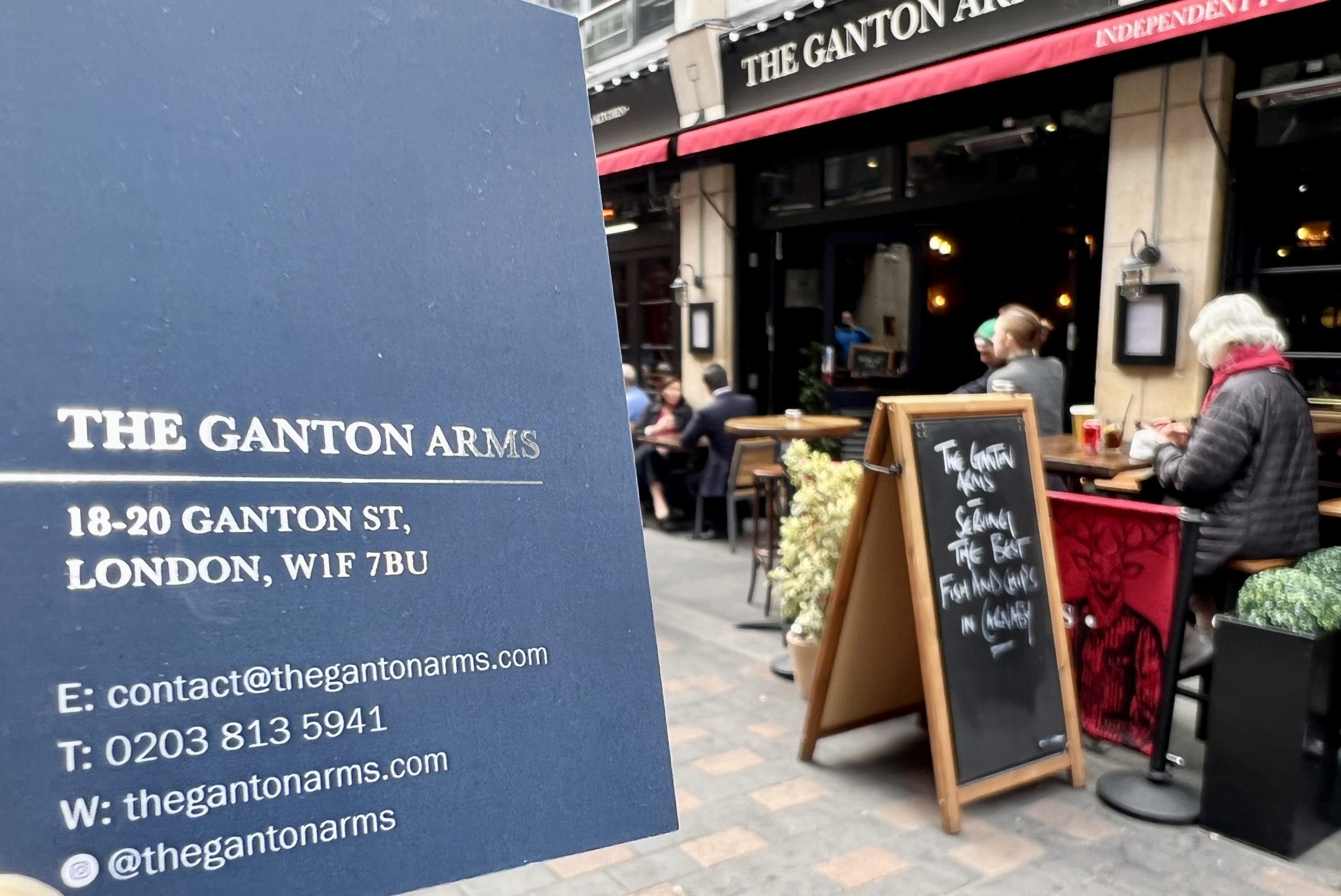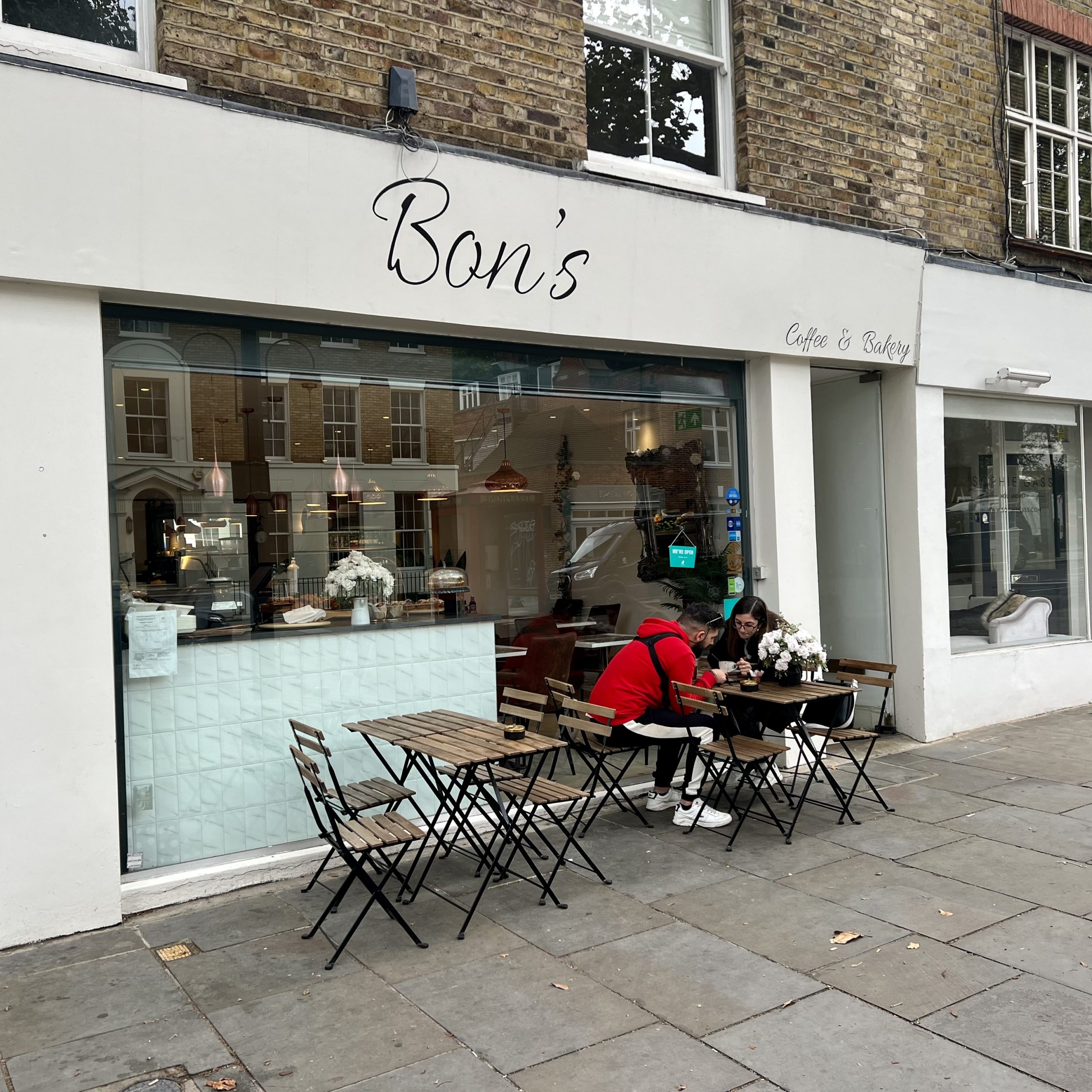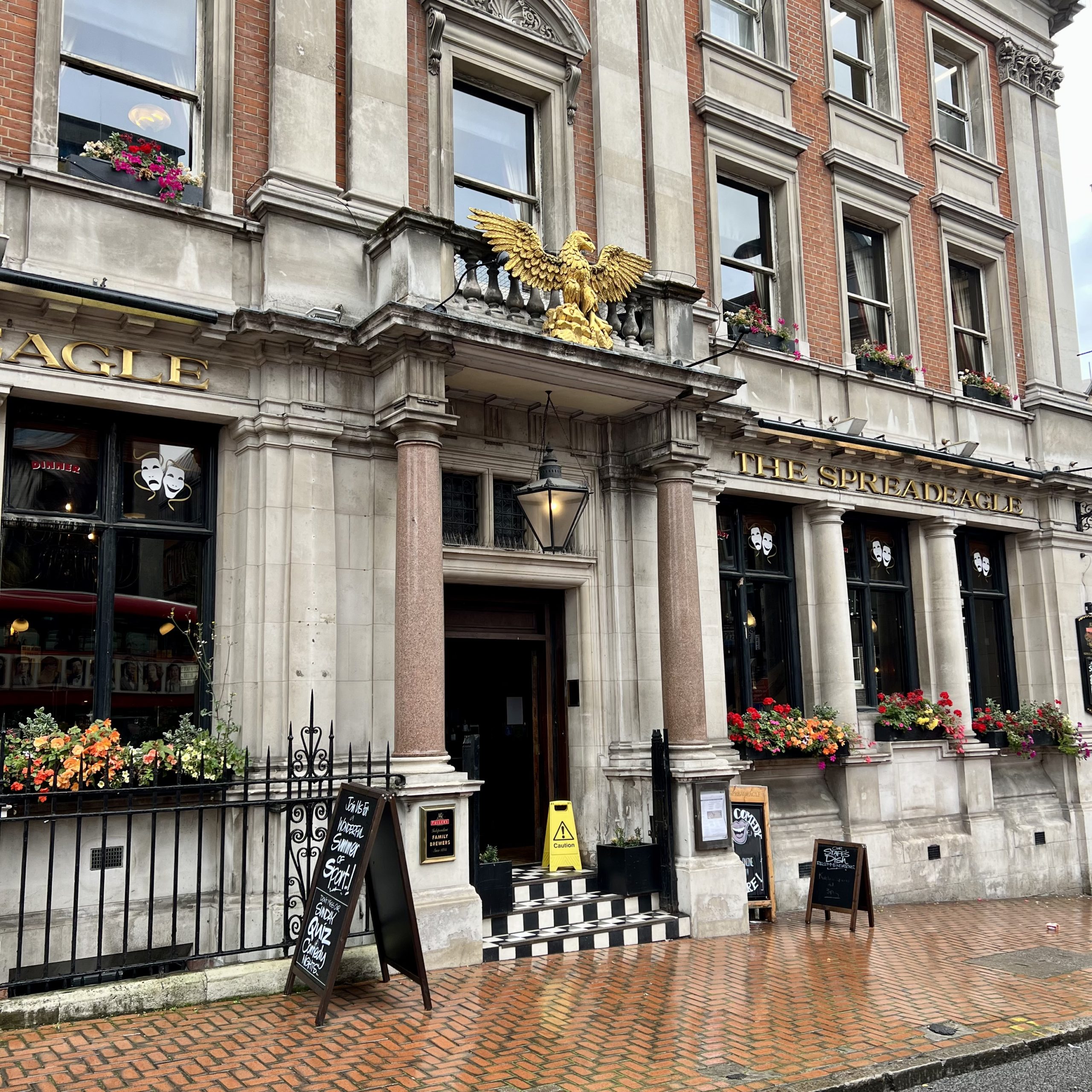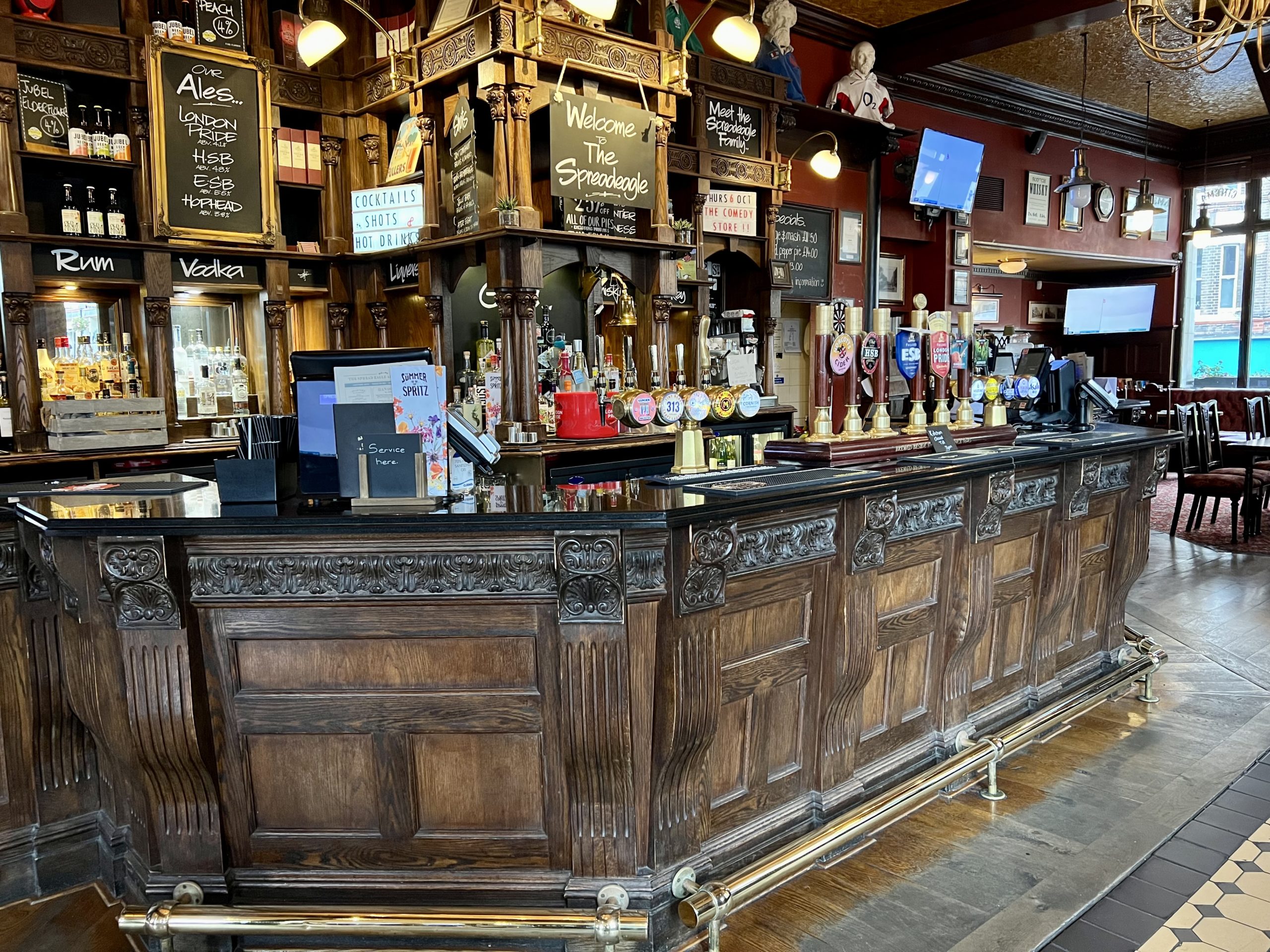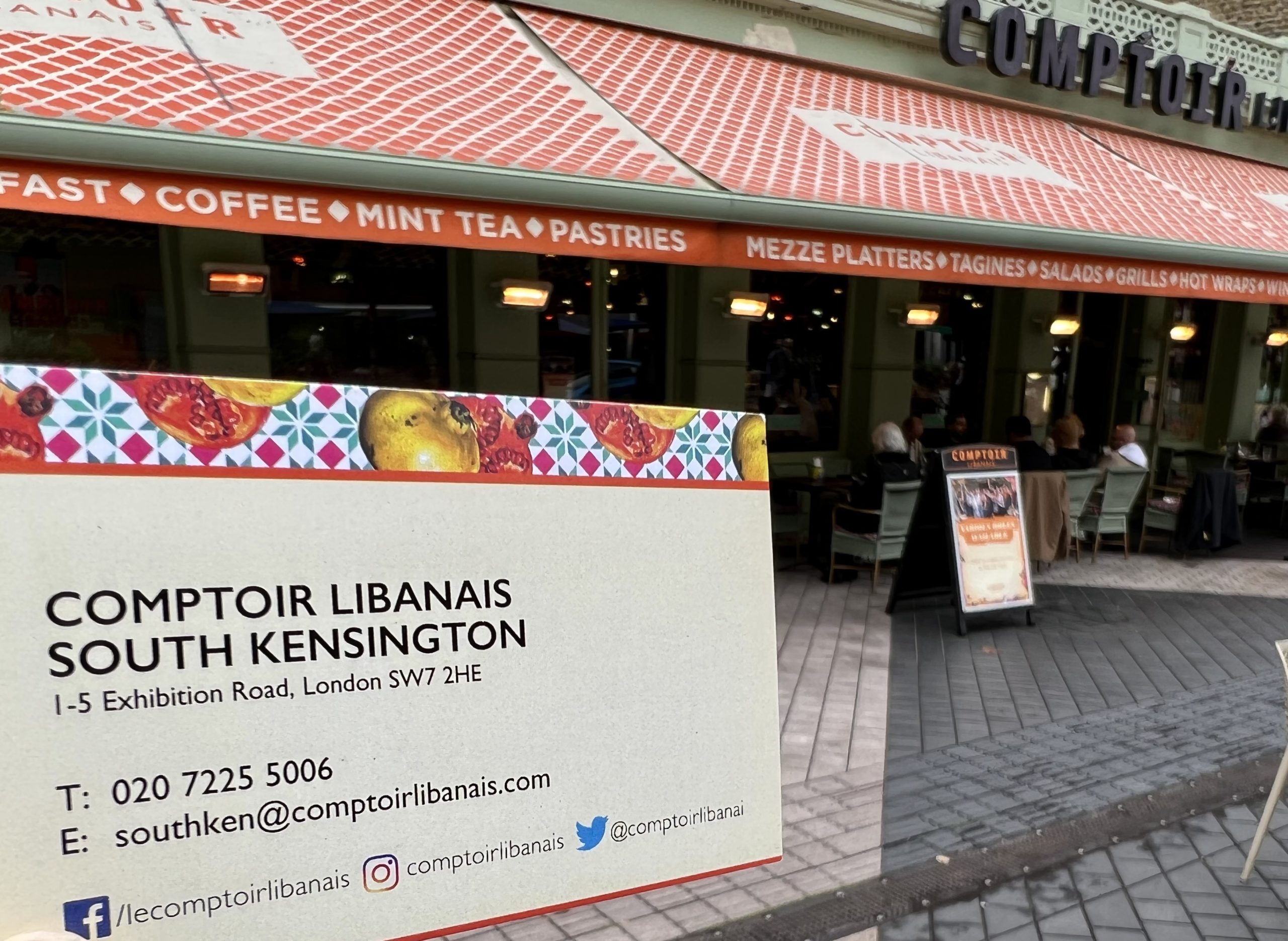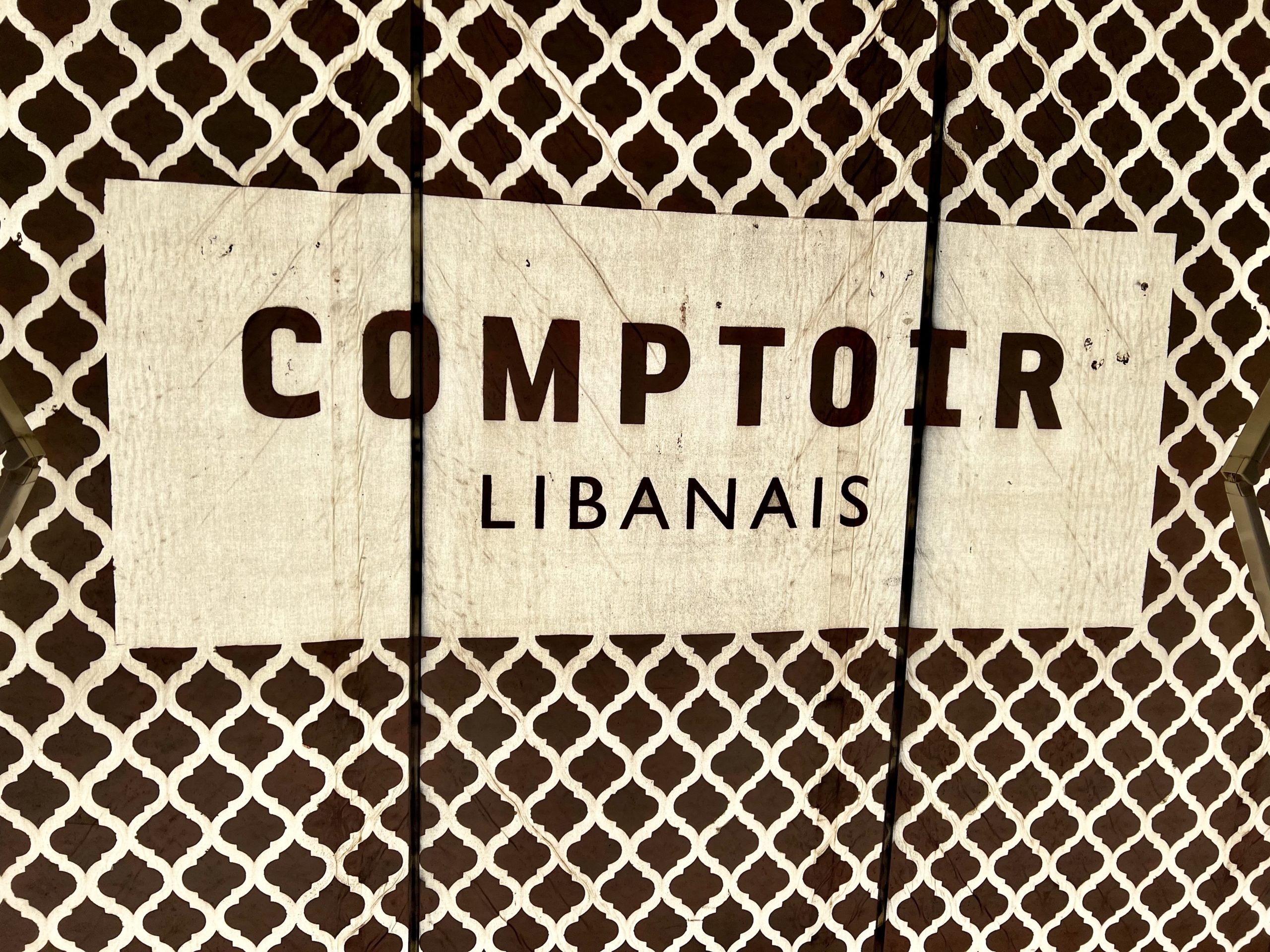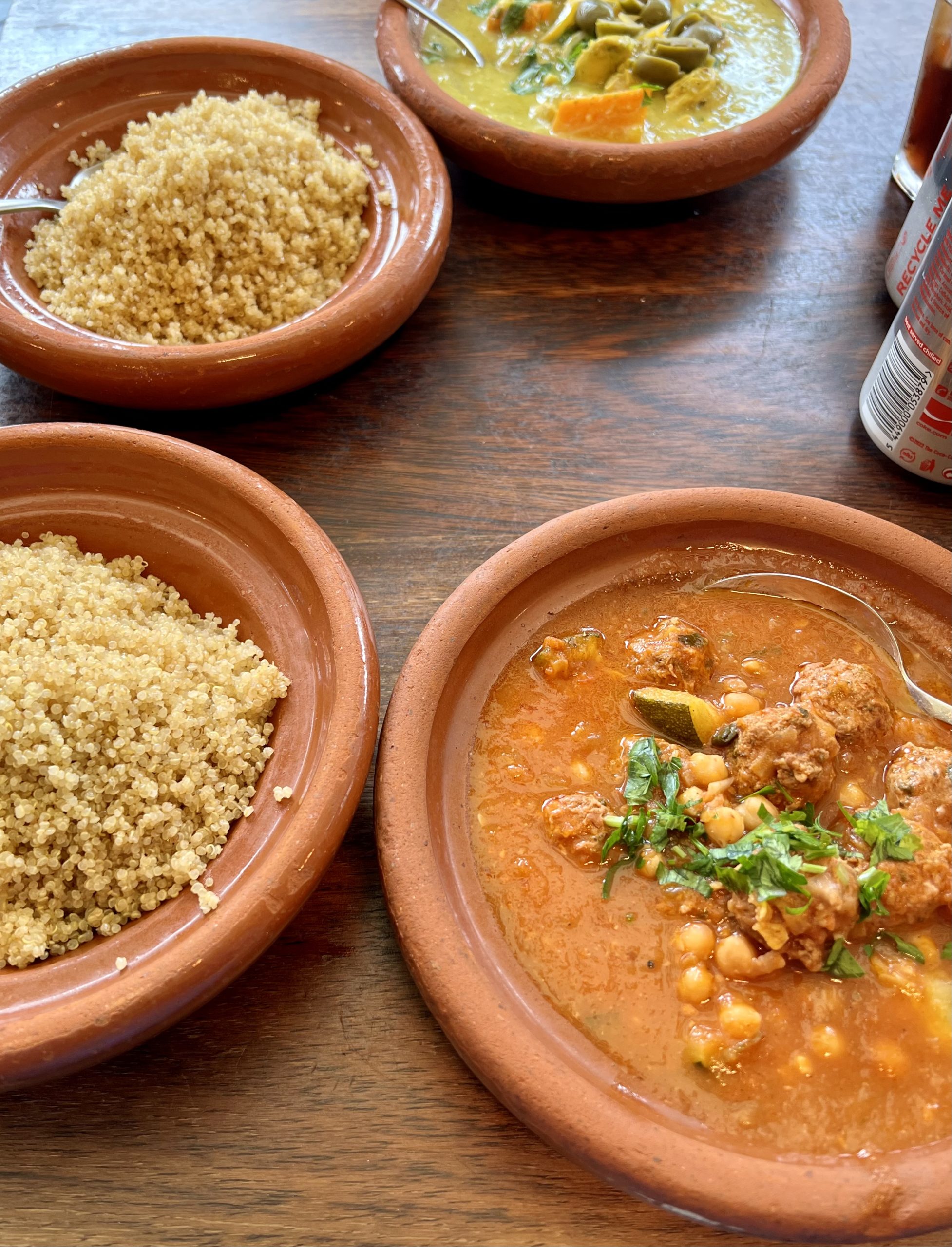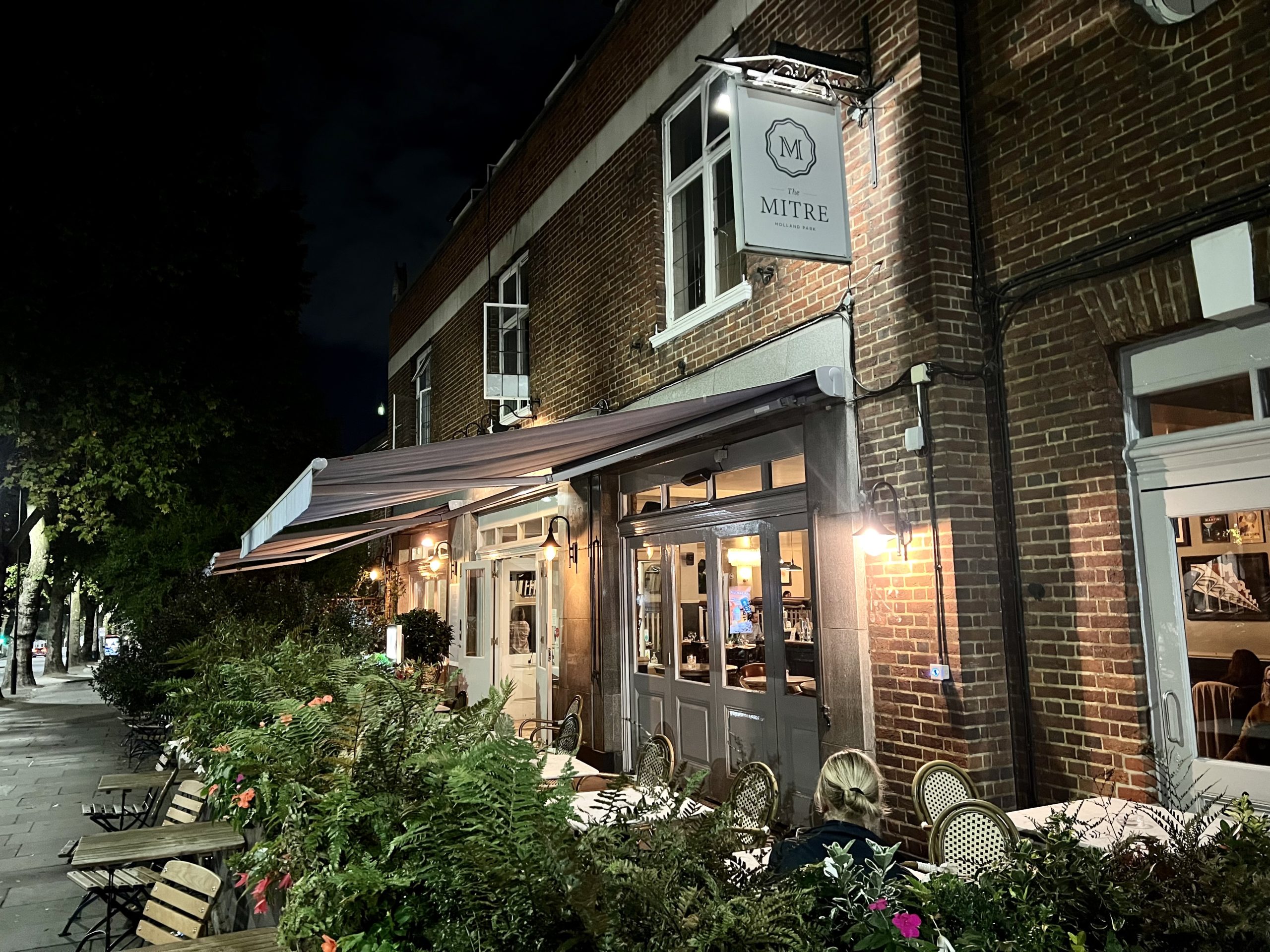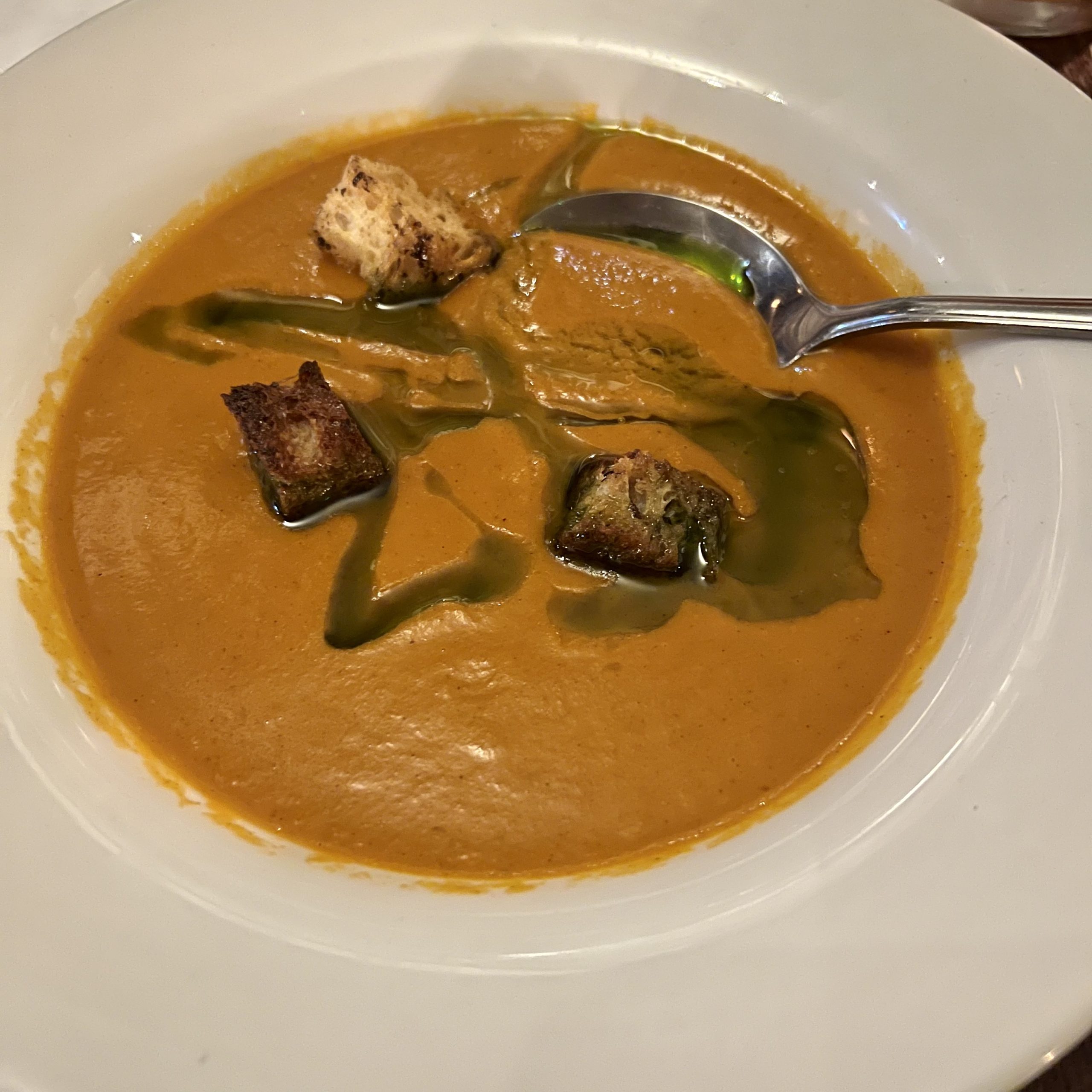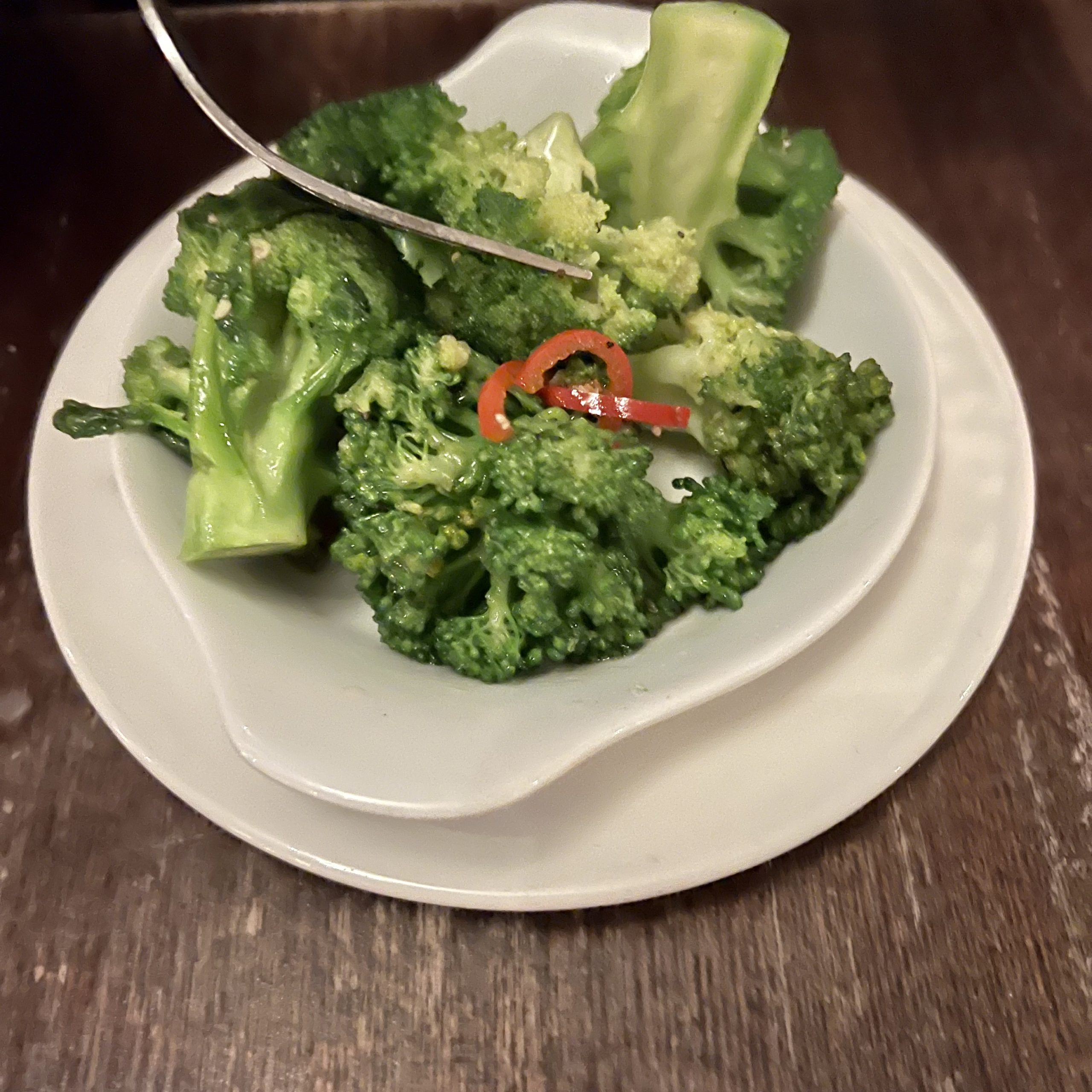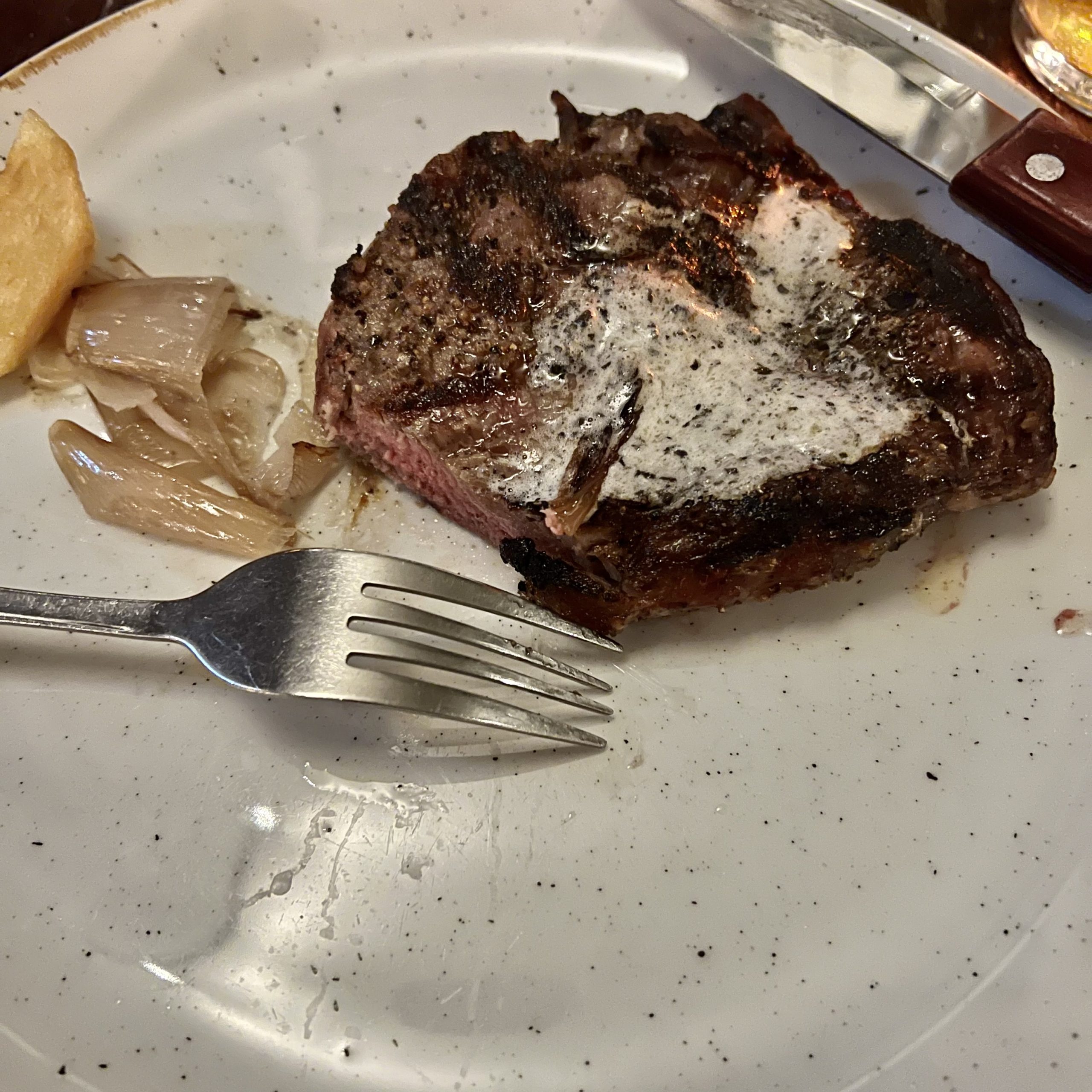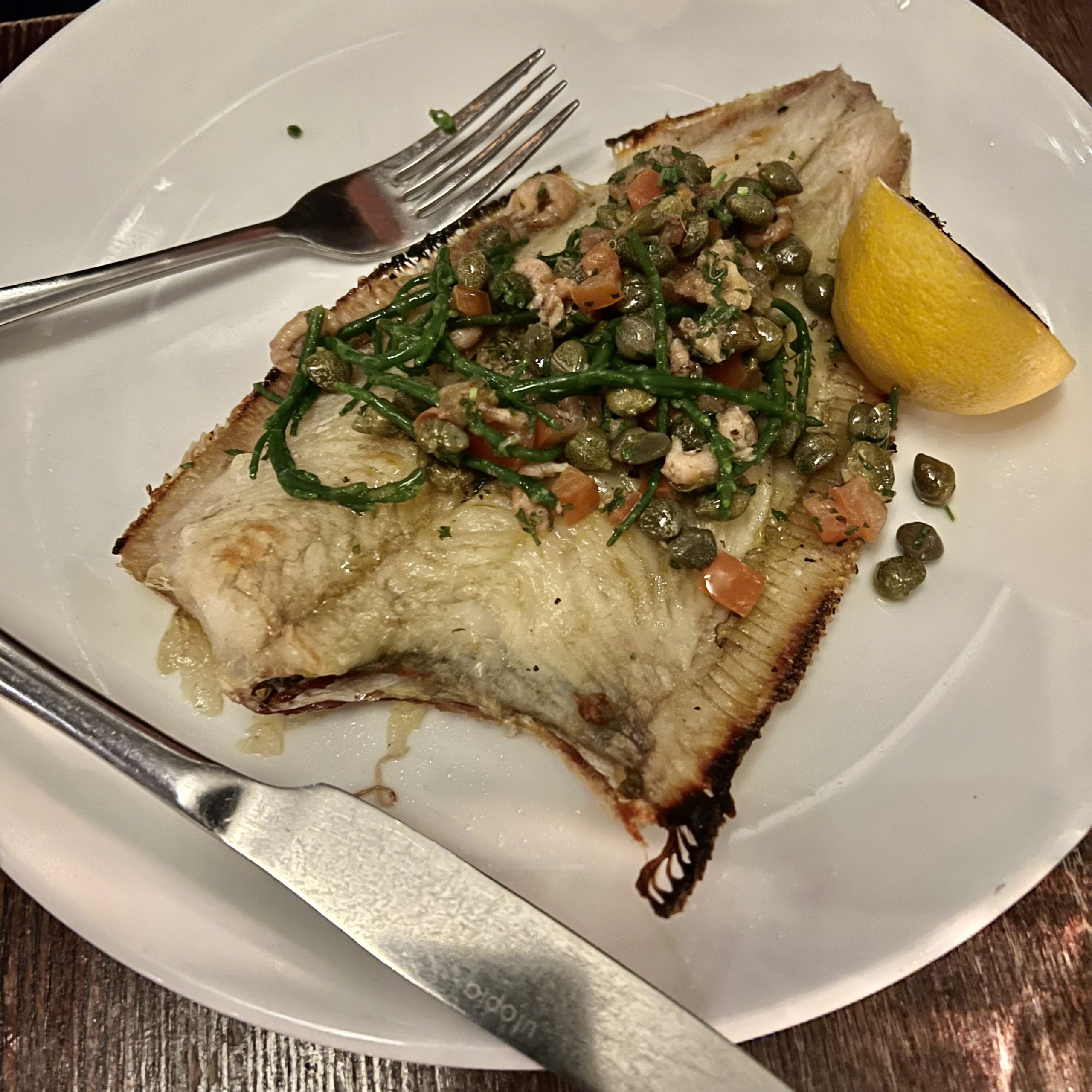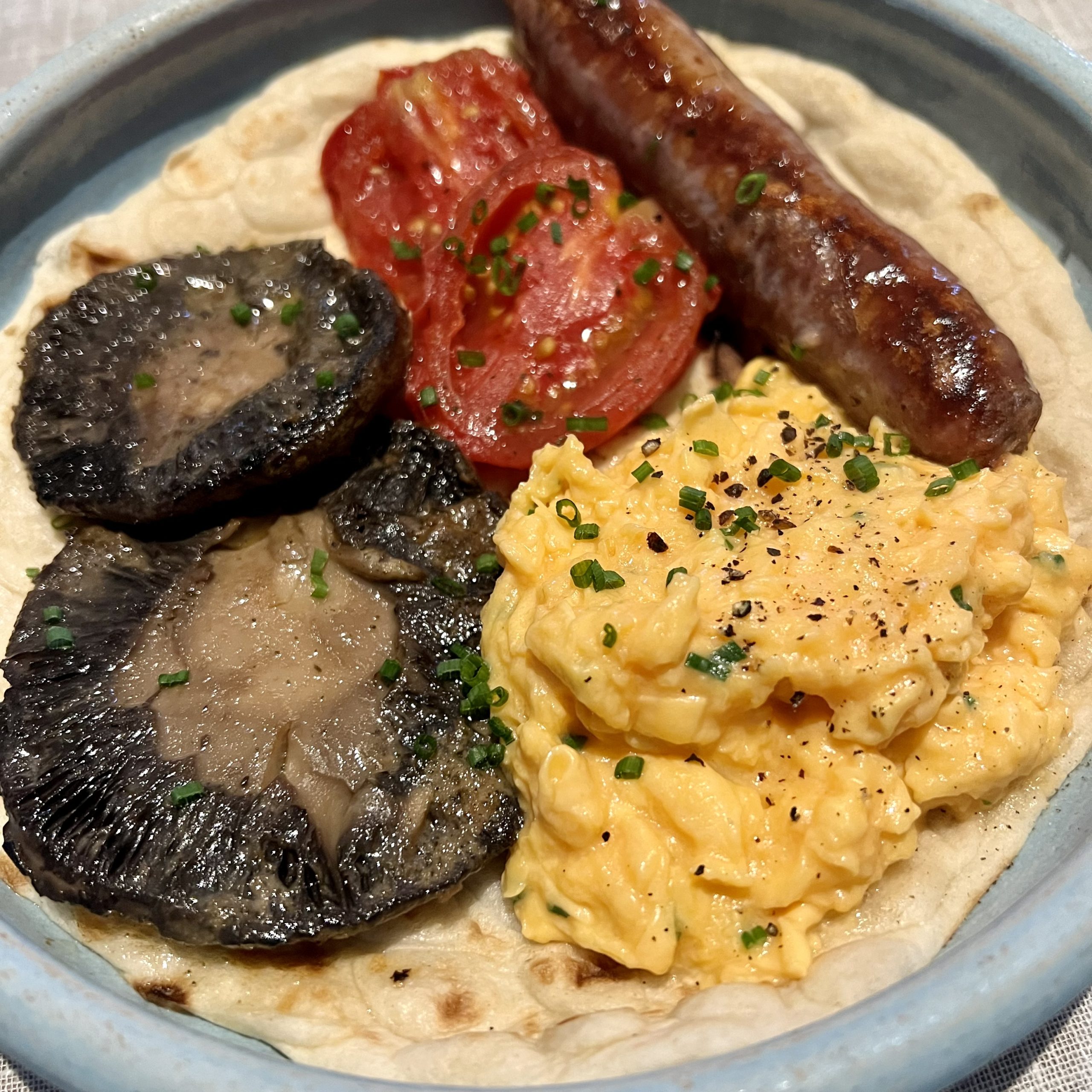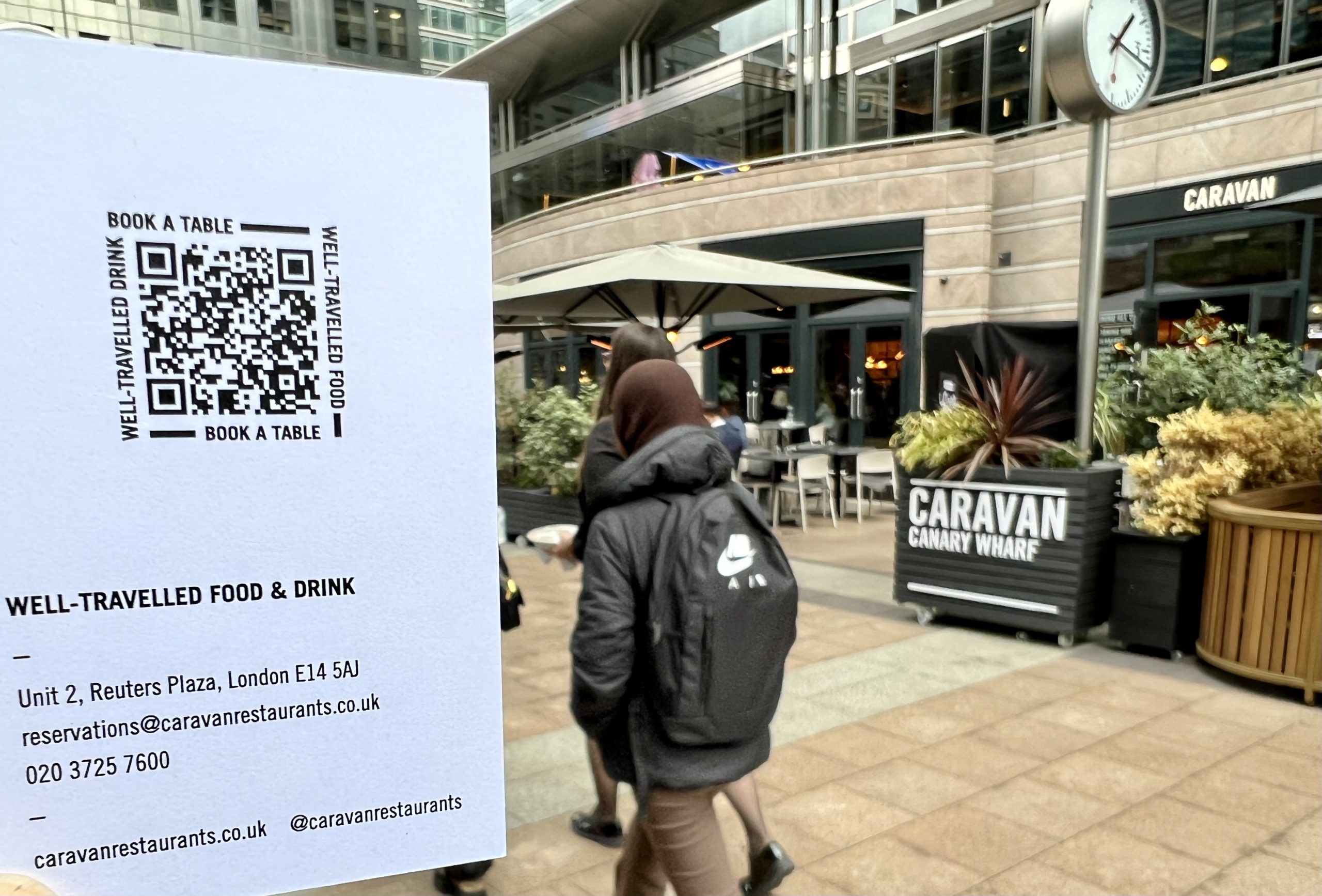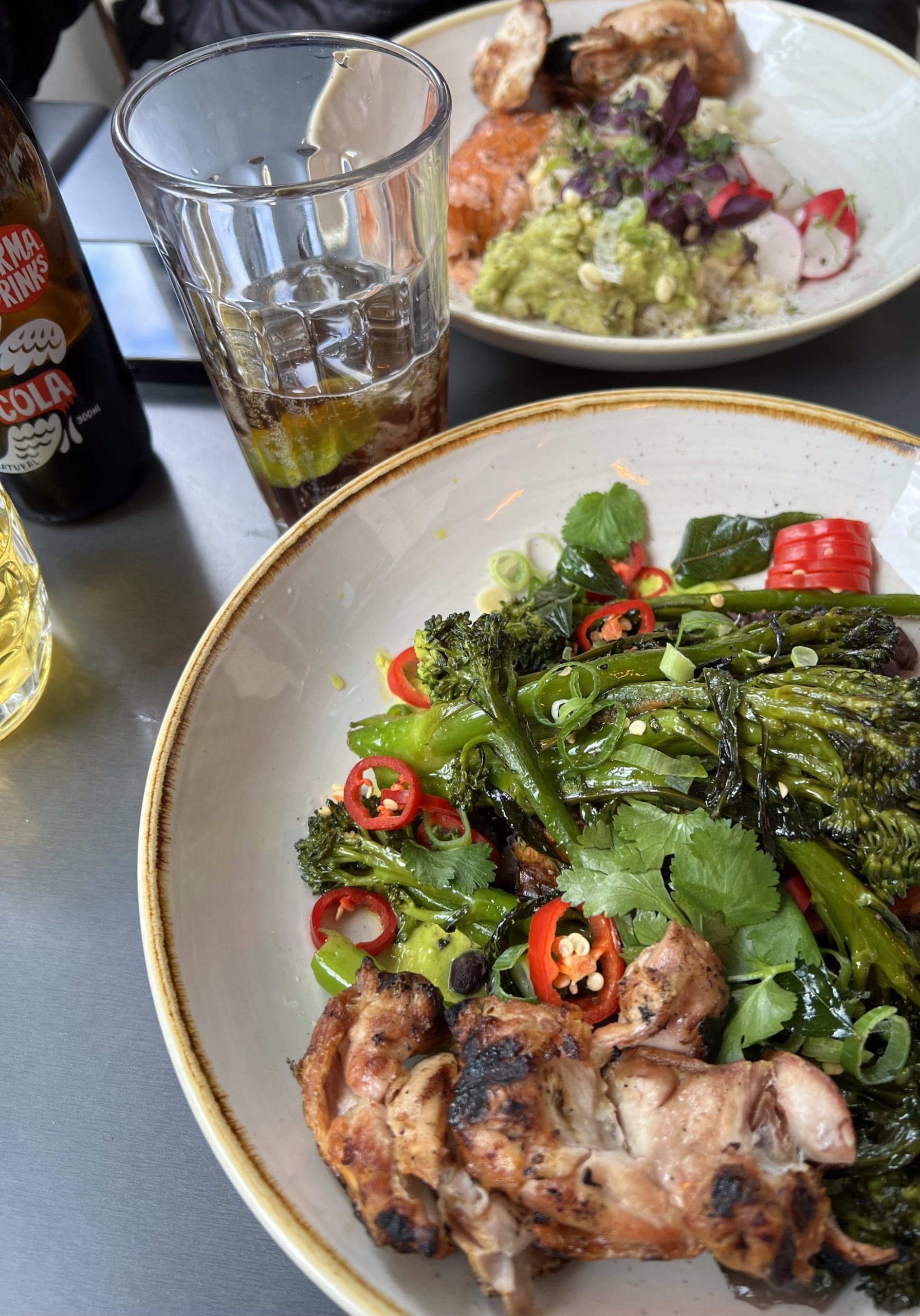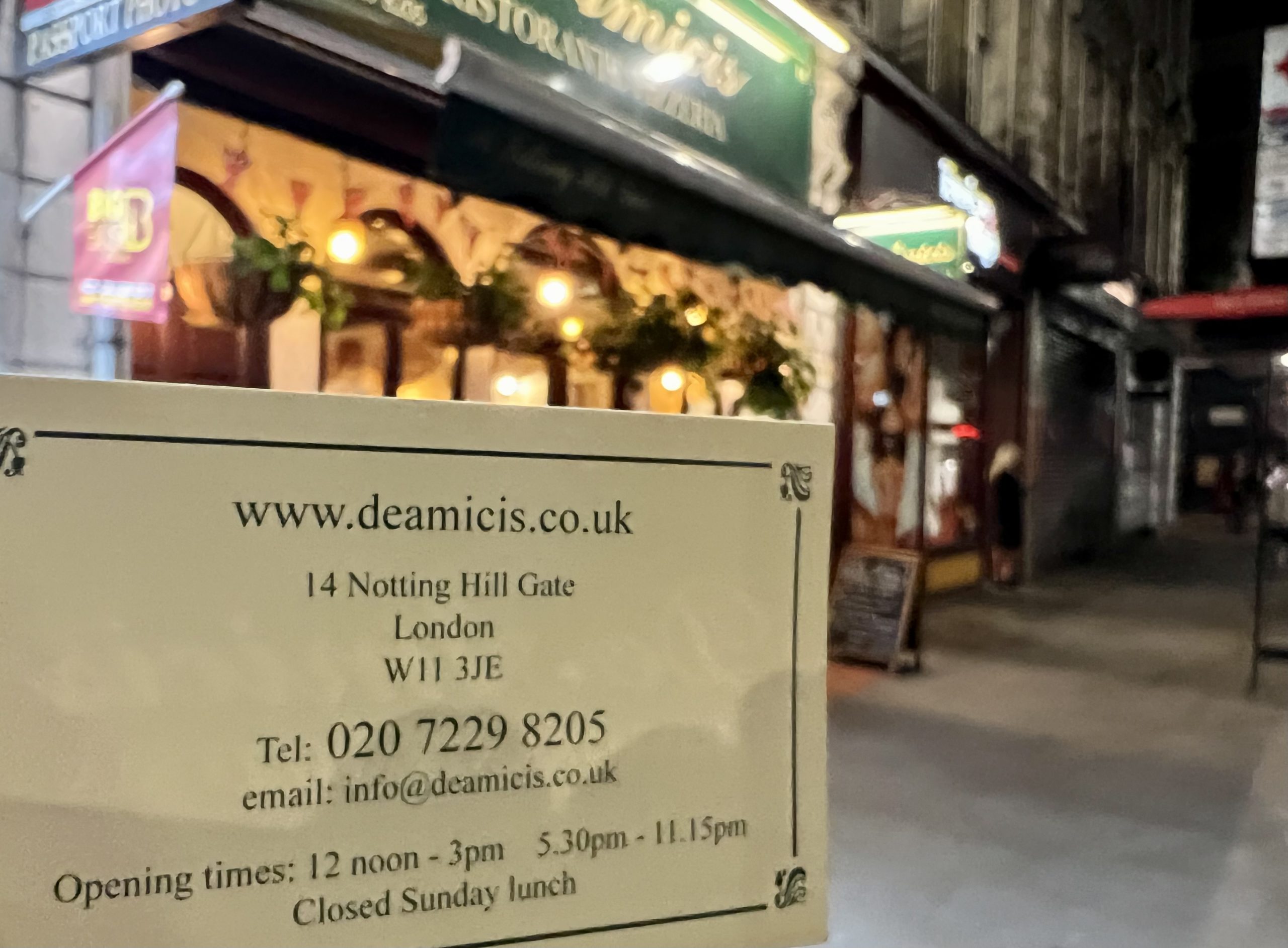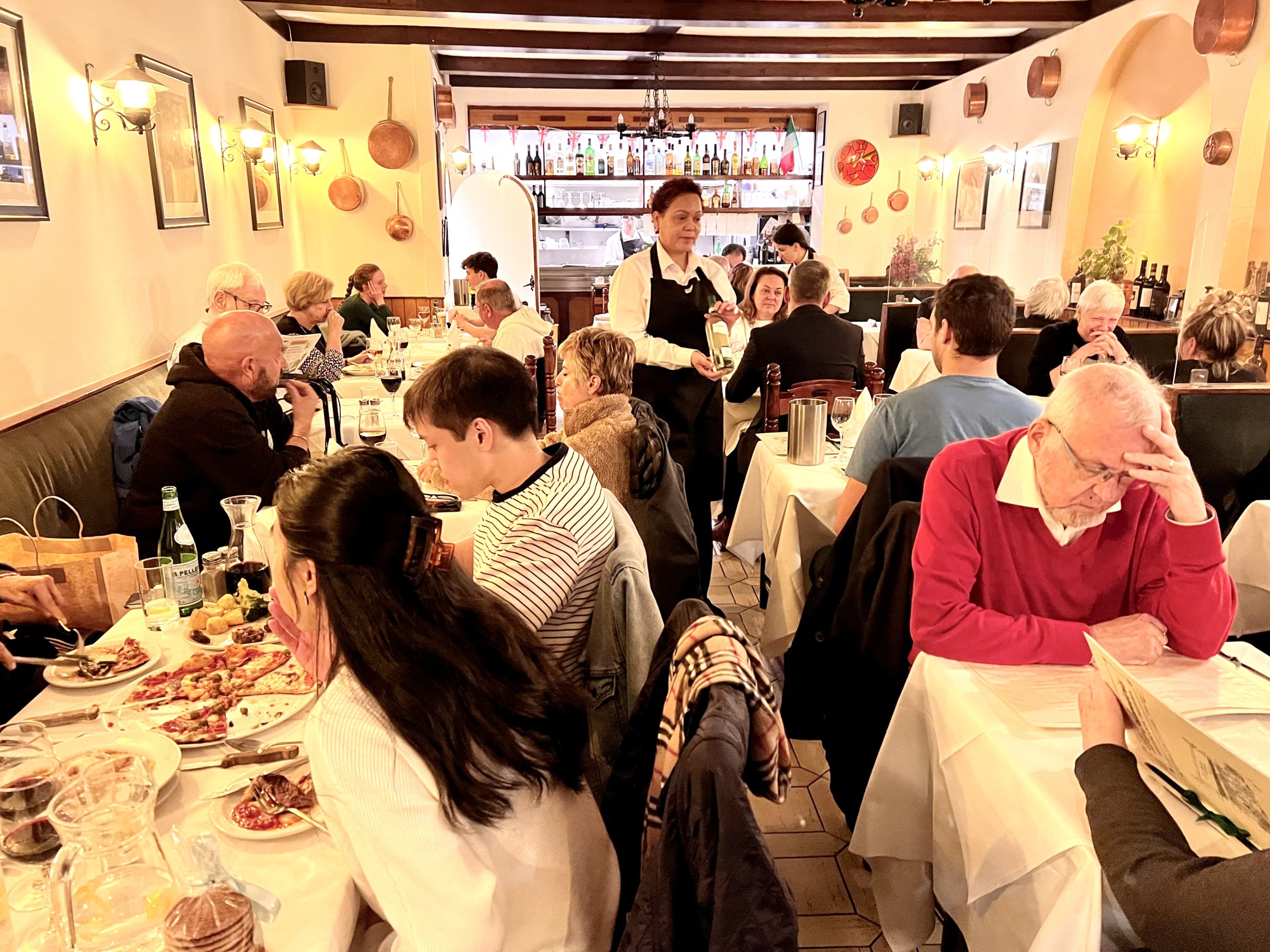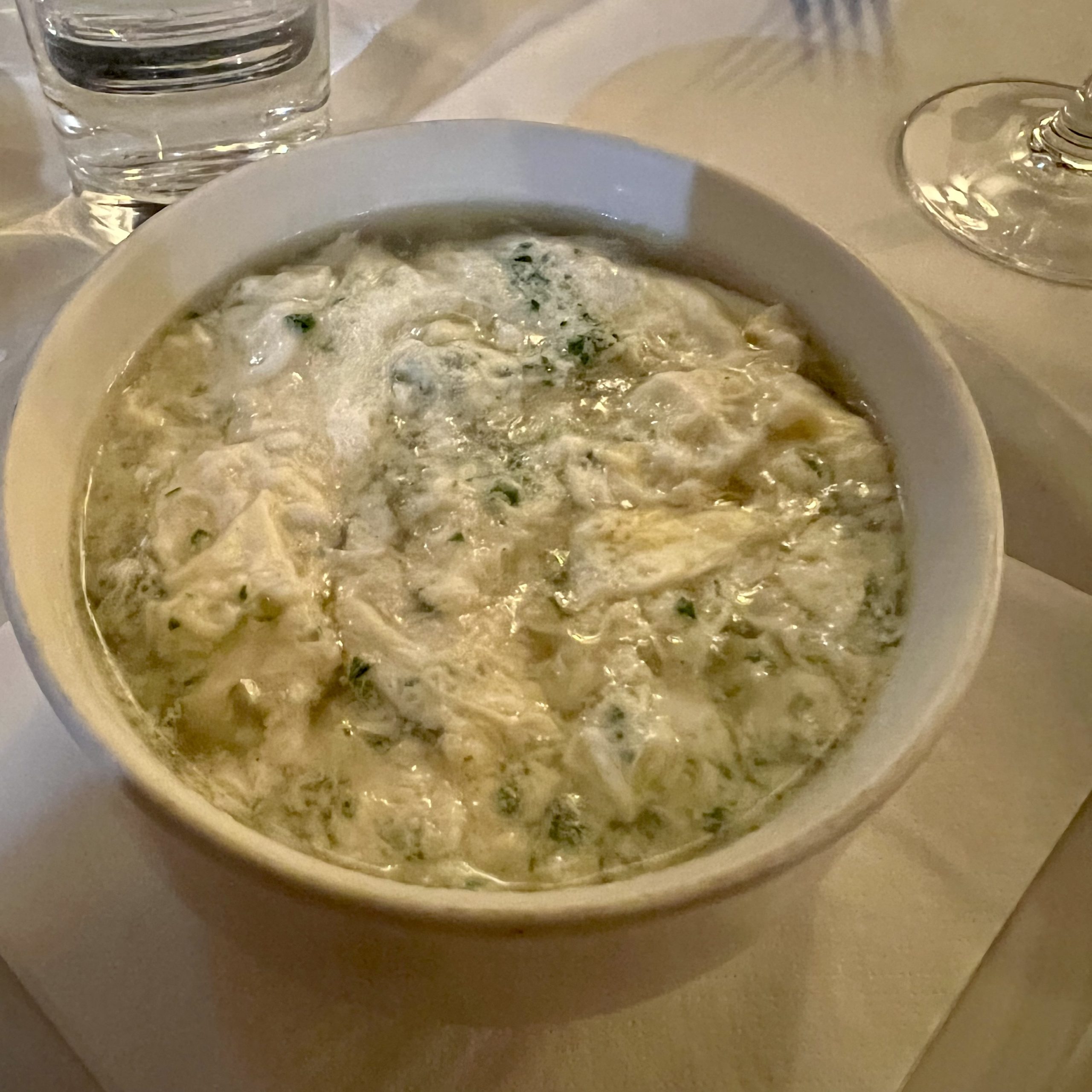25-28 September 2022.
We are packing a lot in this post, so sit down with your beverage of choice.
Bonnie continues to check off places marked on our London map and add new ones to visit. Two weeks doesn’t seem like enough time to explore everything we want to see. We are getting better using the tube. Only a few missteps. One thing about the tube, they often have several employees positioned near the turnstiles to answer questions, sometimes approaching us without our asking. So helpful. SF Muni should take a look at this.
The weather is suddenly colder. Although we see an occasional Brit in shorts and a t-shirt (after rugby practice?), we have started to layer with wool tops and down jackets. A few scarves are appearing, tastefully arranged on women and not so much on men. Many are plain grey, and they are clearly more for function than style. This isn’t Italy. The white sneakers women wore in the summer are giving way, mainly to black boots. All kinds. A few loafers, flats, and black “trainers” (sneakers).
The pubs still have outdoor tables, but most have heat lamps. The young crowd still in their business attire gather there early evening for their pint of lager or glass of wine. Soon, they spill out onto the street with their drinks in hand. The volume rivals that of French bistros if not louder, each person trying to be heard above the other. We now understand that dinner time for the Brits is around 7:00 to 7:30. If you arrive at later, all the tables are occupied or reserved.
Unlike San Francisco, London has beautiful clouds and changeable weather. We check the weather forecast frequently, and it is always shifting. Tuesday rain and cold. Then again, maybe not. Even in the course of a single day we go from being chilled to overheated. But the clouds are stunning. So much more depth and detail than we see in San Francisco.
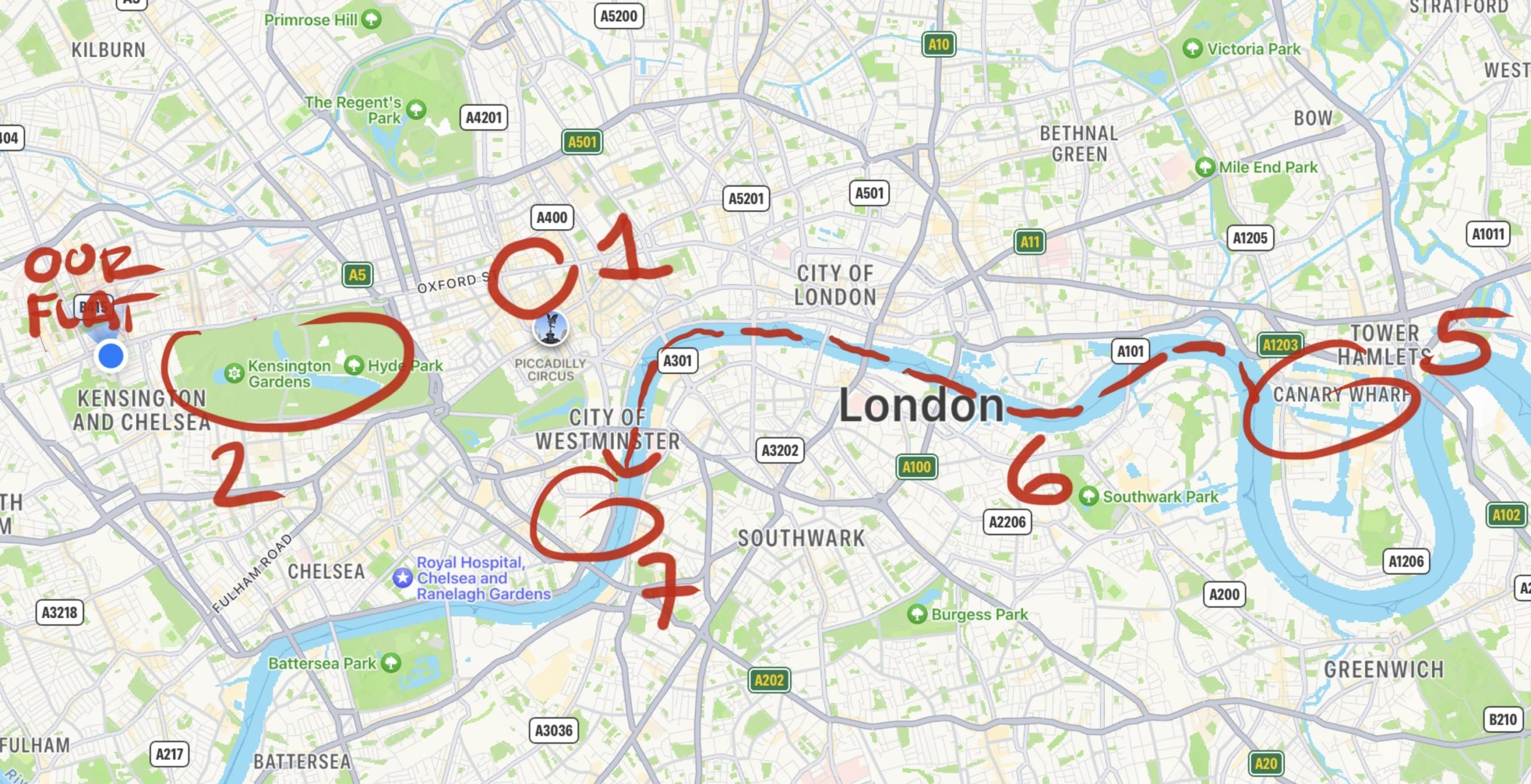
25 September 2022
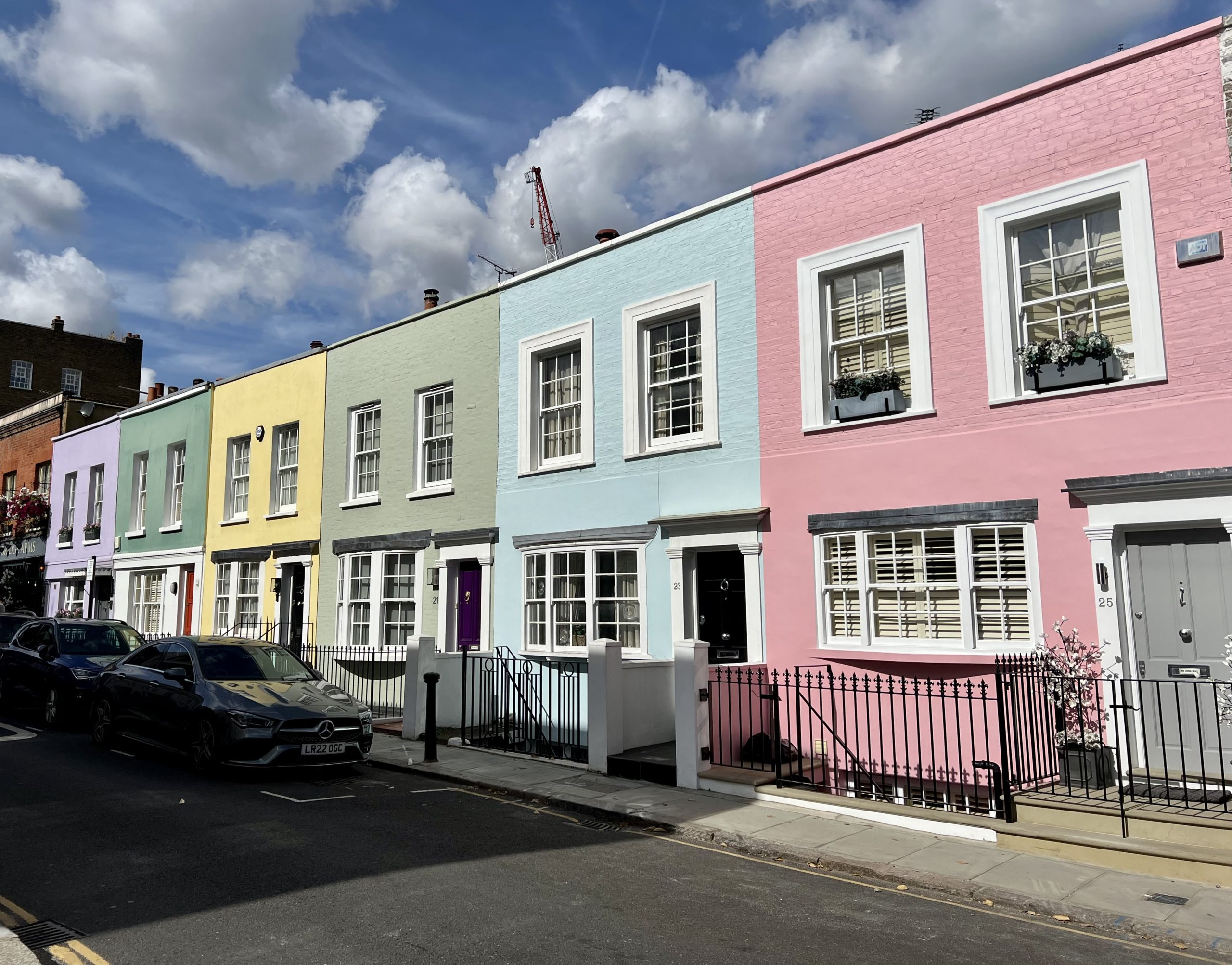
Liberty (Department Store)
Robert remembers shopping for his mom at Liberty. Not sure if it was fabric or tea cups that he brought home. Liberty’s Tudor-style building constructed in 1924 is close to the Oxford Circus tube station. It is still delightful, and the selection of printed fabrics is amazing. Founded in 1875, Liberty has focused on art and culture, leading and promoting fashions of the time. It strongly encouraged Art Nouveau design in its sales and exported heavily to Italy. The Italians related the Art Nouveau style to the department store so much that in Italy, Art Nouveau is called Liberty. Who knew!
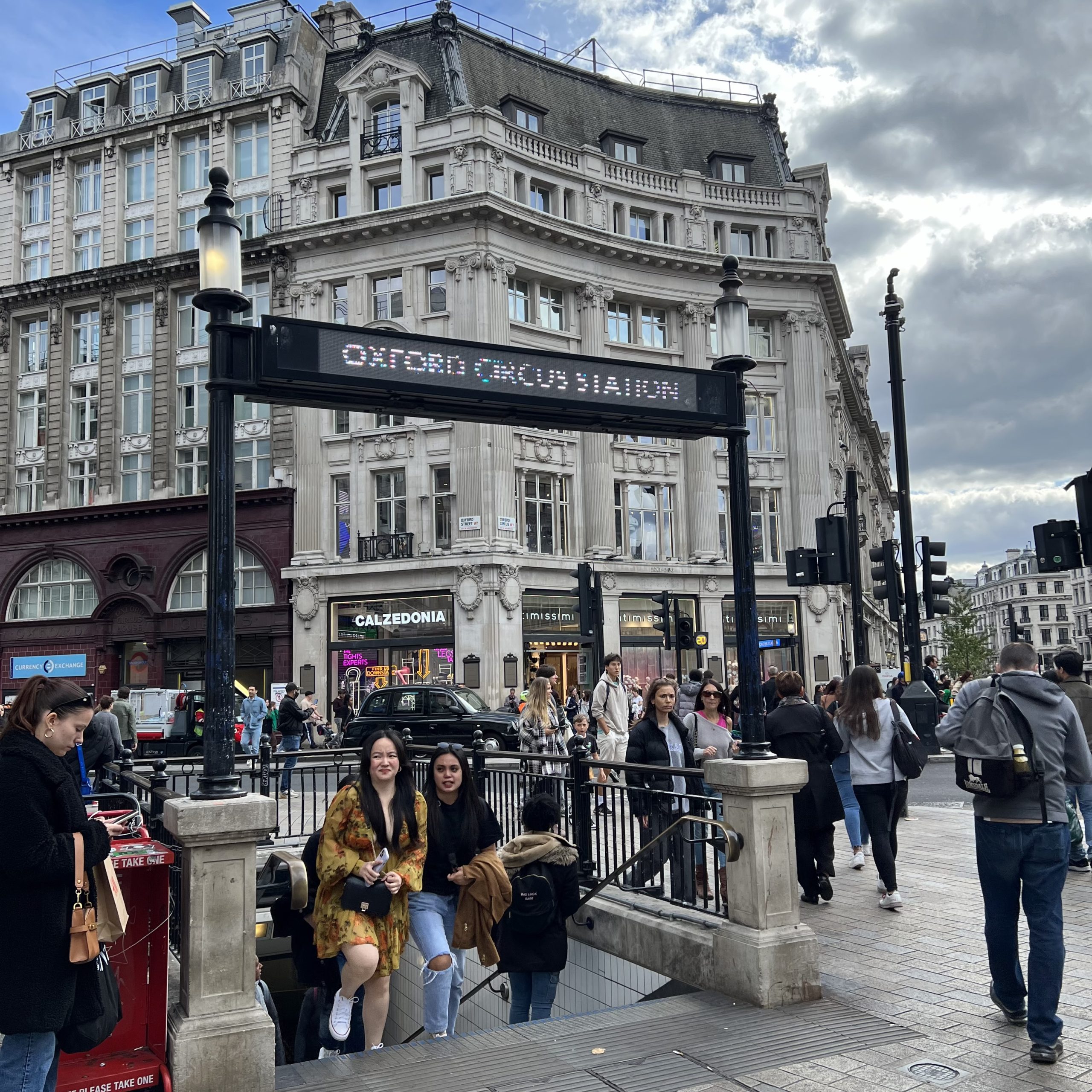
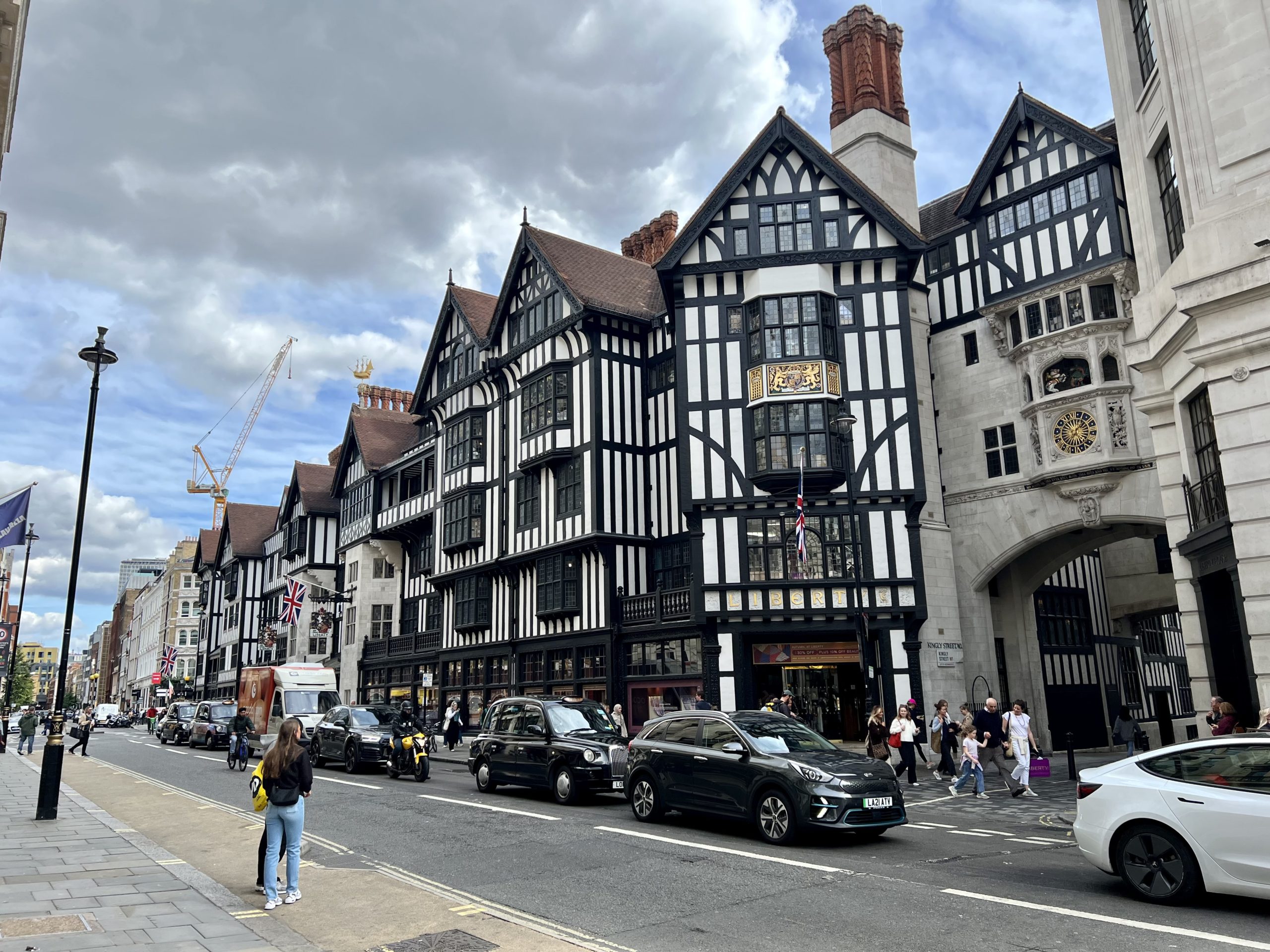
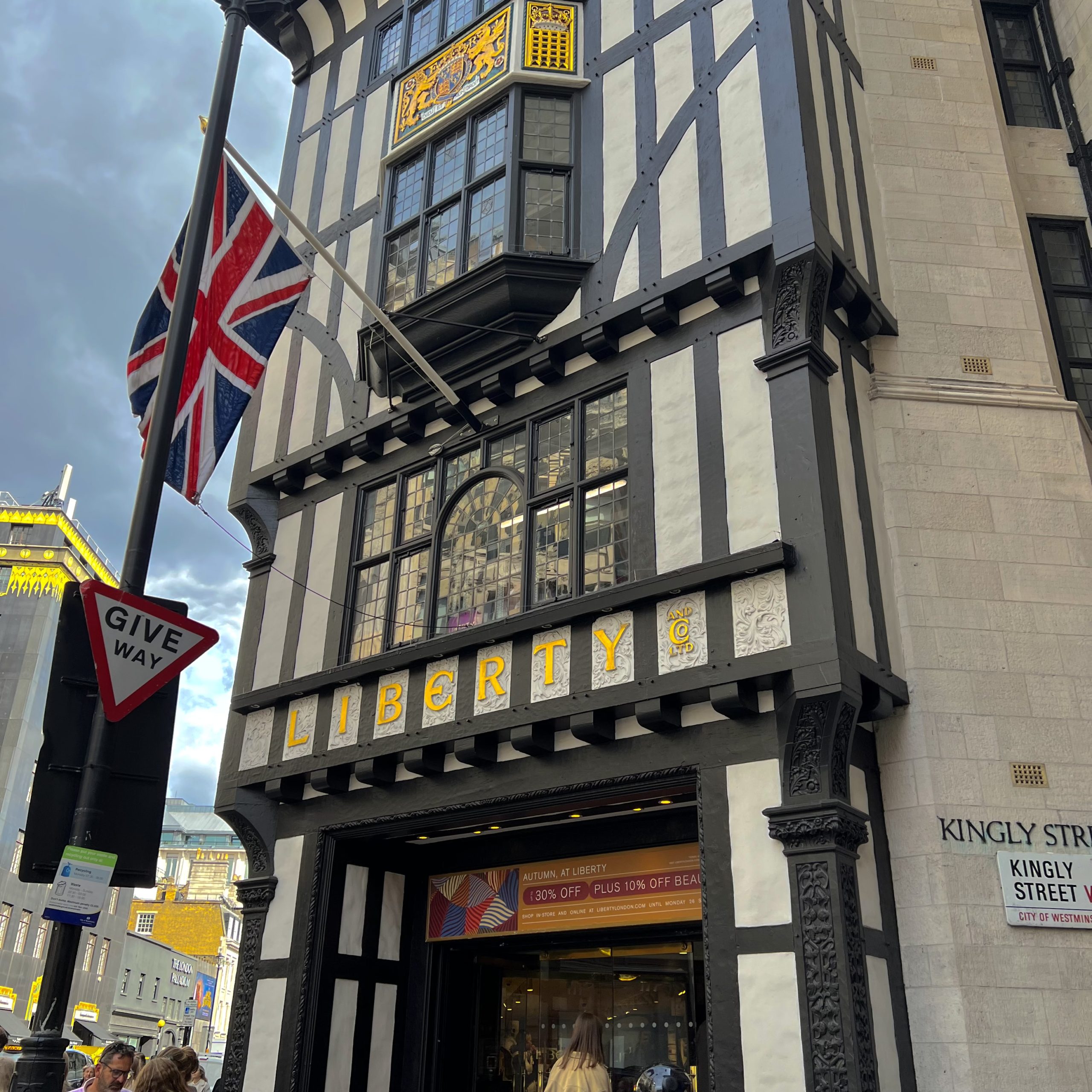
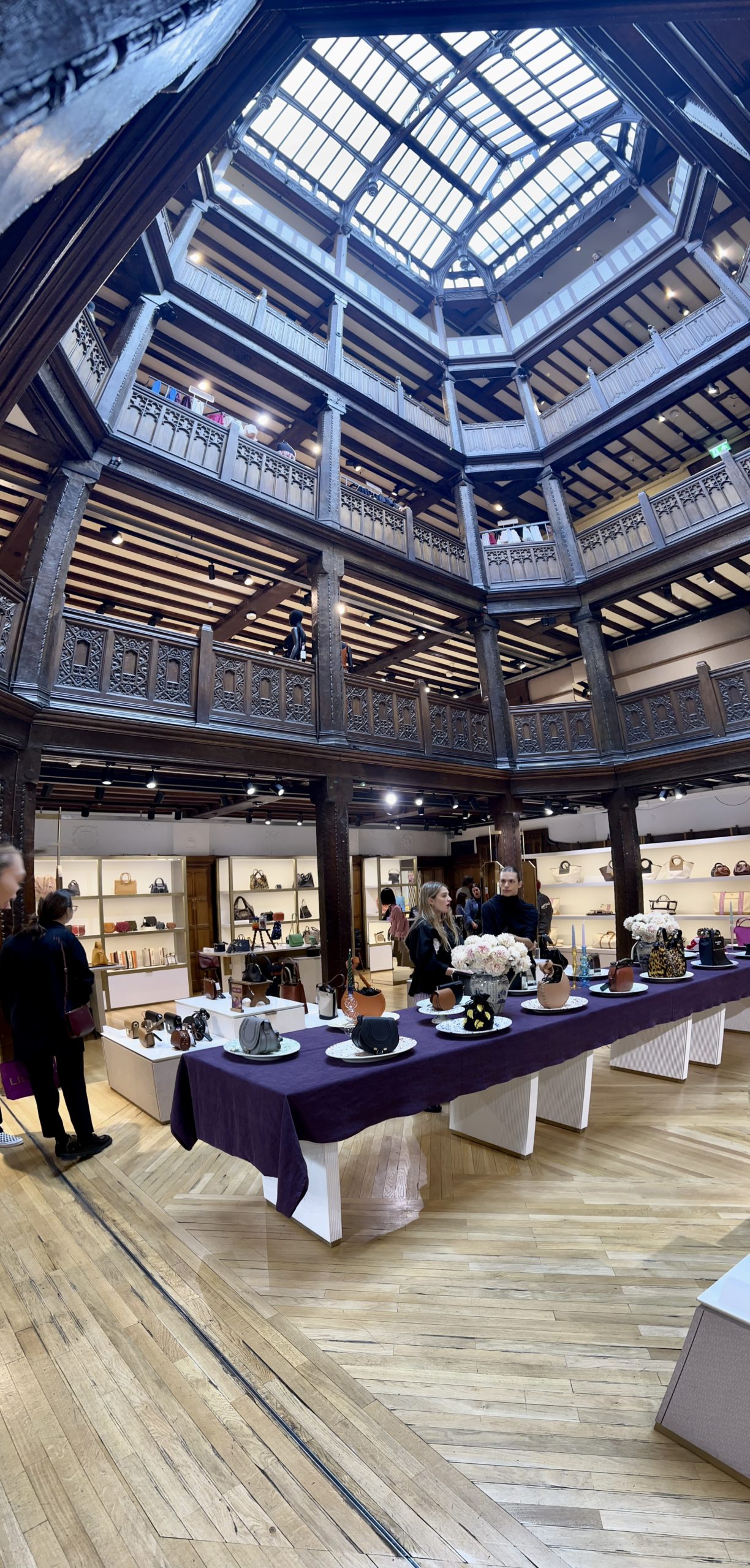
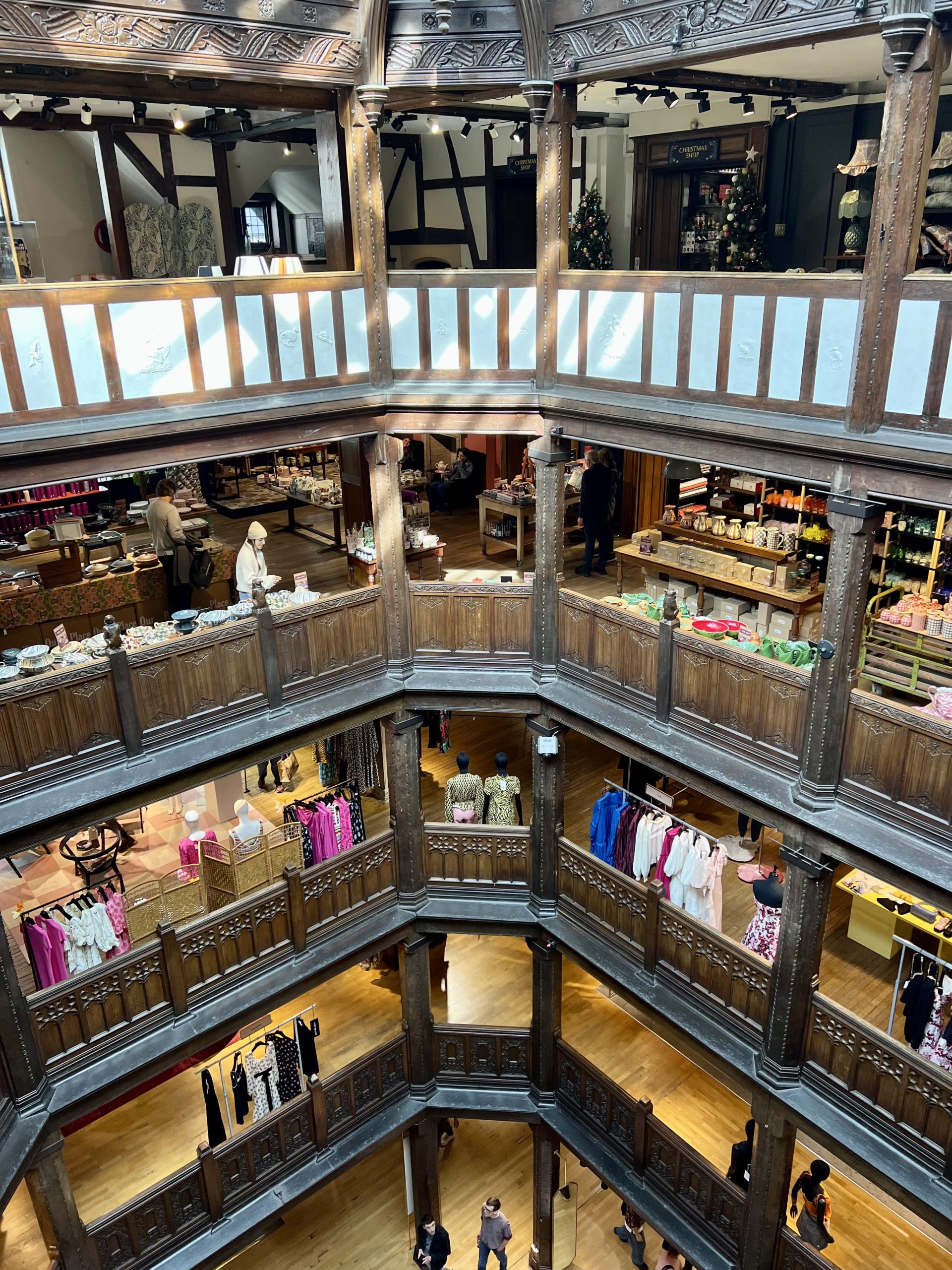
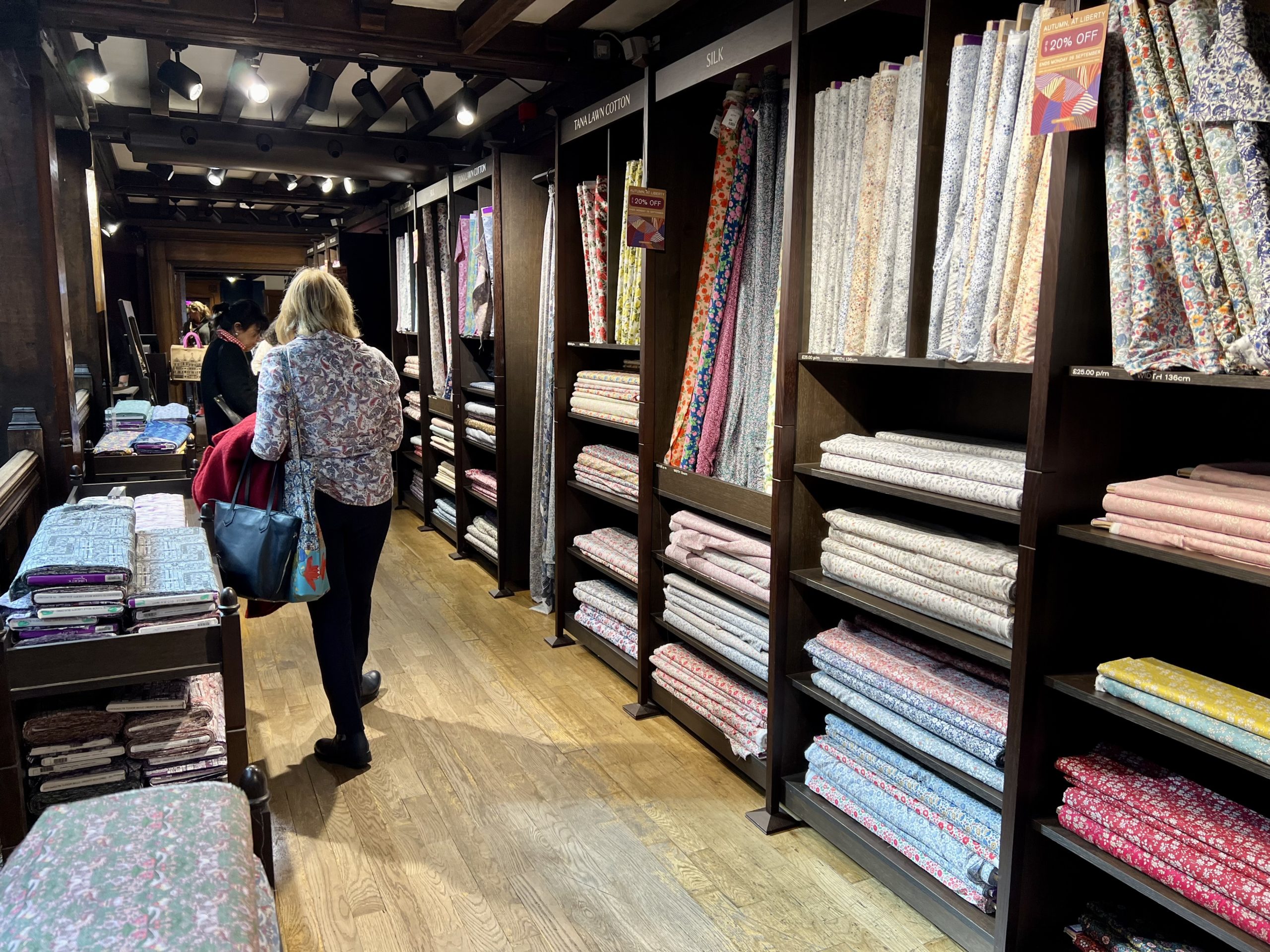
More Wanderings
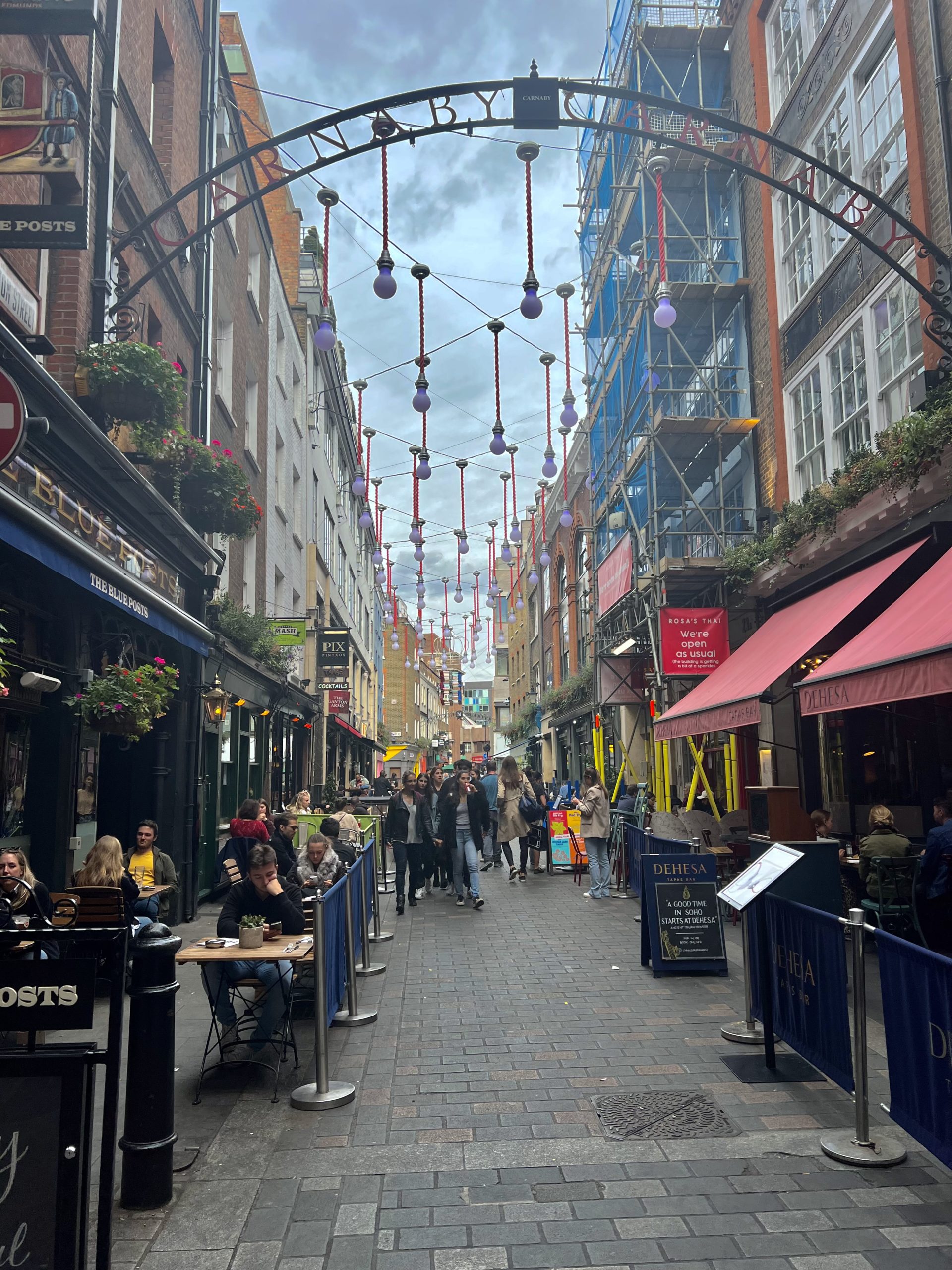
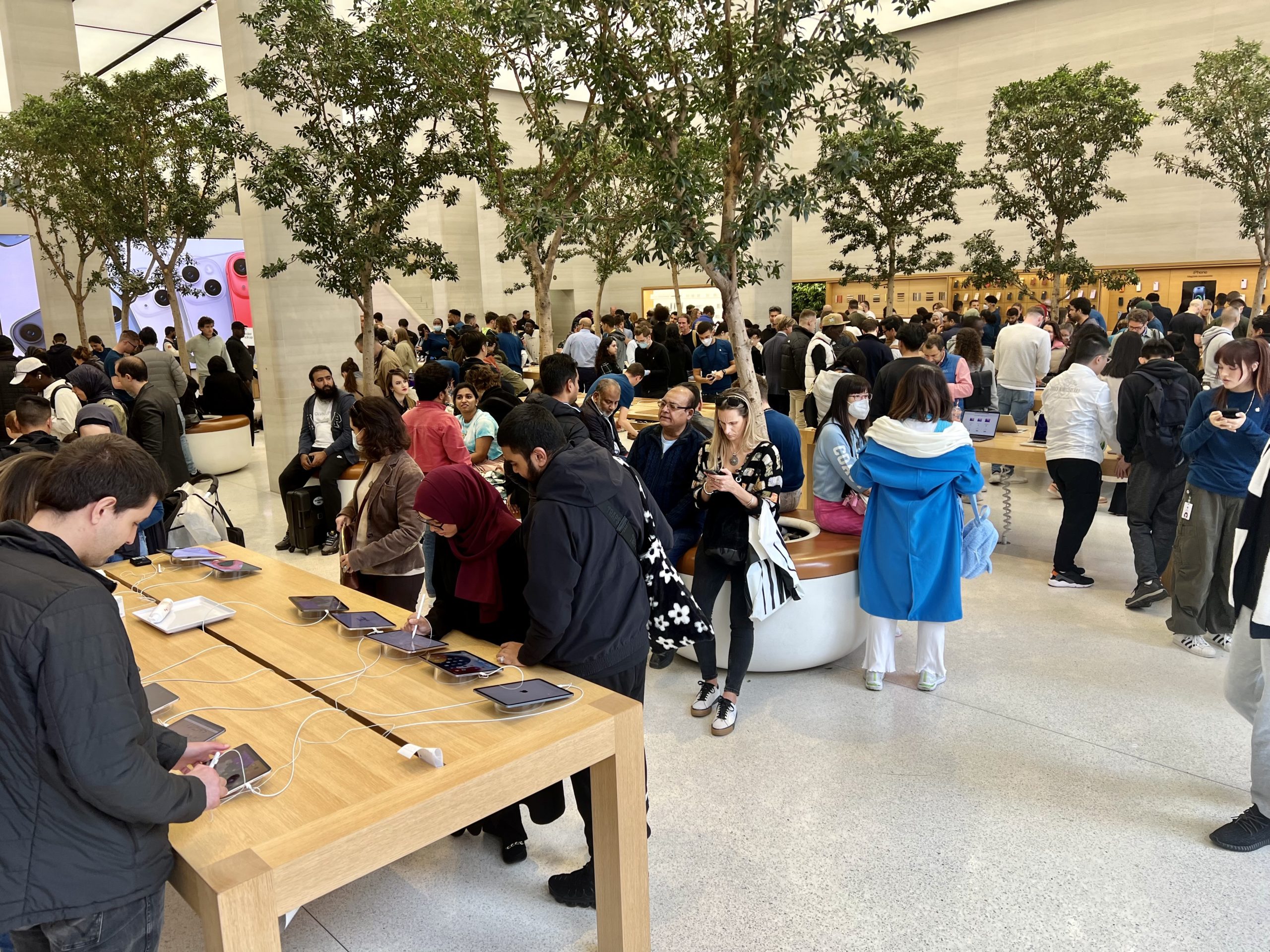
Kensington Gardens
We planned the walk back to our flat through Kensington Gardens. The 265-acre park was once the private garden of Kensington Palace, a small residential compound for members of the royal family. We started our walk at the Marlborough tube station, taking the diagonal walk that leads to the Round Pond and the Black Lion Gate. It was early evening with the park visited by families, couples walking dogs, and people sitting on benches reading a book or enjoying the view. Enormous mature London plane trees dominate the landscape, mostly covered in lawn. Completely refreshing.
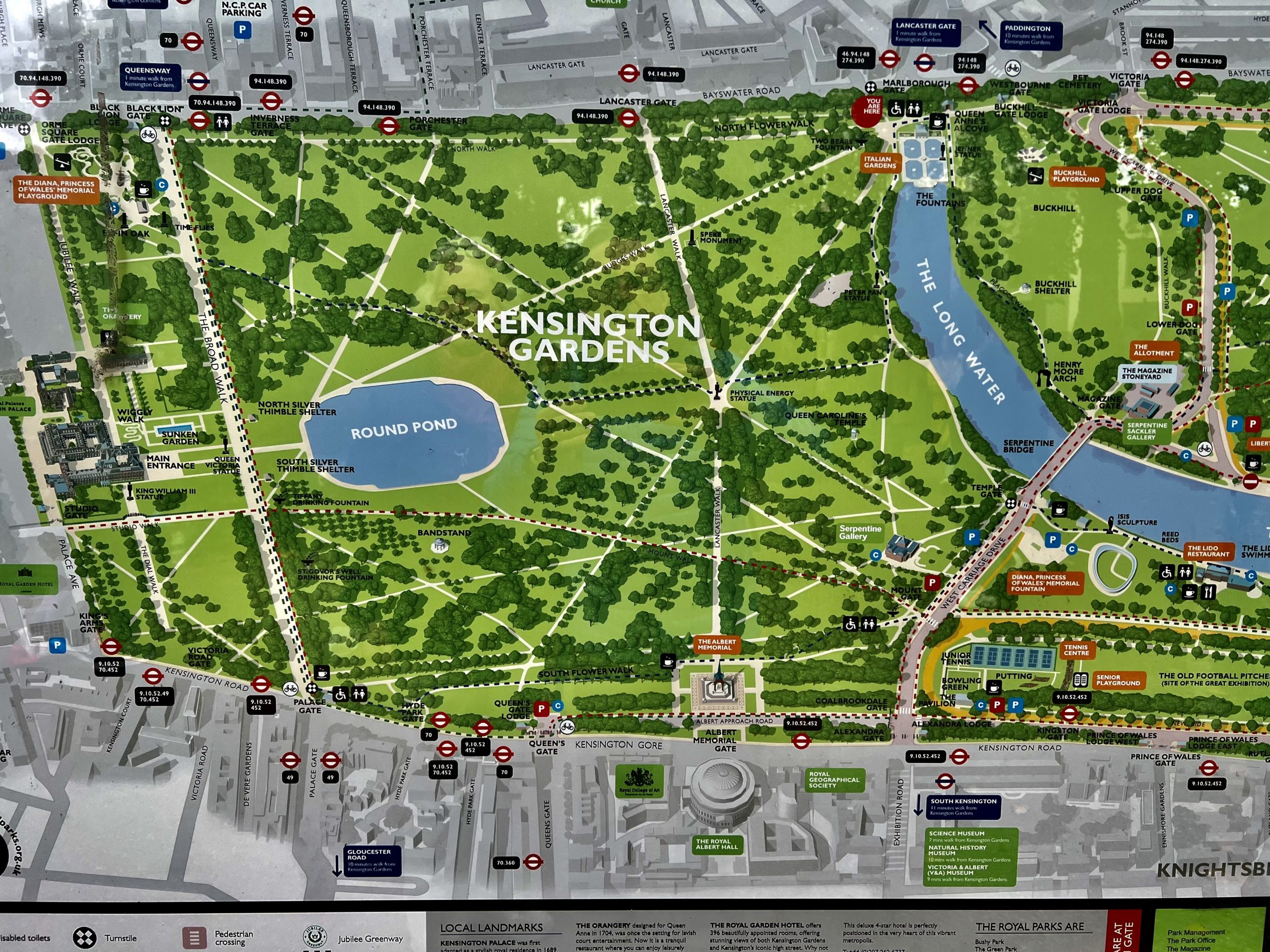
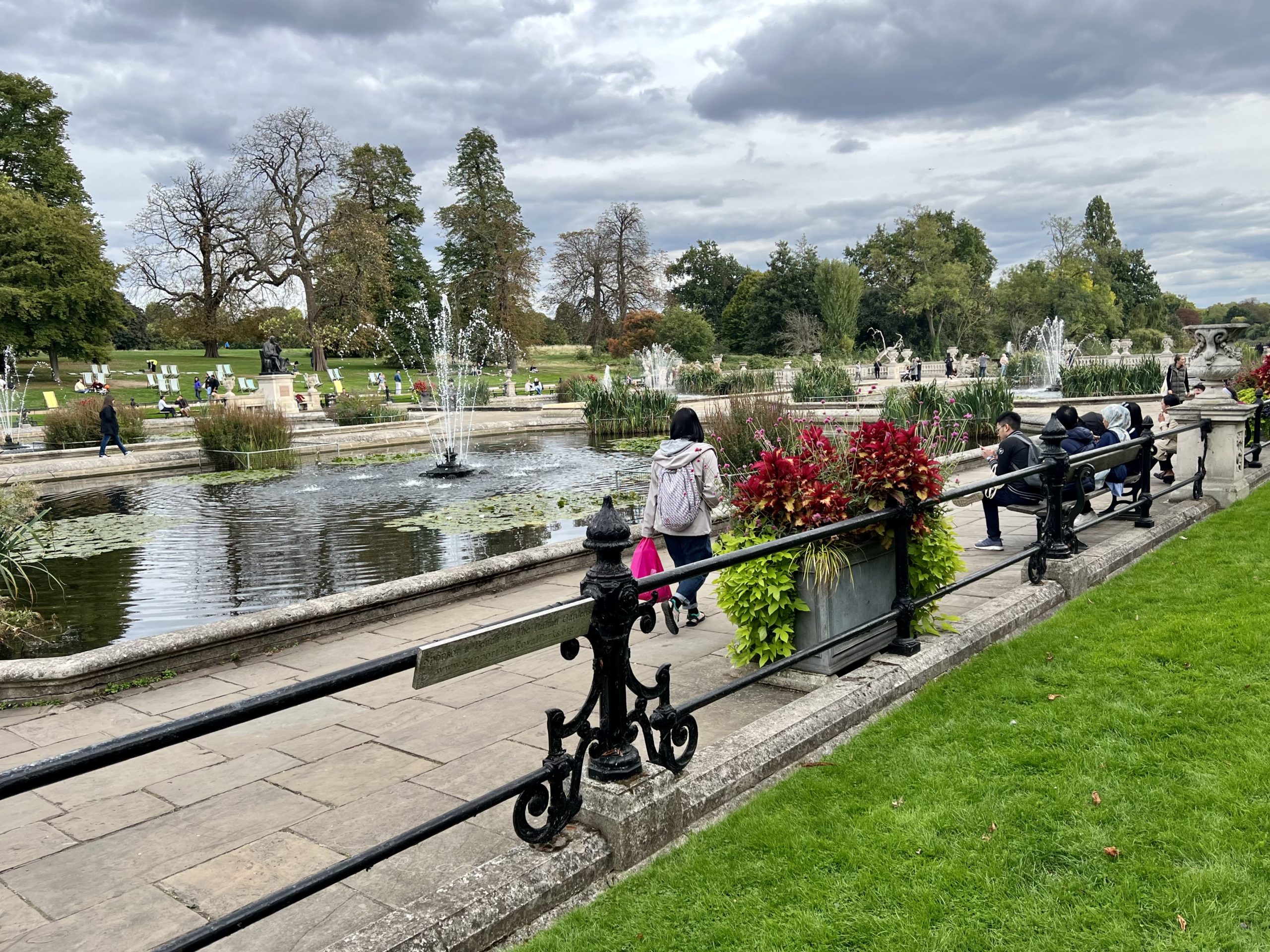
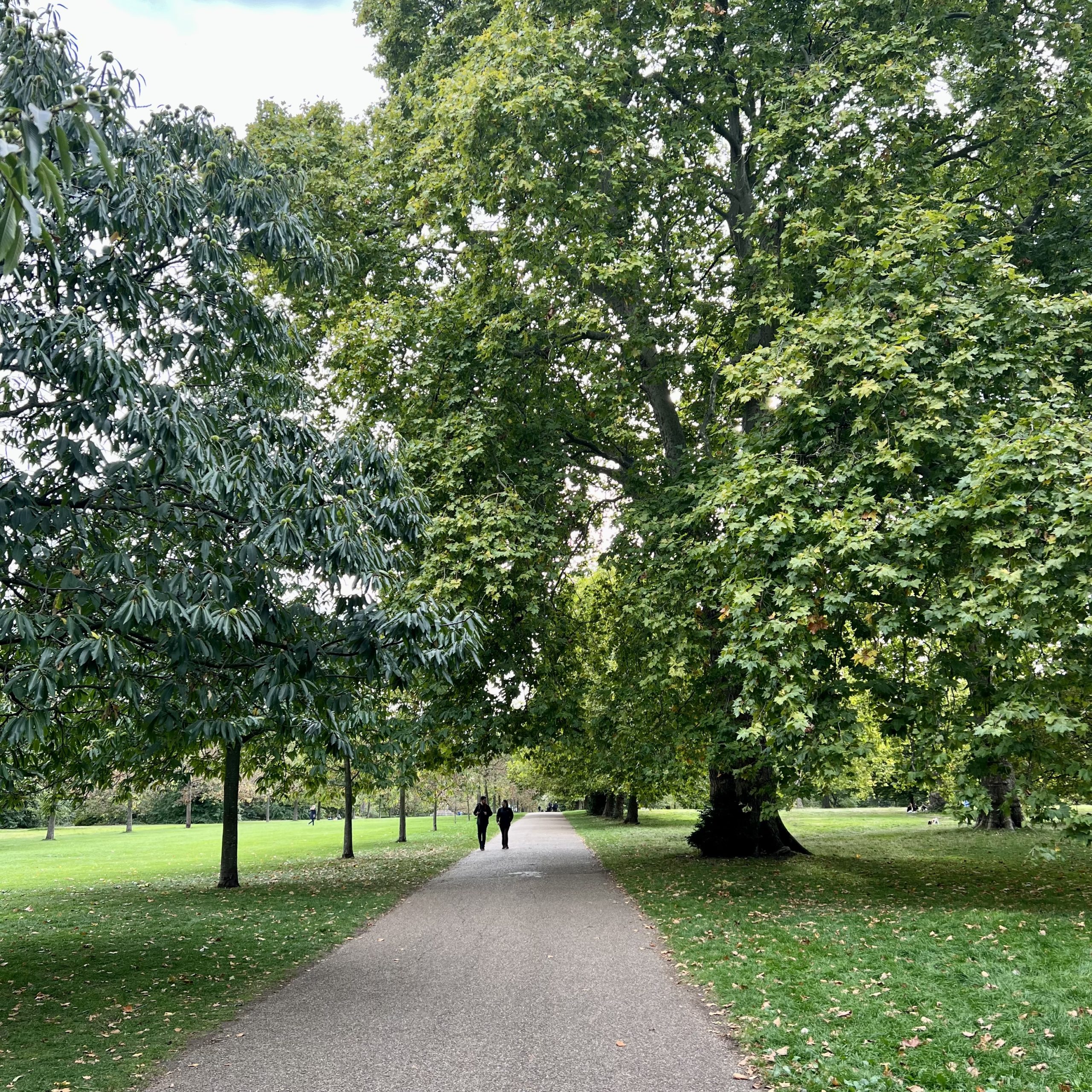
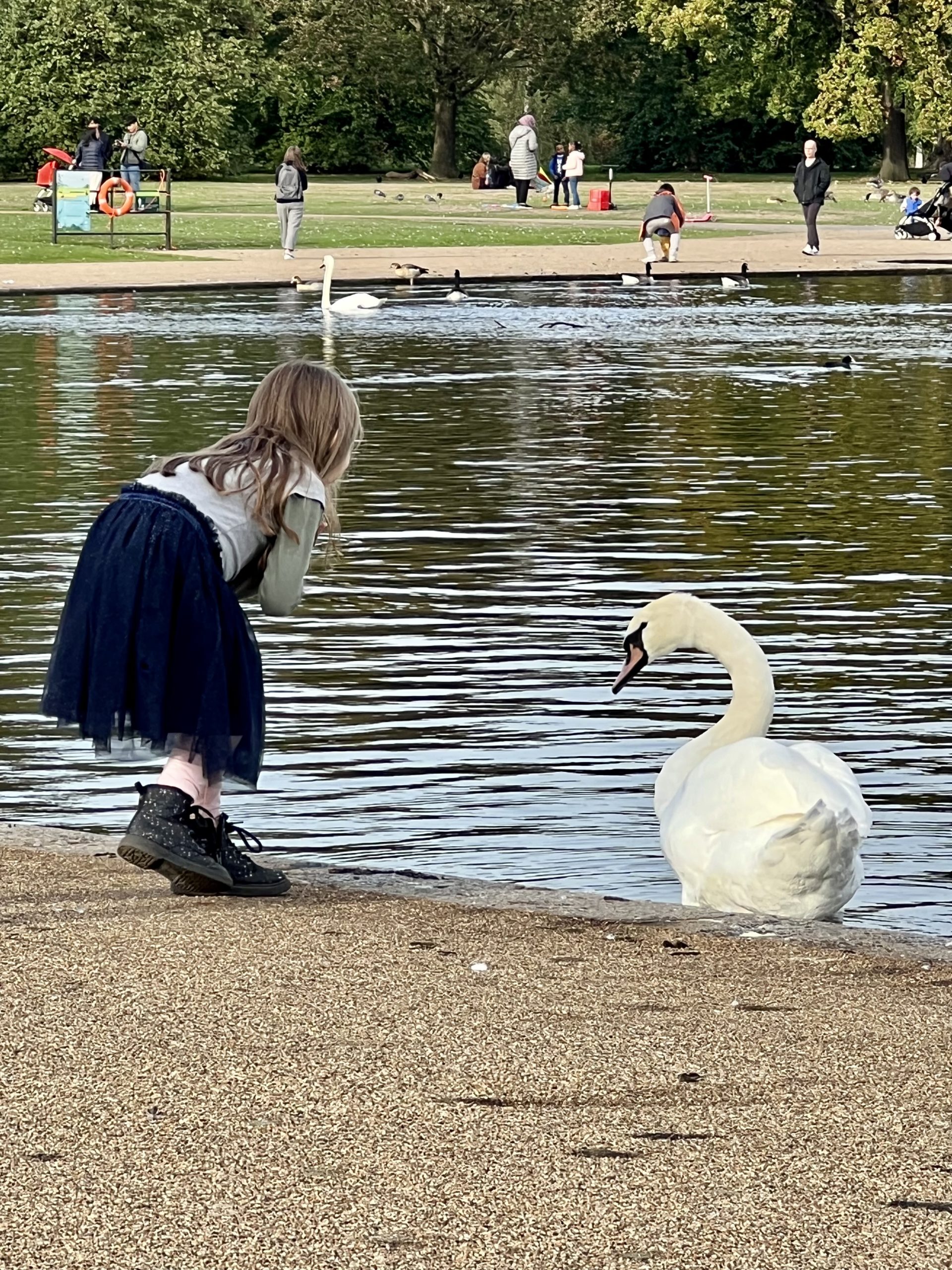
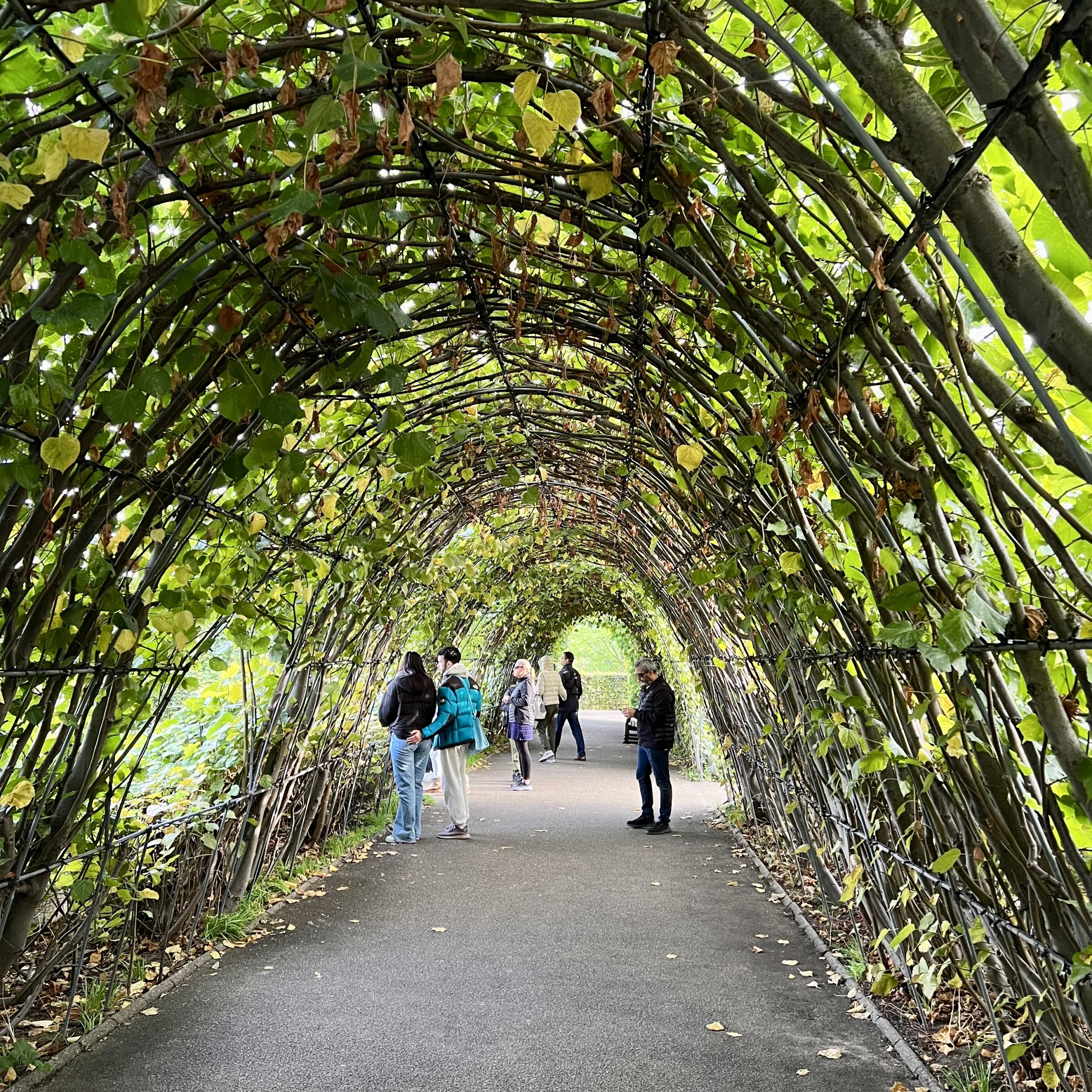
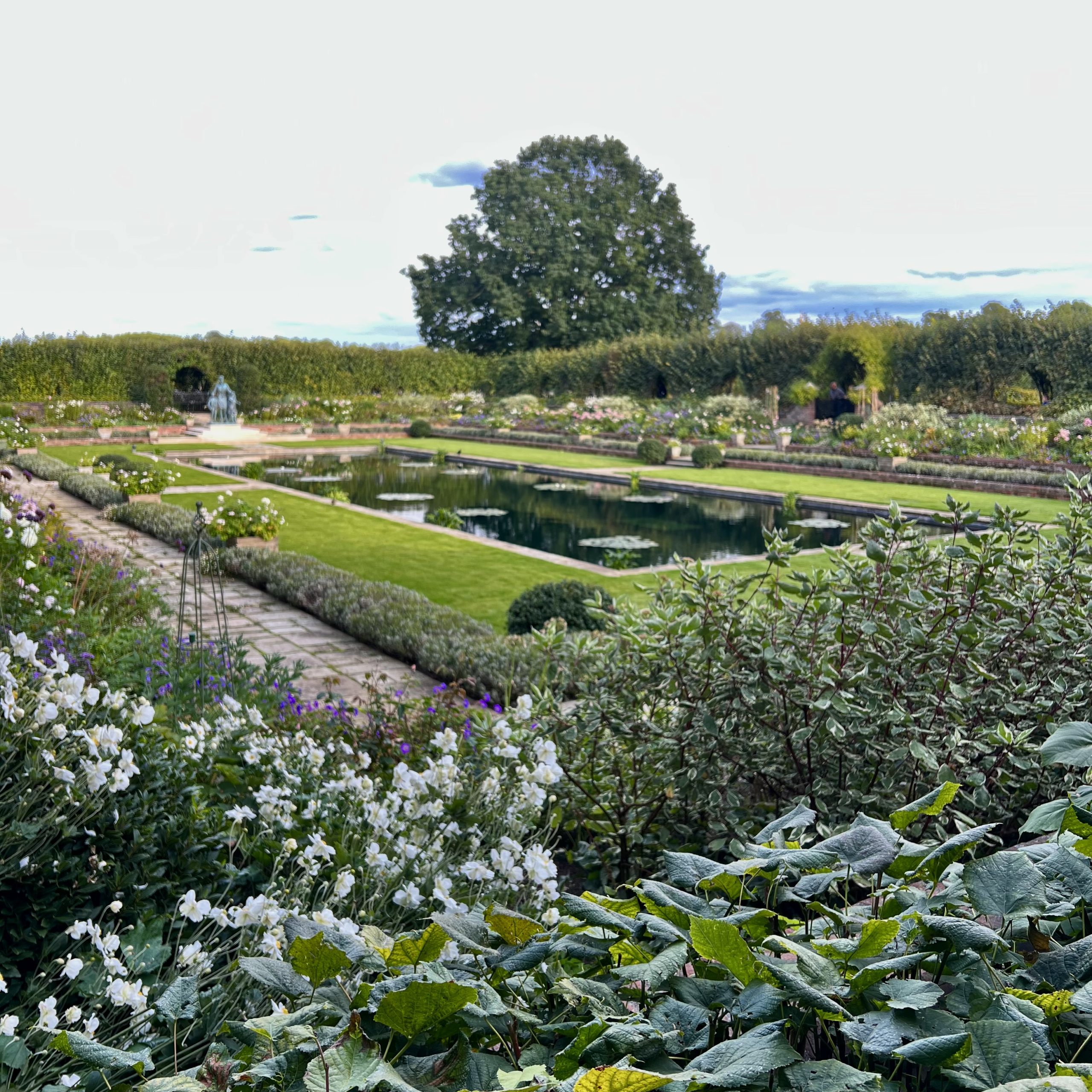
Notting Hill
Notting Hill lies just on the other side of the major street a block from our flat. It is definitely upscale along with its share of pubs.
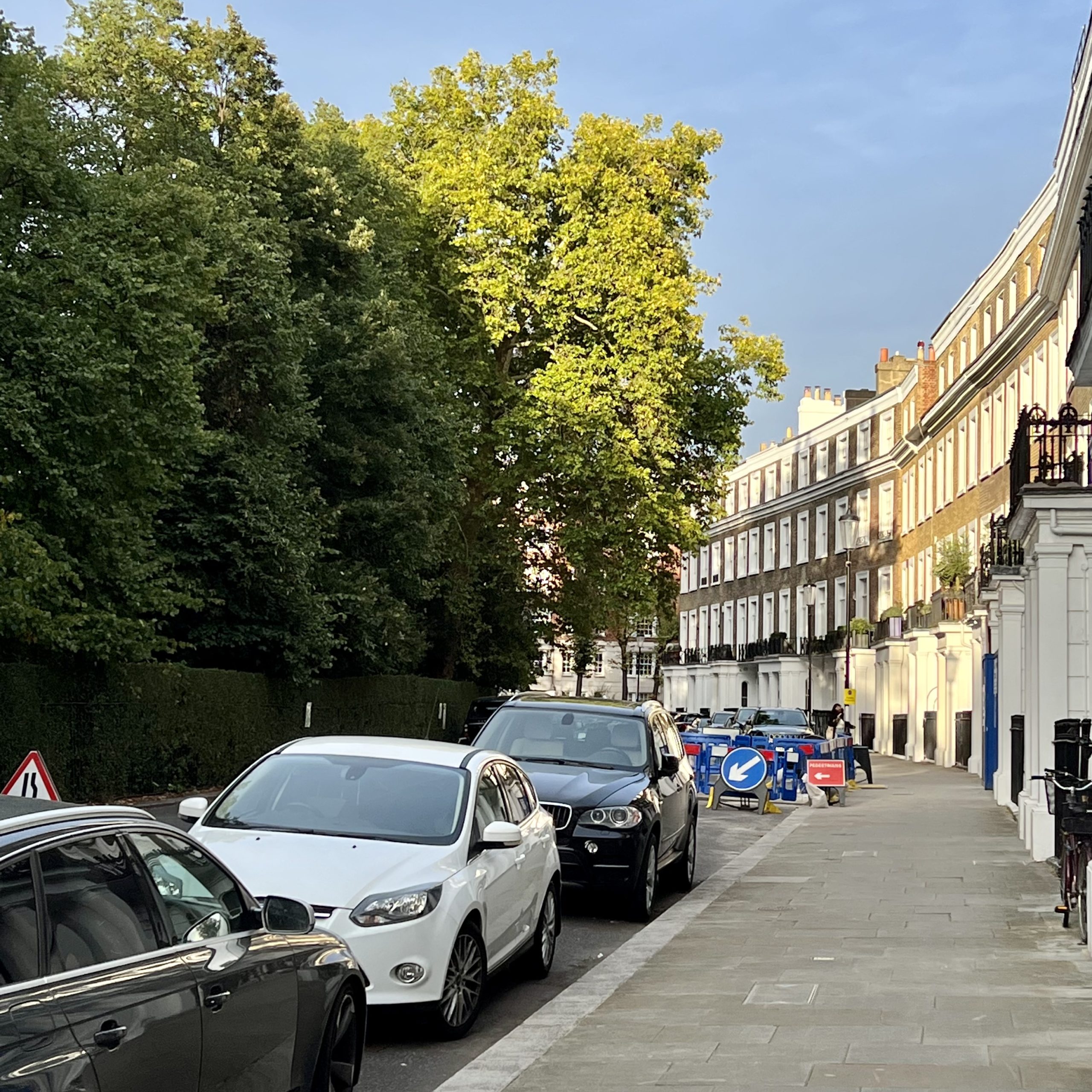
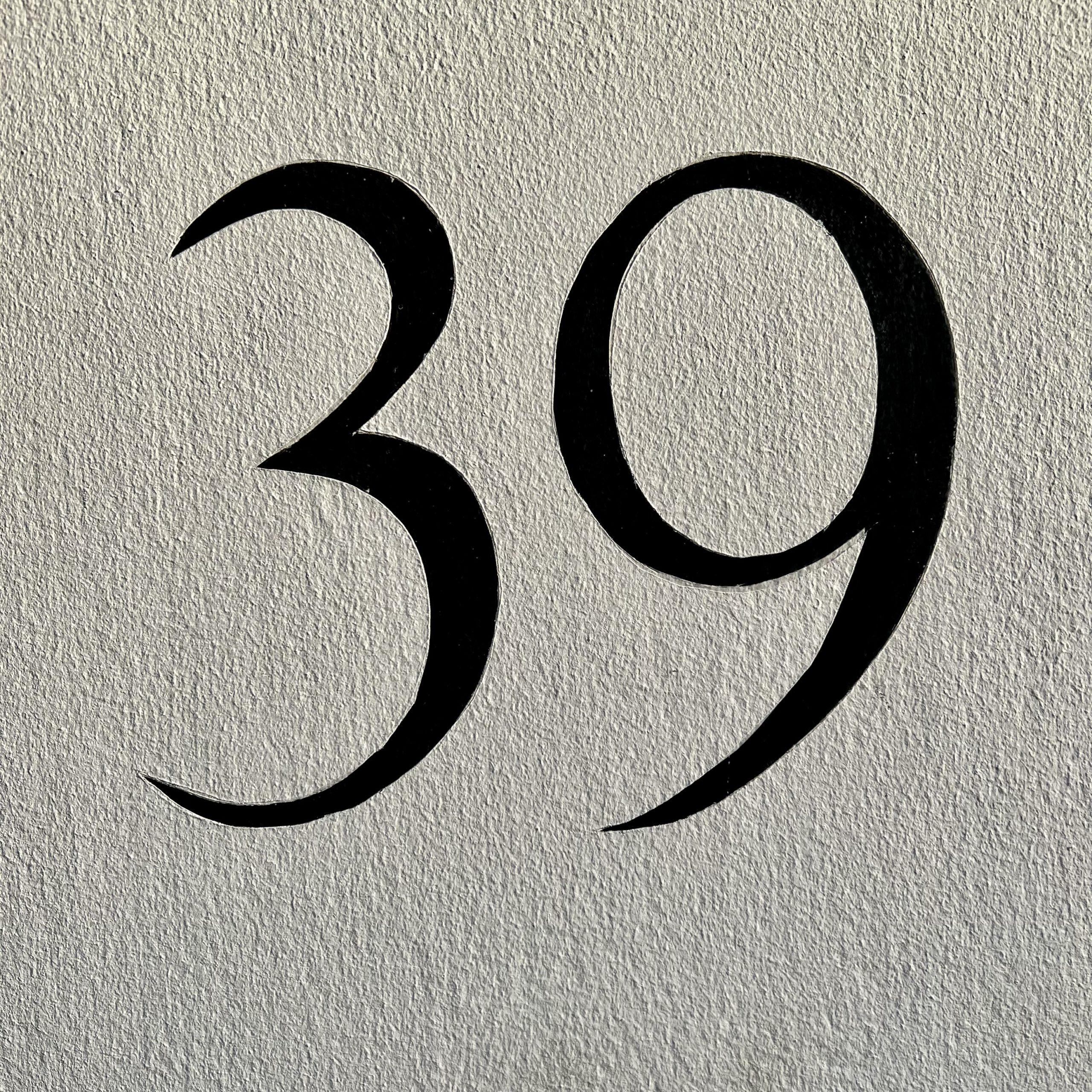
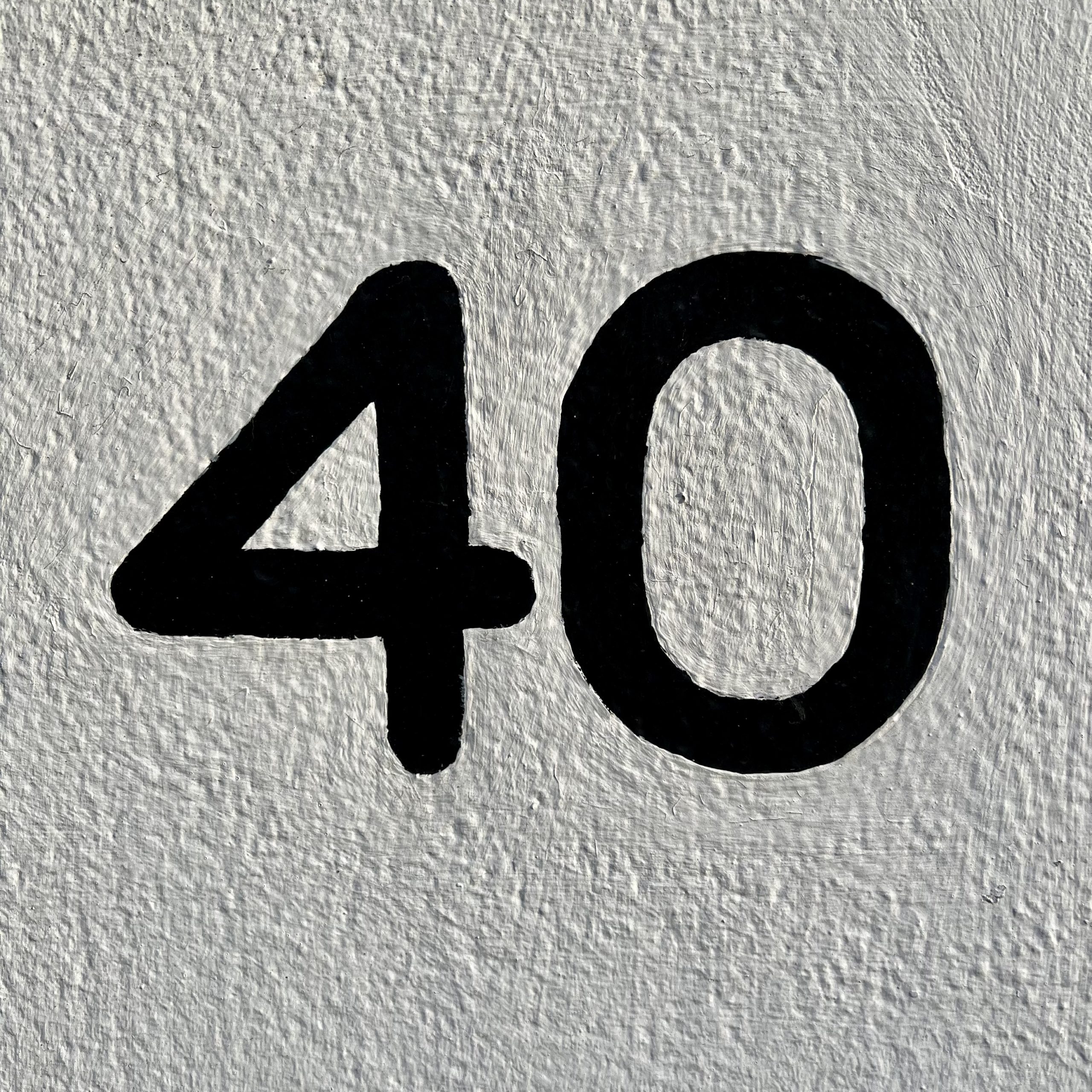
26 September 2022
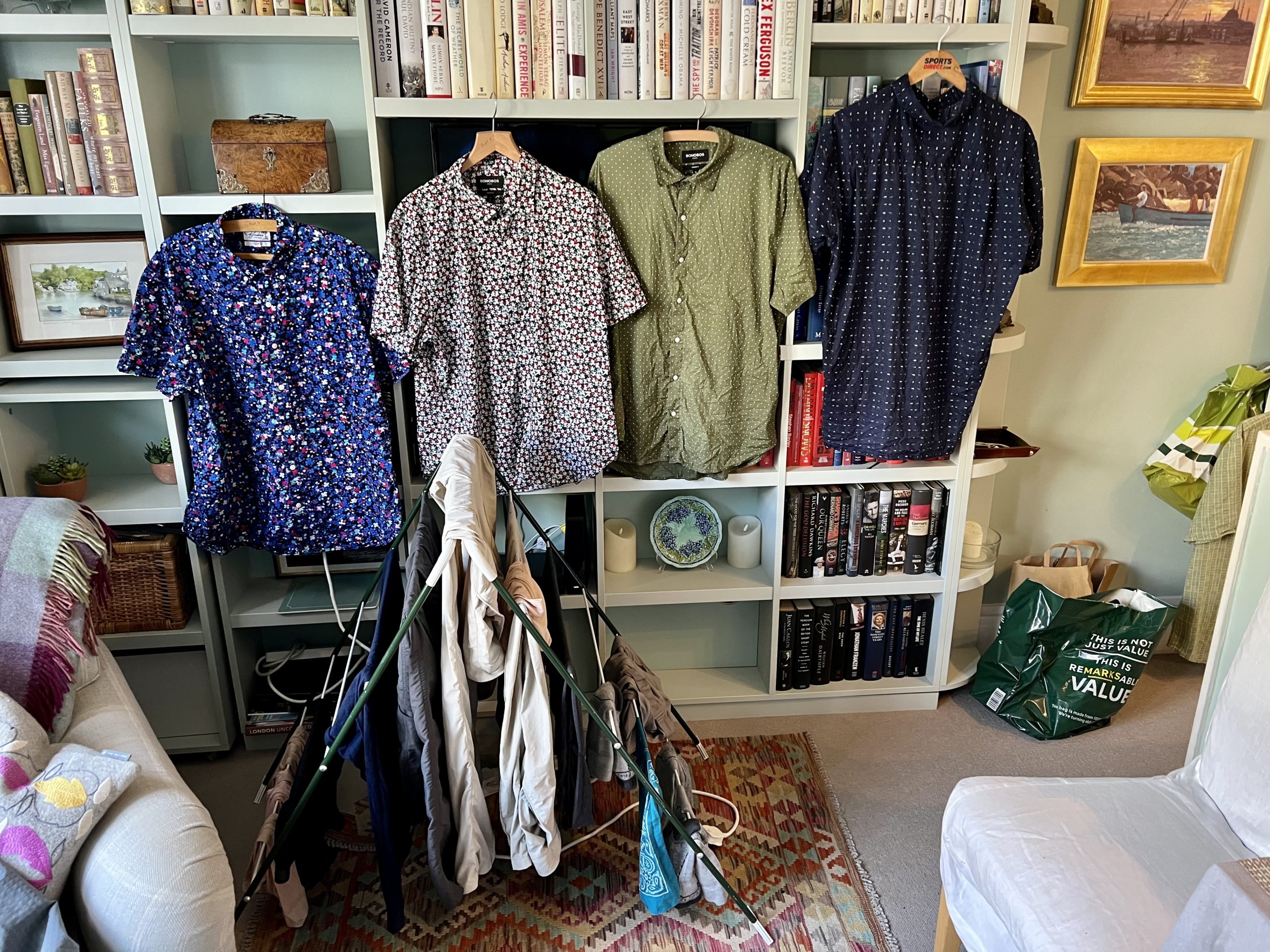
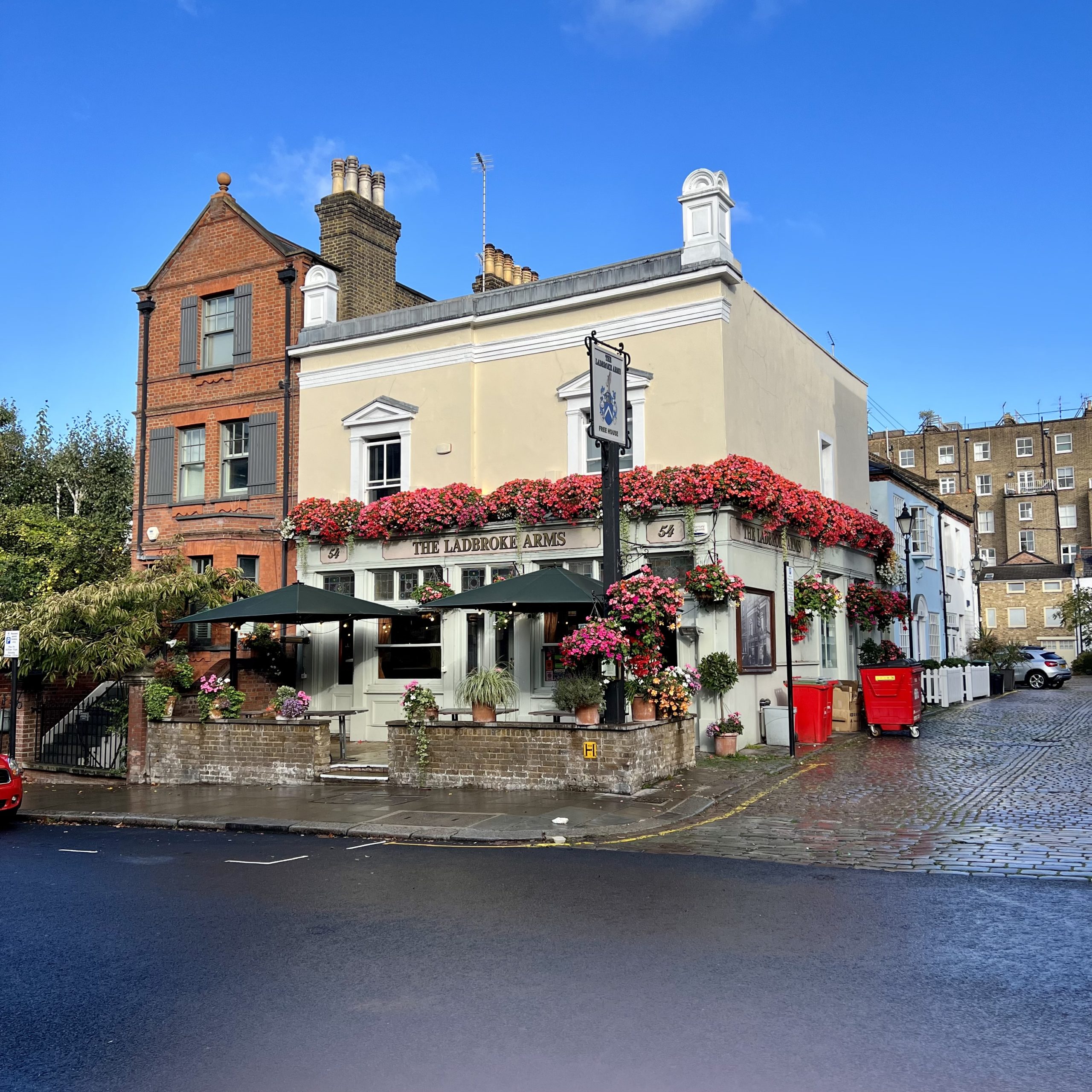
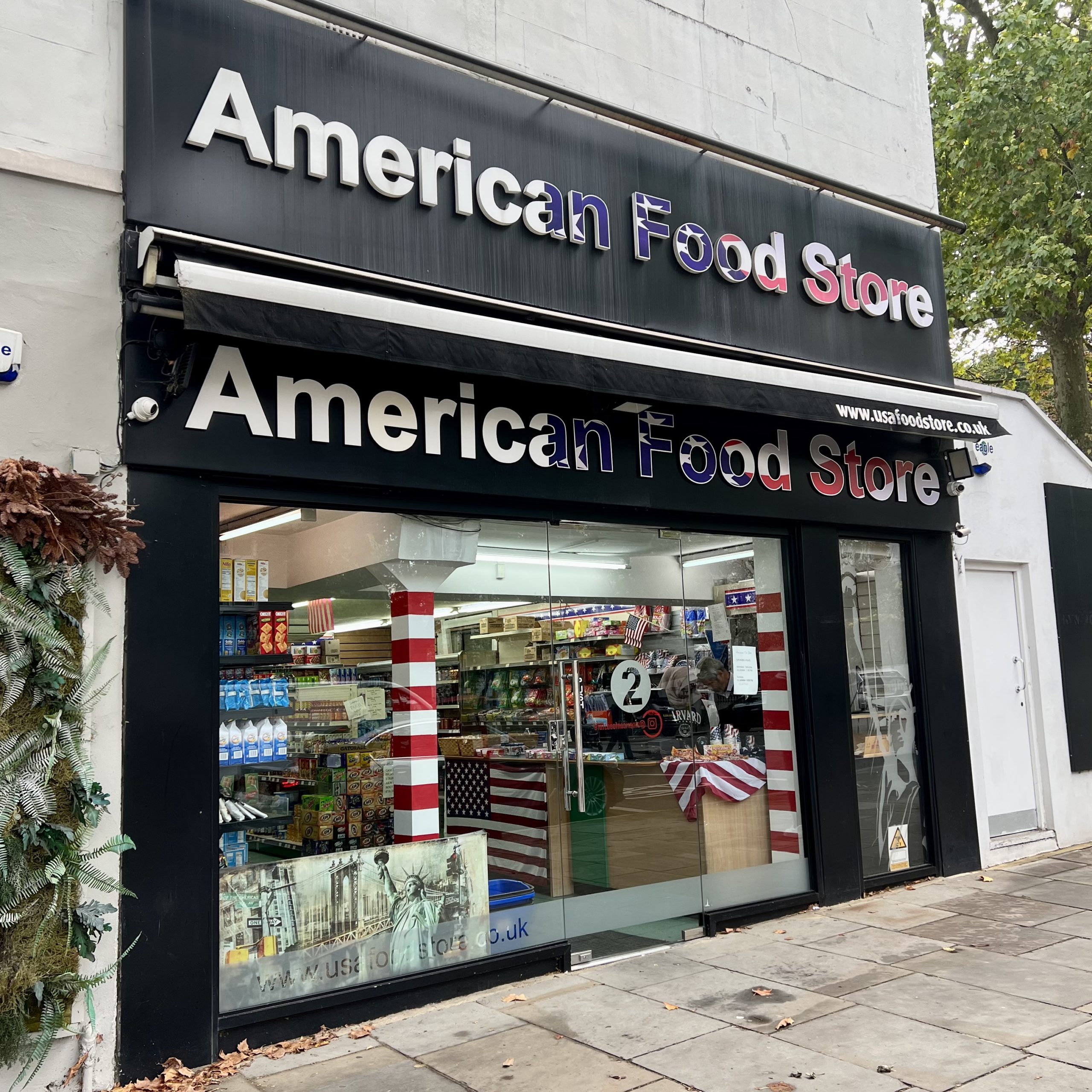
Croydon
Memories of old. Robert wanted to revisit where he worked for a year just after undergraduate school! We took a sixteen-minute train ride from Victoria Station and exited in East Croydon.
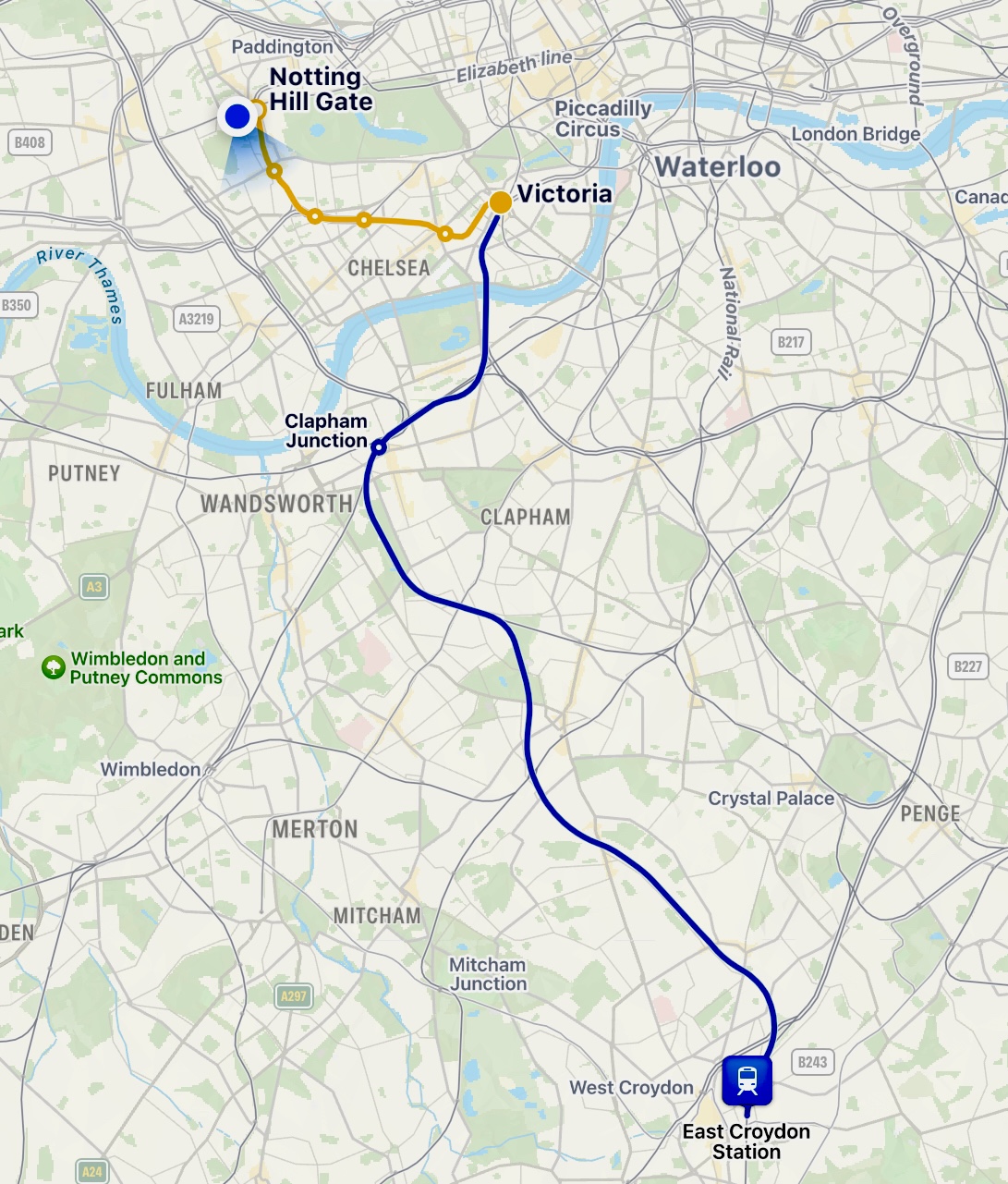
Robert worked in the landscape architecture office of Derek Lovejoy and Partners in 1973-1974. During a backpacking trip in Europe in the summer of 1972, he visited their London office on the recommendation of Michael Laurie, his professor at UC Berkeley and Tim Downey who guest taught a studio Robert took. During his second visit to the office before returning home, they asked if he was looking for a job. He submitted an application after graduation in December that year and started work in March 1973 in their Croydon office, headed by Derek Lovejoy. The pay (pre tax) was $4,500 per year. Britain had just joined the Common Market. Inflation was active. Robert had to borrow $1,000 from his brother to afford the job!
Robert is surprised about how much he remembers and how much he does not.
He remembers that Edmund Waller, his supervisor, took him under his wing. Edmund, an architect and landscape architect, had just finished a masters in landscape architecture at the University of Pennsylvania, which Michael Laurie also attended. There seemed to be a strong British connection to the U of Penn in those days, perhaps because Ian McCarg was teaching there. Edmund and his family would take Robert on weekend day trips to see sights outside of London—stately homes and gardens and the Cotswalds. Fond memories.
Robert stayed with Edmund and his family for a few weeks until he found a flat on Chisholm Road in East Croydon, about a thirty-minute walk to work. He would set out in the morning and cross the train tracks that brought commuters north to London and visitors south to Brighton and its beaches. He remembers that on one of his walks to work he first saw people with brightly dyed blue and red dyed, influenced no doubt by David Bowie. His flat was upstairs and shared with two others. Robert’s room had been the kitchen. It contained the coin-operated electrical meter for the flat. They kept a pile of coins near it to feed it when the lights and TV went out. This happened often. The walls had no cavity causing ”rising damp.” You couldn’t hang a towel next to the wall because it would never dry. Books would begin to warp. There was an air raid shelter in the backyard, covered by vegetation, and the pay phone was at the bottom of the stairs. Good times. This was the first time Robert truly lived on his own. He started his journey there to become an adult. He is still working on it.
What Robert did not remember is how tall and modern Leon House was where he worked. Twenty-one stories. It still looks like a handsome modern building. The office was small, about fourteen people. Derek would introduce Edmund and Robert to a client at the start of a project, profess total confidence in their ability to successfully serve the client, and then would bow out except for key meetings during and at the end of the work.
At the time, the Greater London Authority designated Croydon as one of the outlying locations for increased office development to offset pressures on central London. A few towers had already sprouted up next to thatched houses and three-story brick buildings. A strange contrast. Today, roughly fifty years later, the market is catching up with massive office construction. Older office buildings like Leon House, are being converted into residential uses.
Reading the history of Croydon, you learn it has been buffeted by every type of technological and economic change in UK history. It was a coach stop on the way to Brighton. Then an early railway hub. Because of the railway, it was bombed heavily during the war. It has seen many waves of redevelopment, driven by London’s need for more office space and the need to address local poverty. The new buildings under construction are massive in scale, although plain in architecture. They stand next to modest old shops and restaurants.
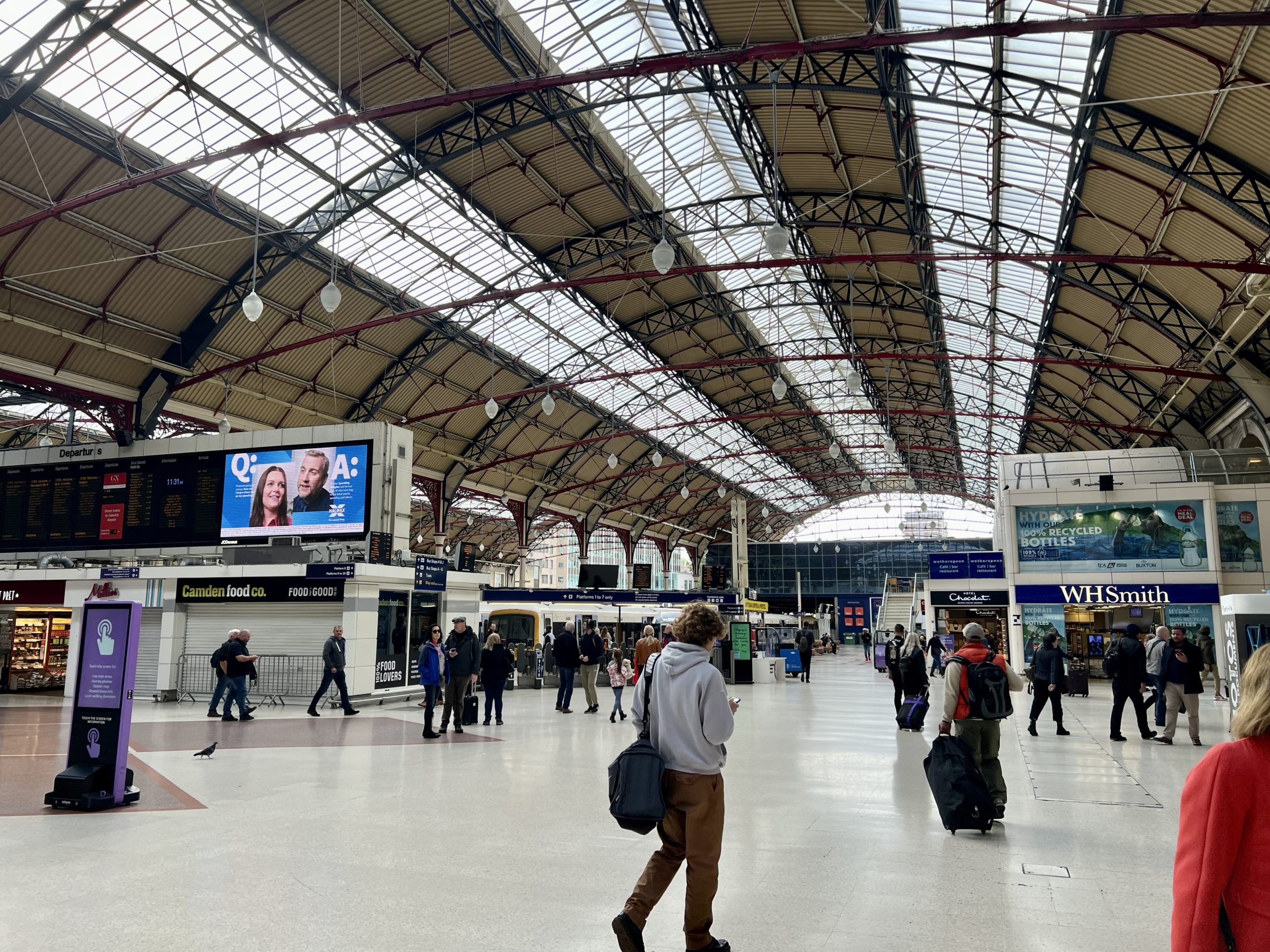
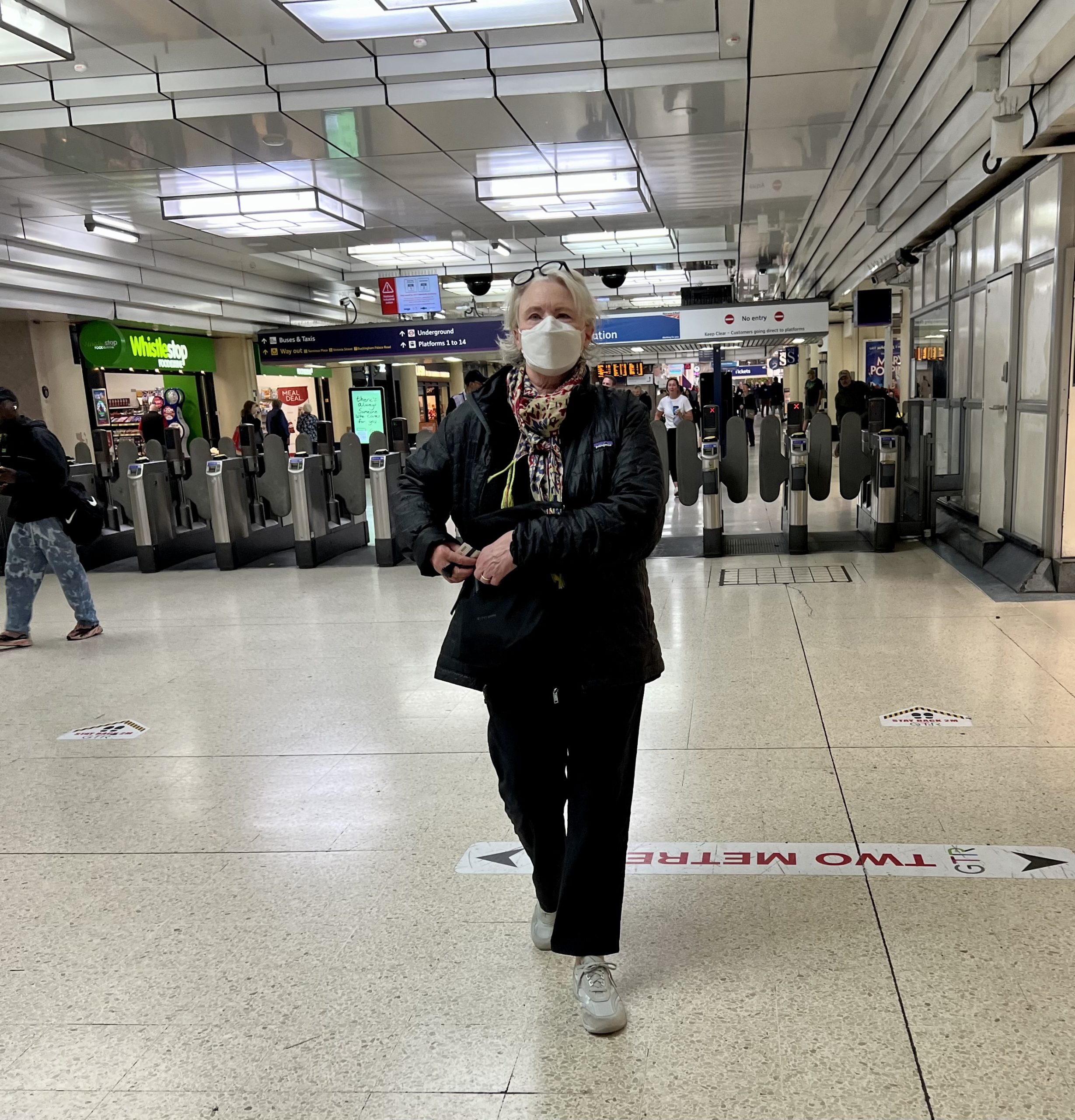
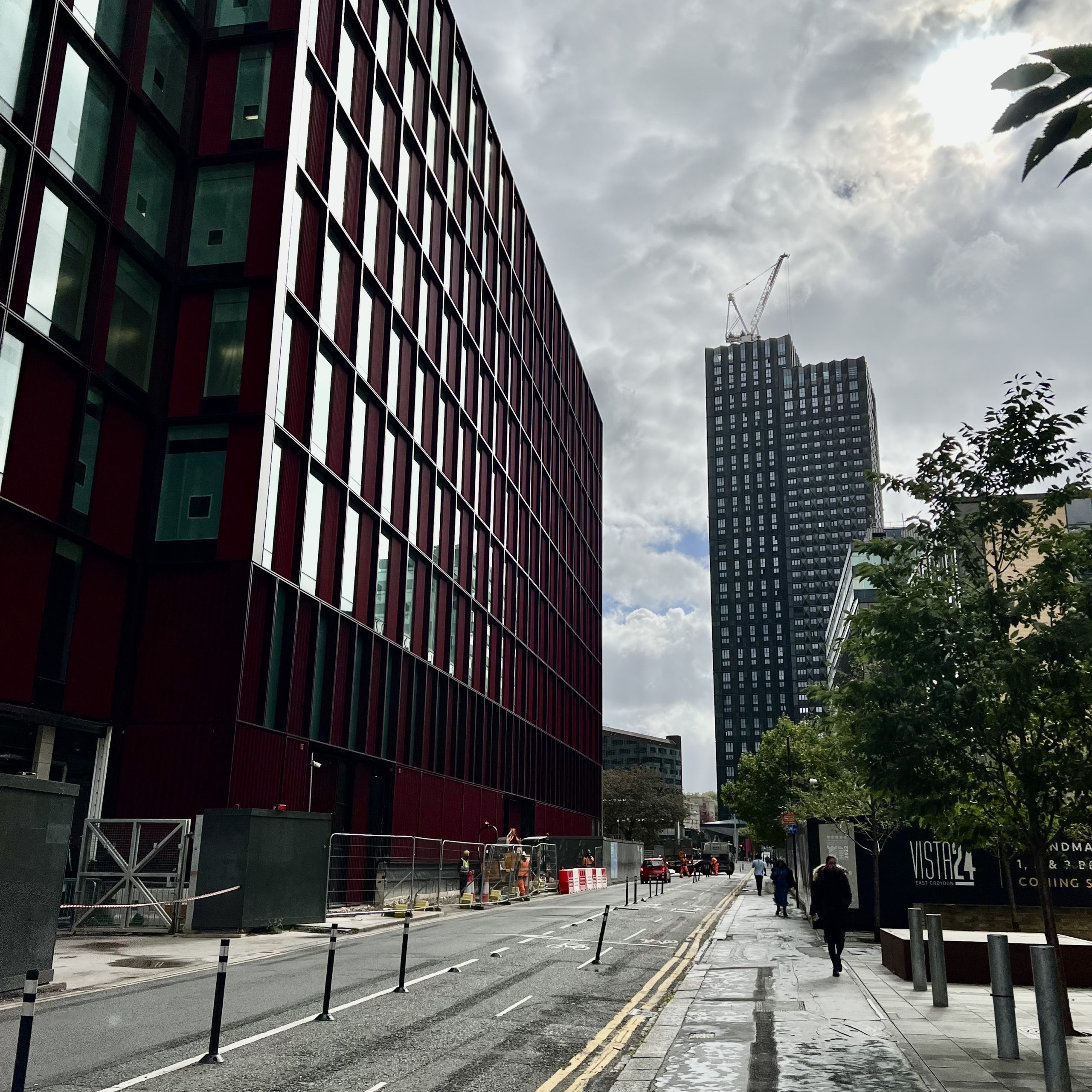
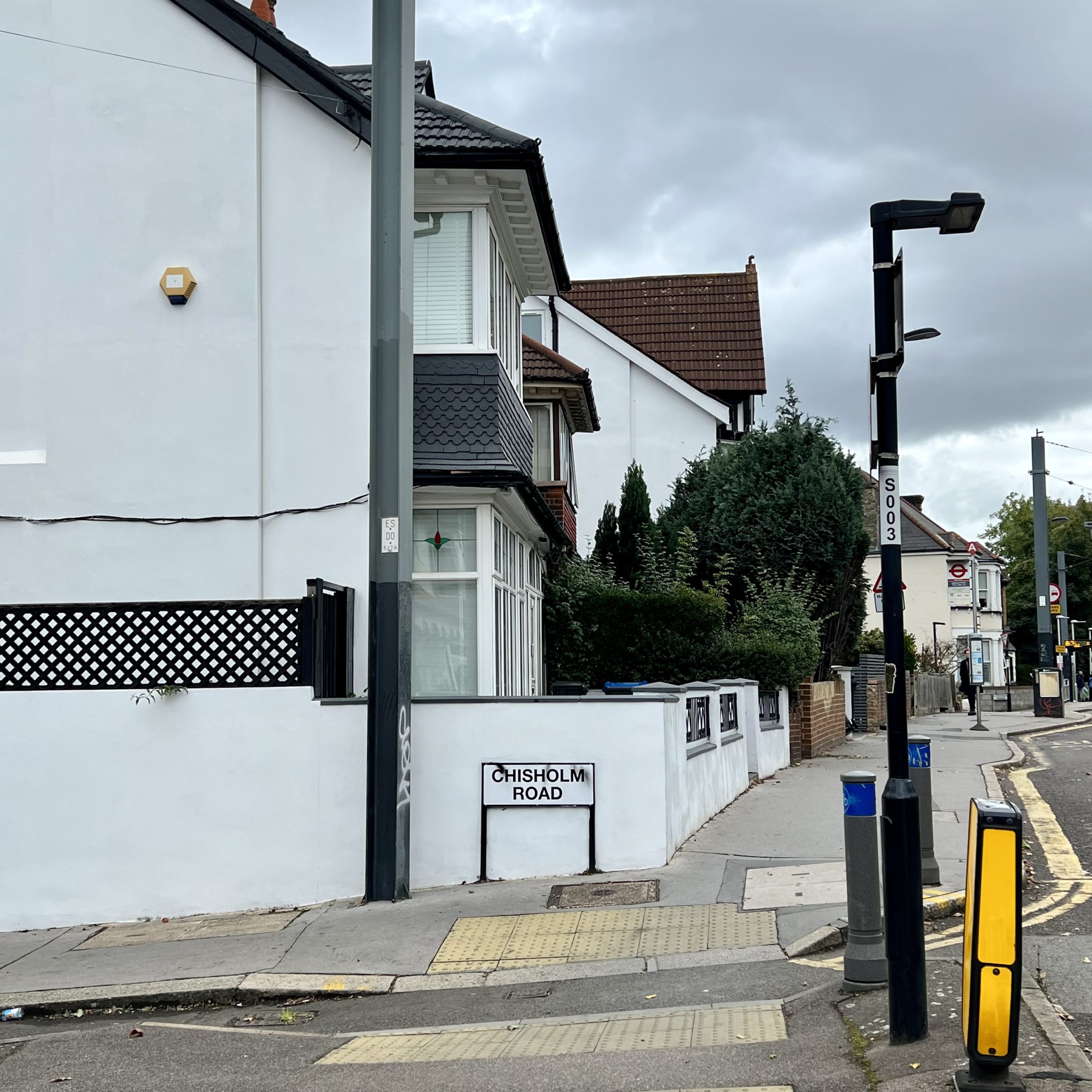

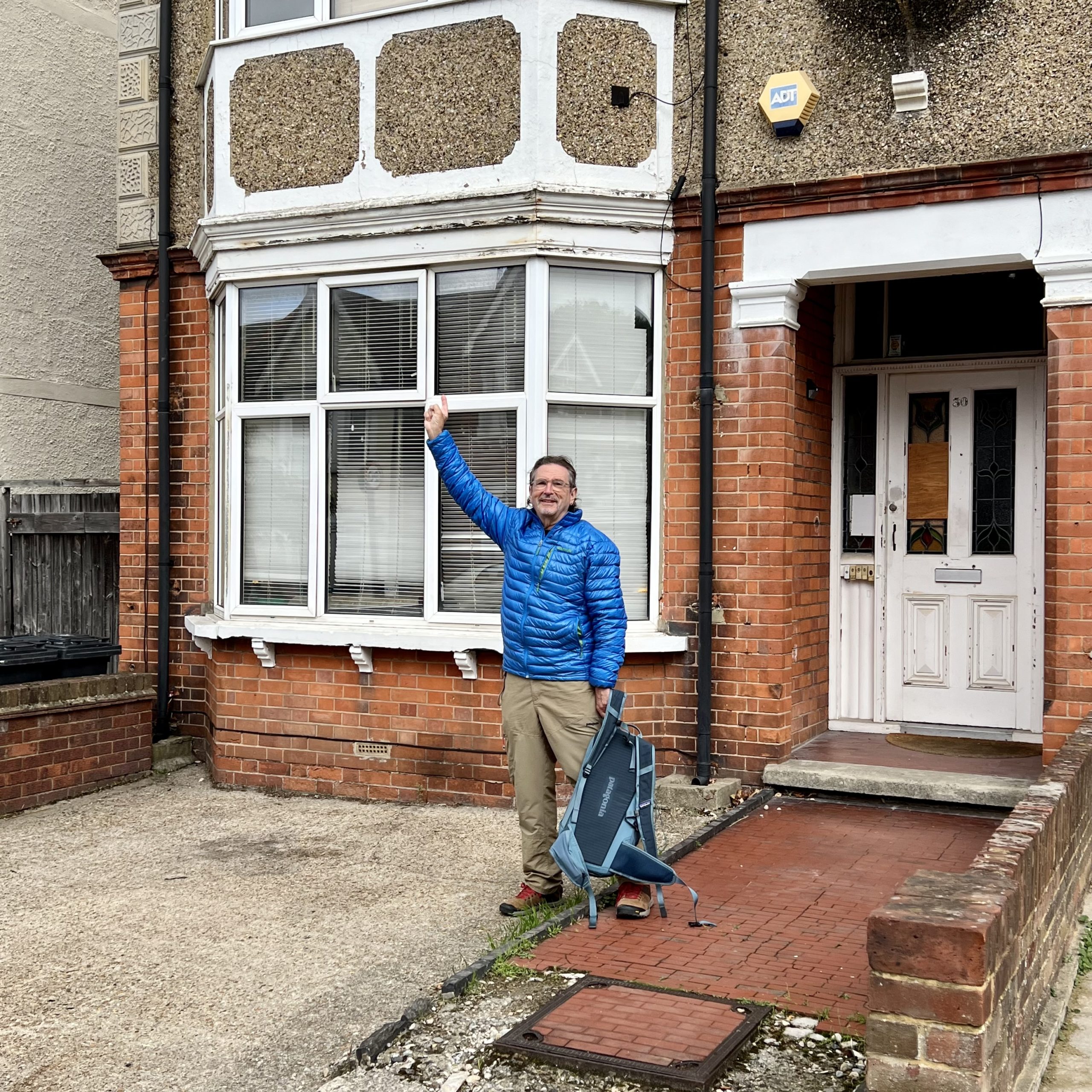
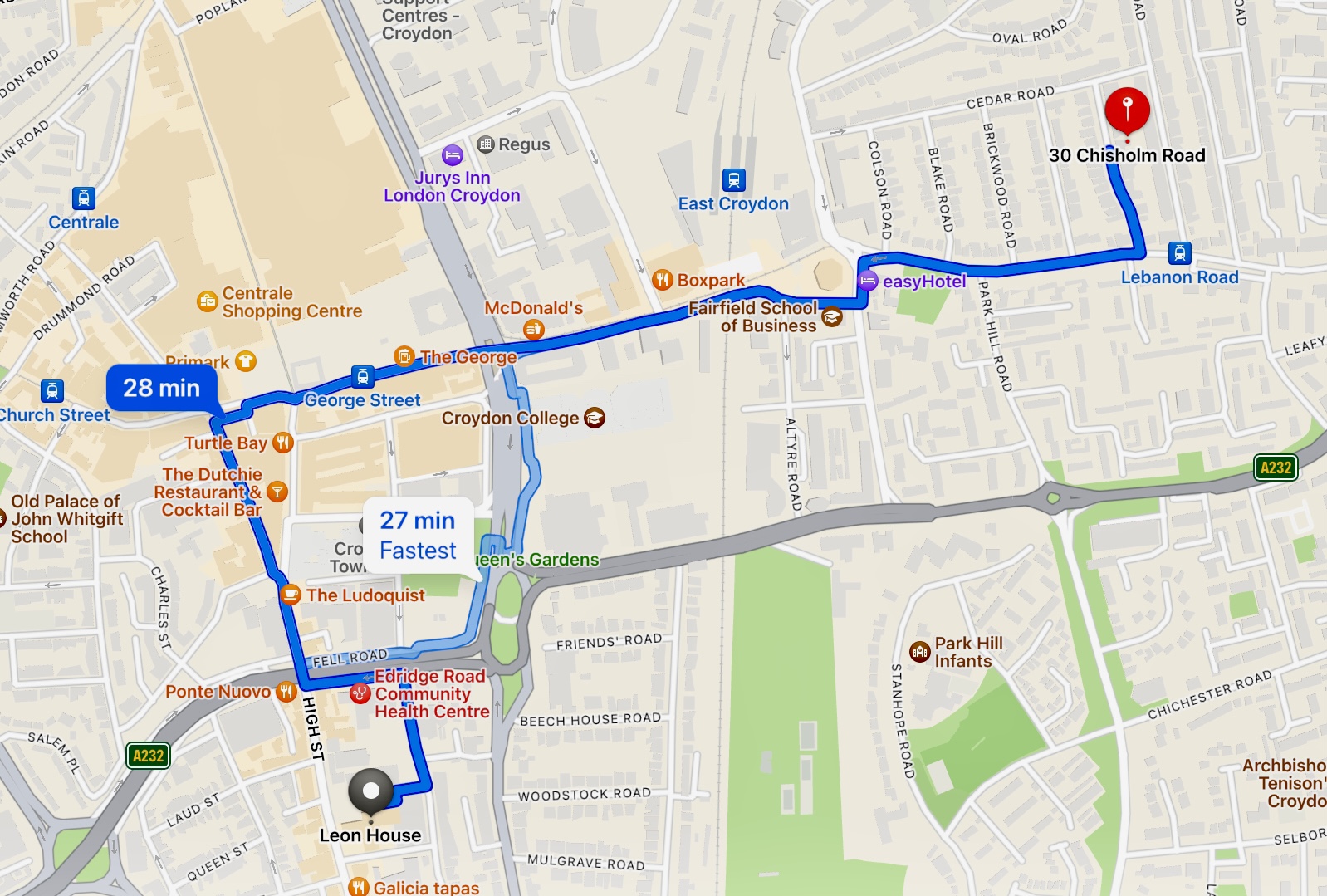
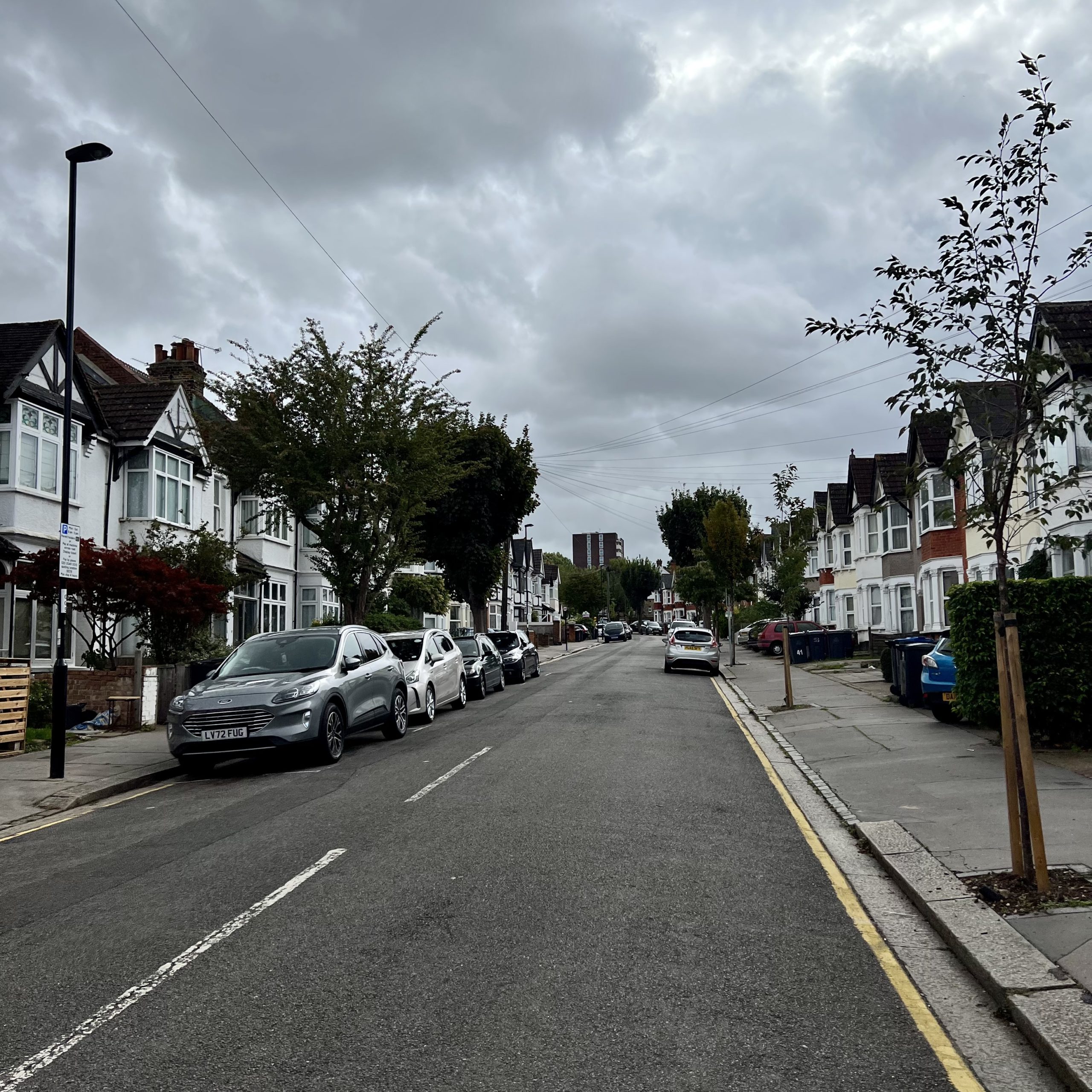
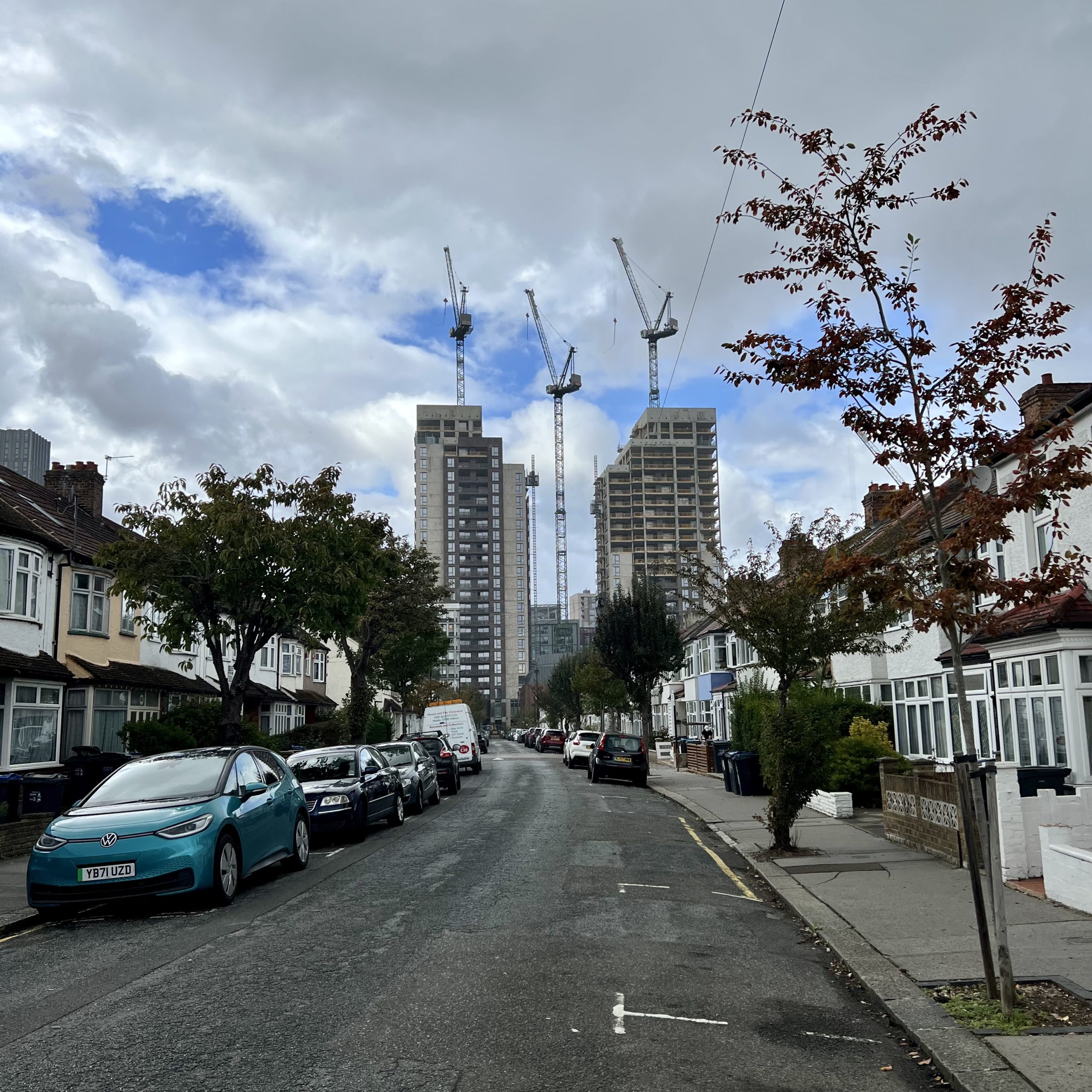
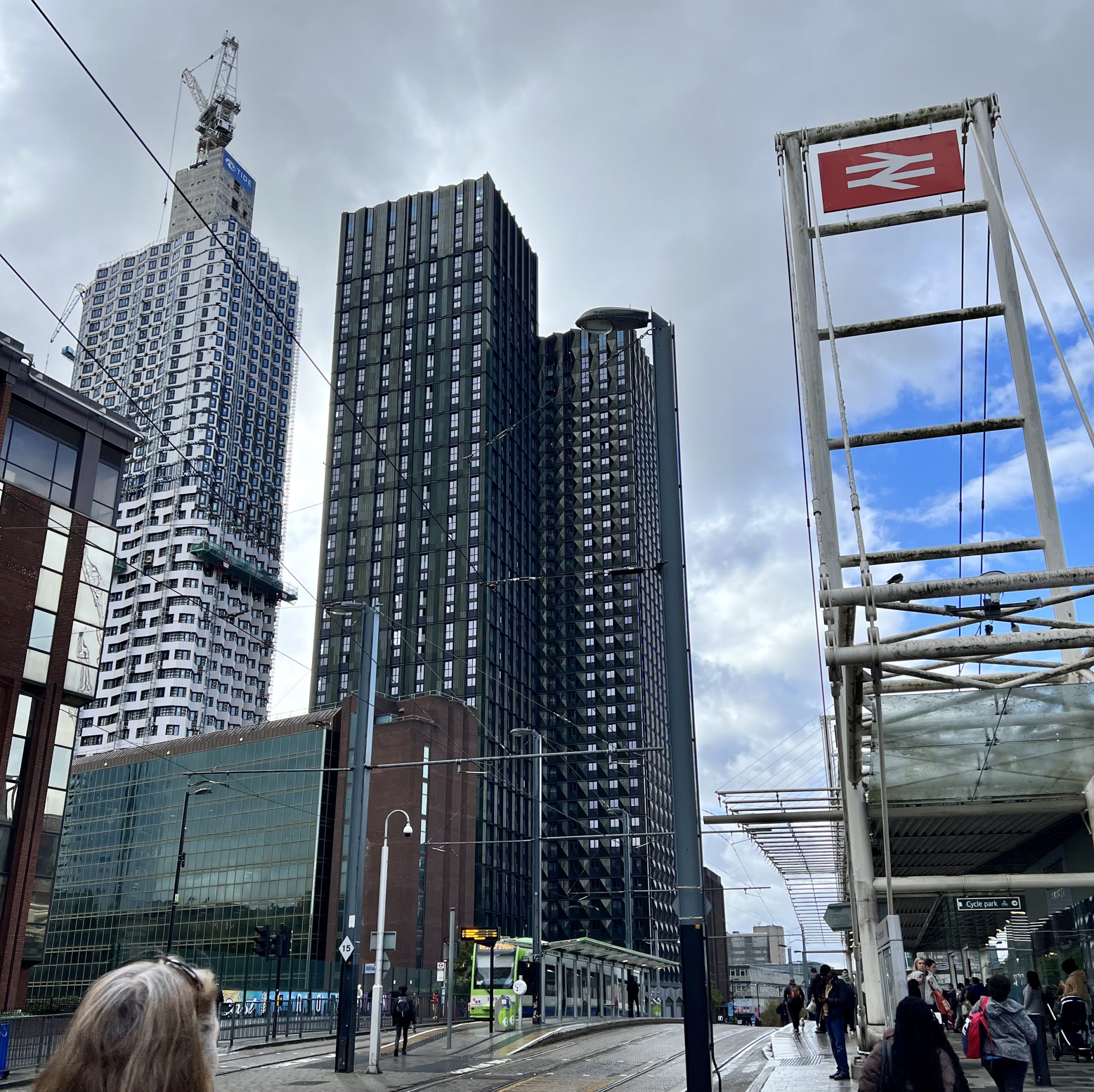
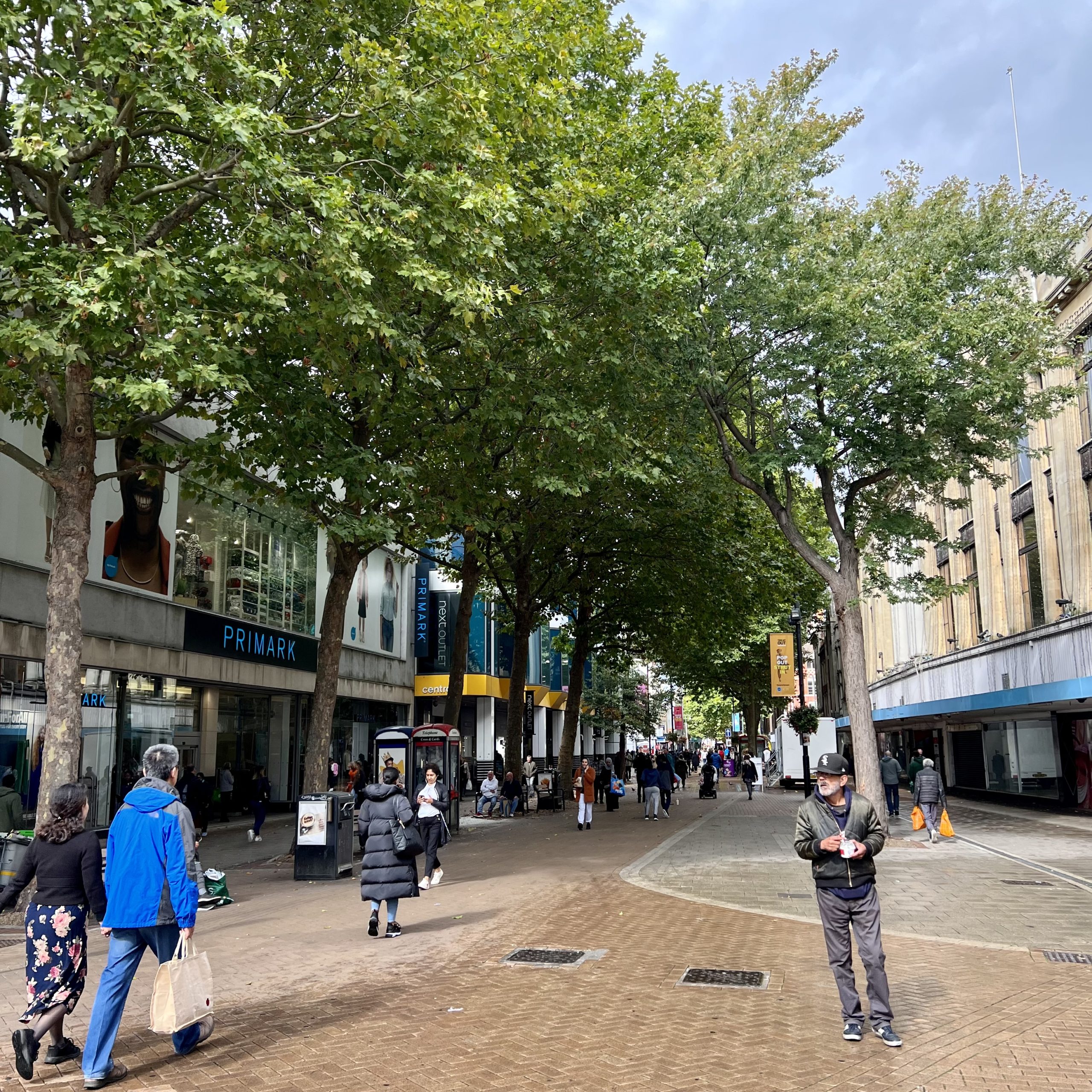

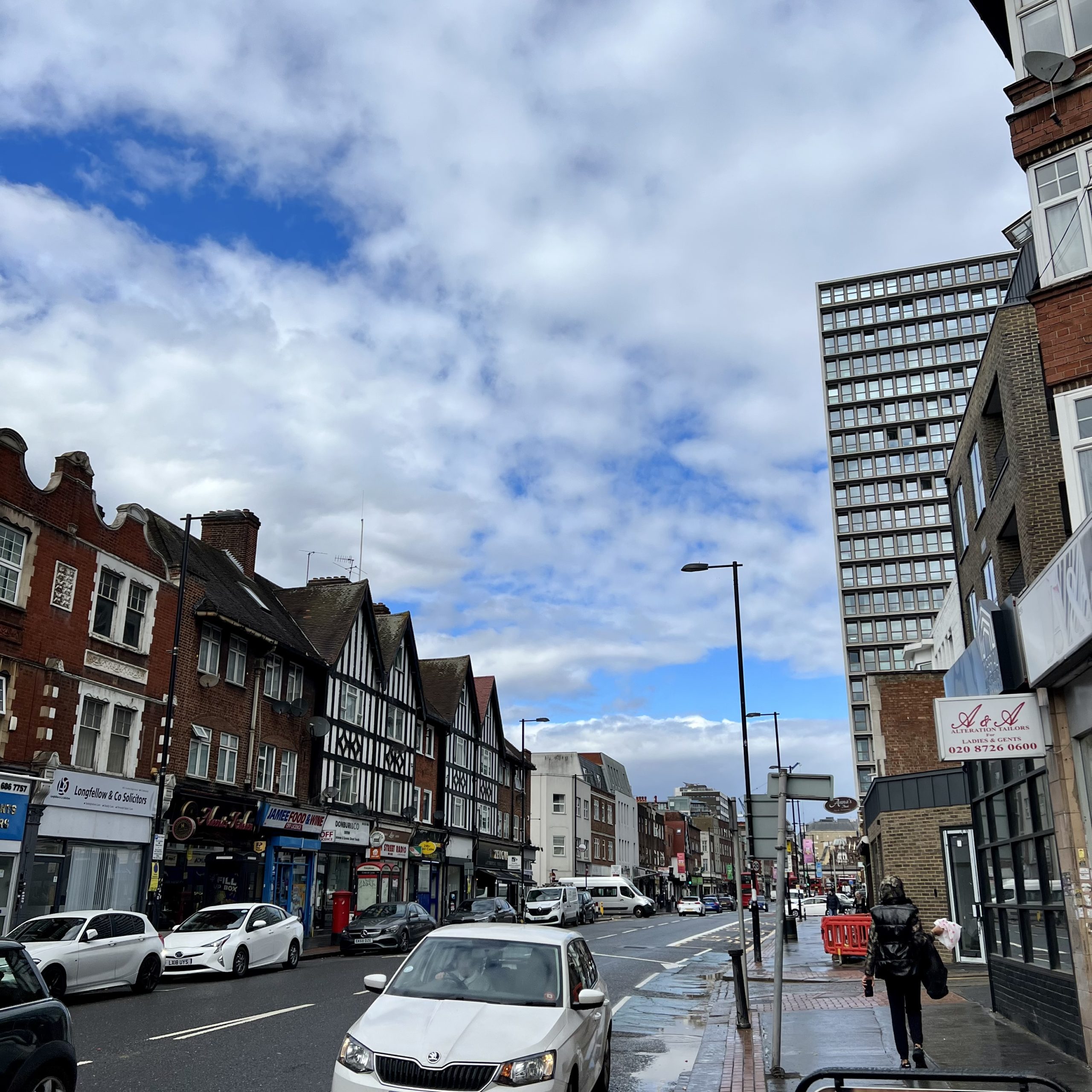
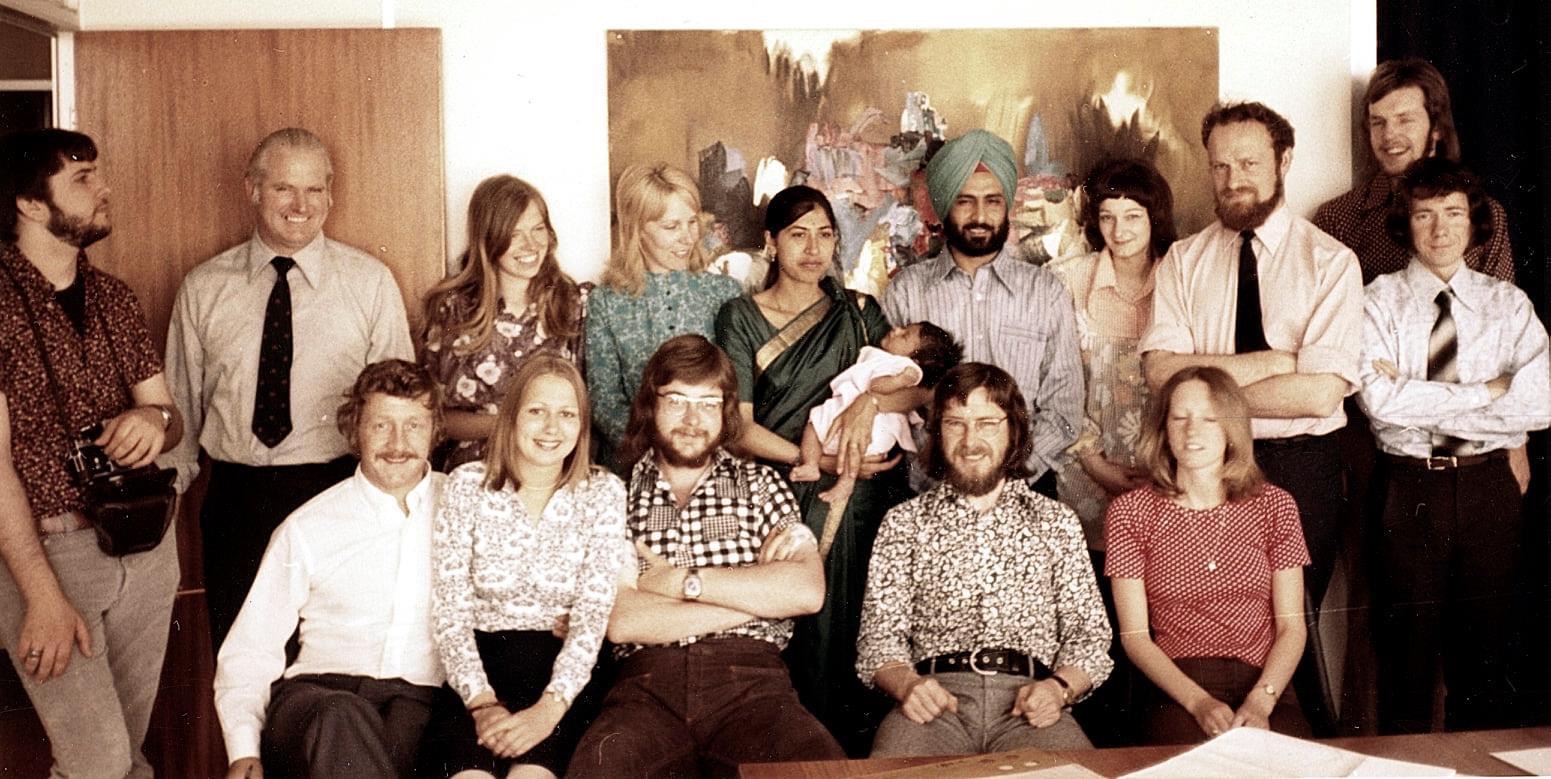
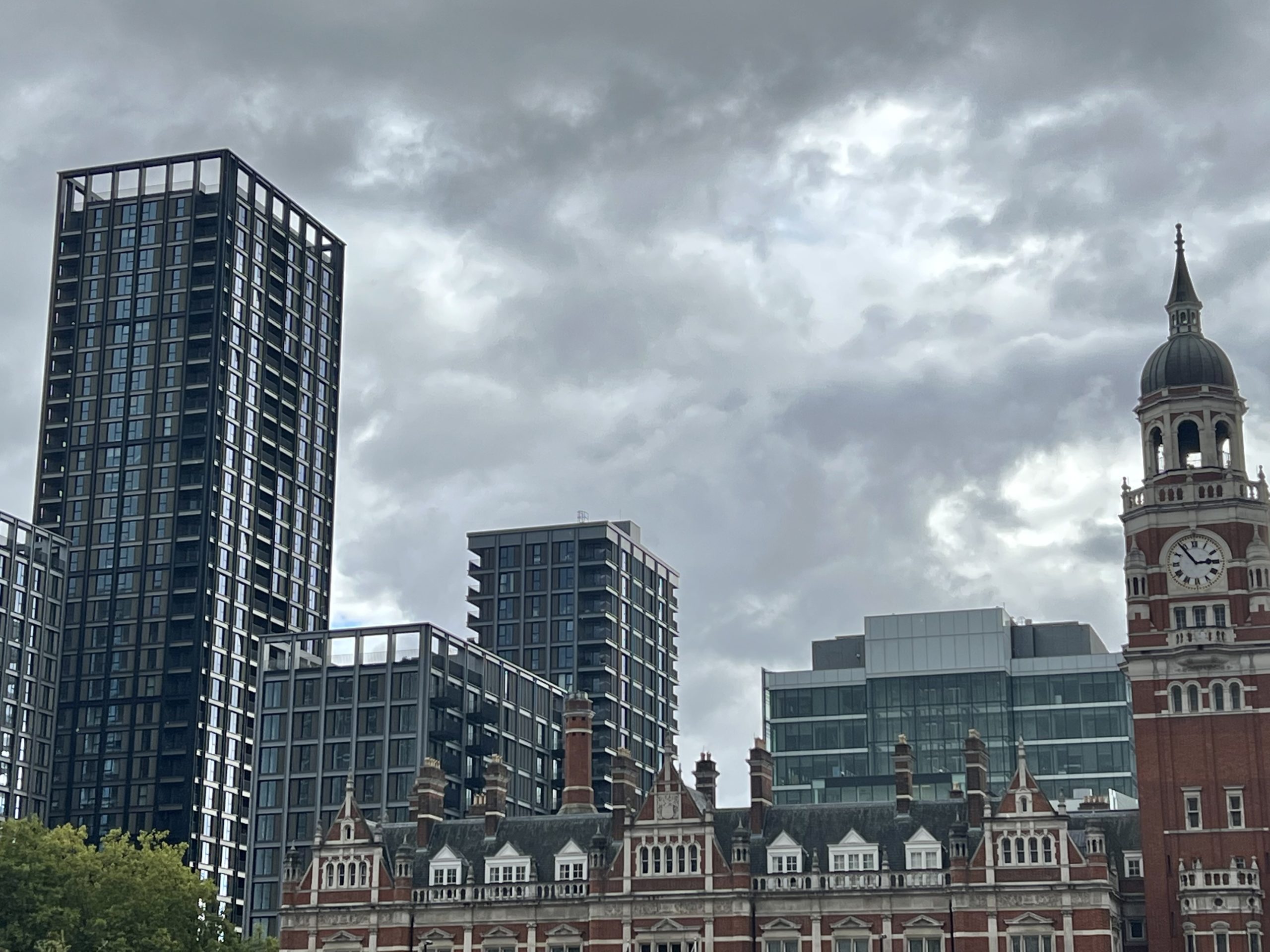
27 September 2022
Back to London


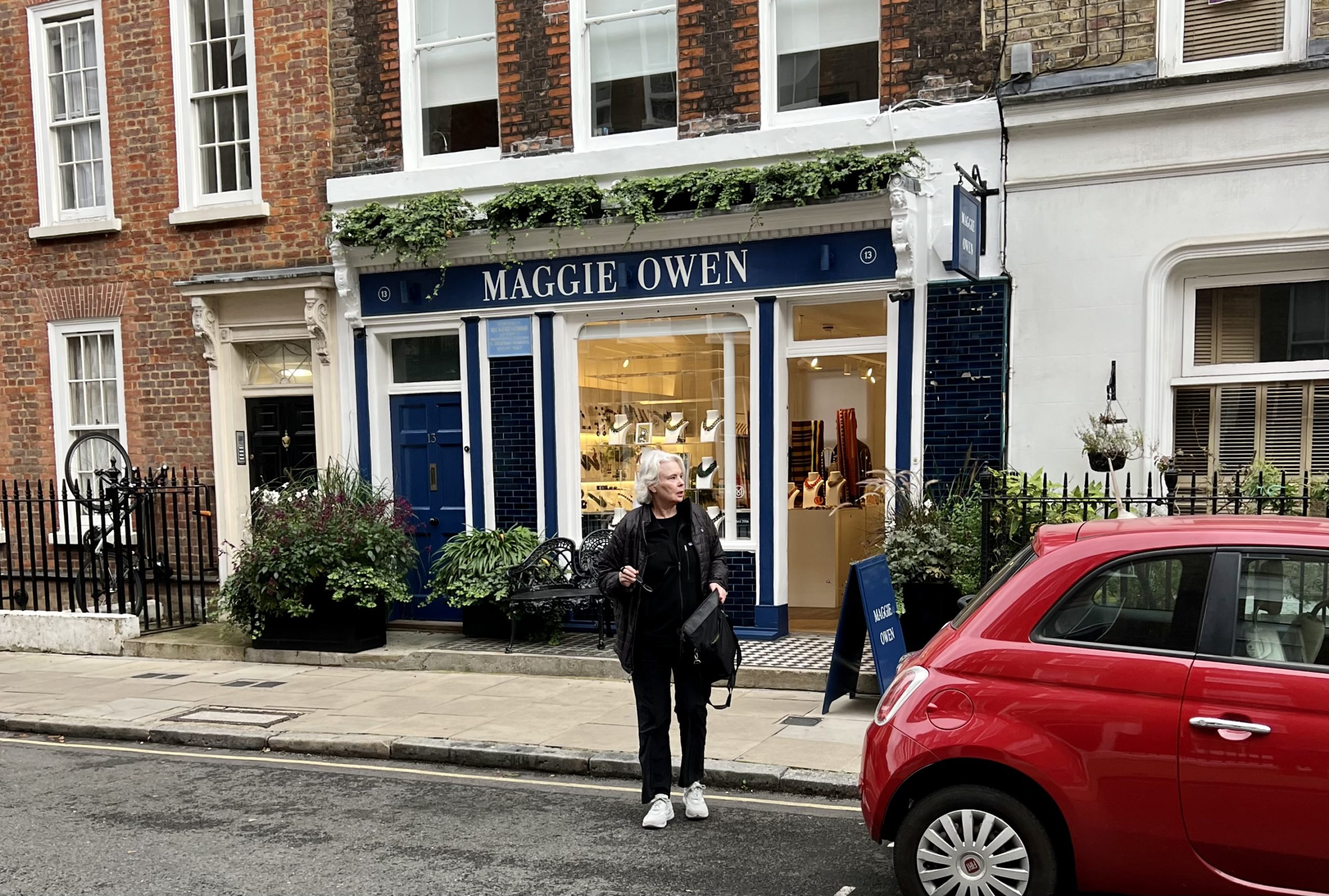
Sad News
We received news today that our dear friend Dea Mattei passed away peacefully on Saturday, 24 September. Special person. Big Heart. One hundred years old. The last of her Italian generation in San Mateo. So glad we saw her just before we left. Closes a chapter in our lives.
27 September 2022
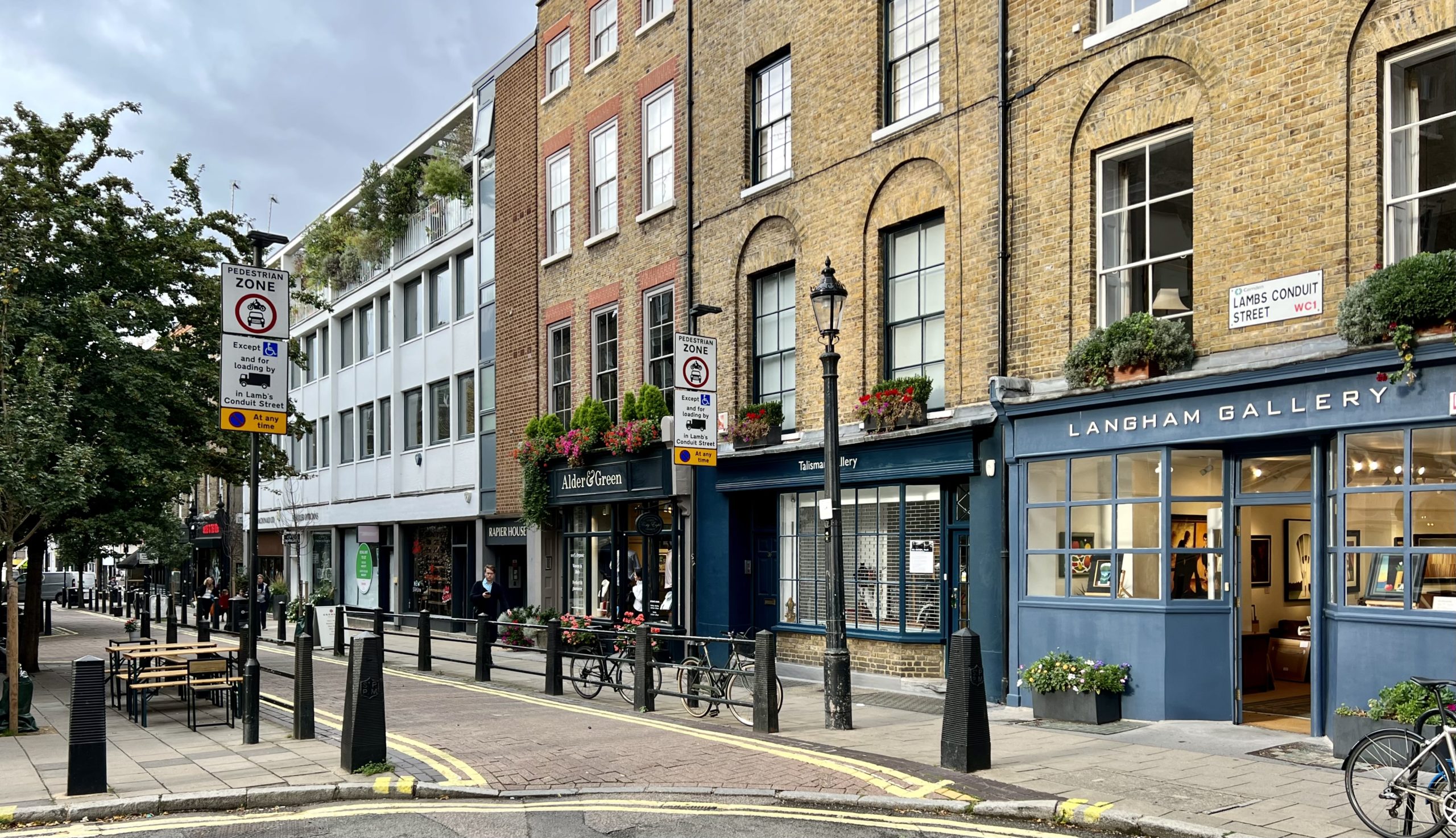
28 September 2022
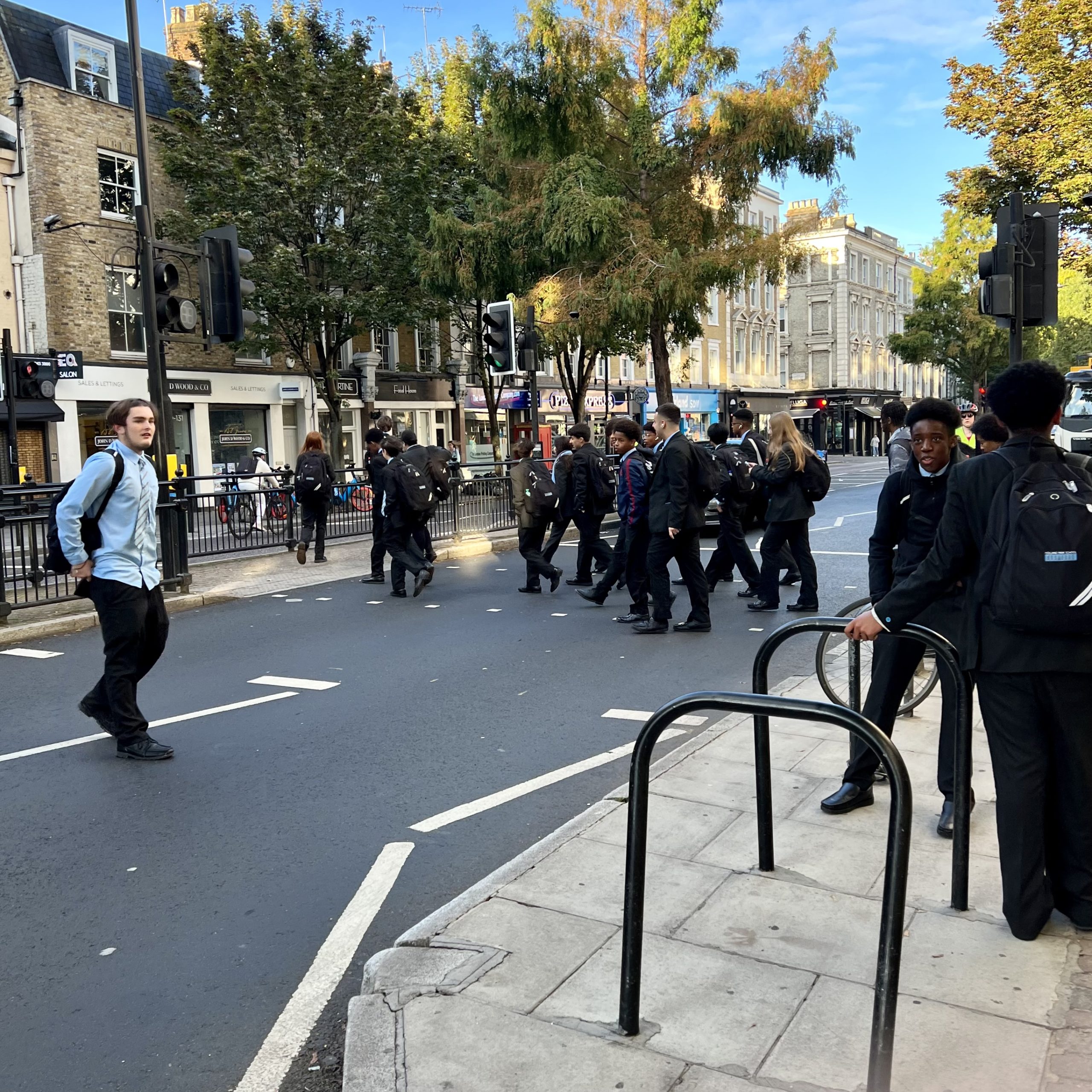
Rivals the University of Oregon women’s volleyball team that also has matching roller luggage!
Elizabeth Line
Jane, this is for you. Jane Howard—Robert’s close friend from Boston, our wedding best “man,” and avid transportation planner—told Robert that he and Bonnie MUST ride on the new Elizabeth line. It stretches 100 kilometers. Each station is designed by a different architect. We got on at Tottenham Court Road, which required a new paid tube entry. The station is sleek and seems to be in direct response to the older claustrophobic stations. The new station is simple, elegant, and generous in size. The photos don’t quite convey how large the hallways are. Signage is all digital and the cars offer a variety of seating arrangements. Very slick. Thanks Jane!
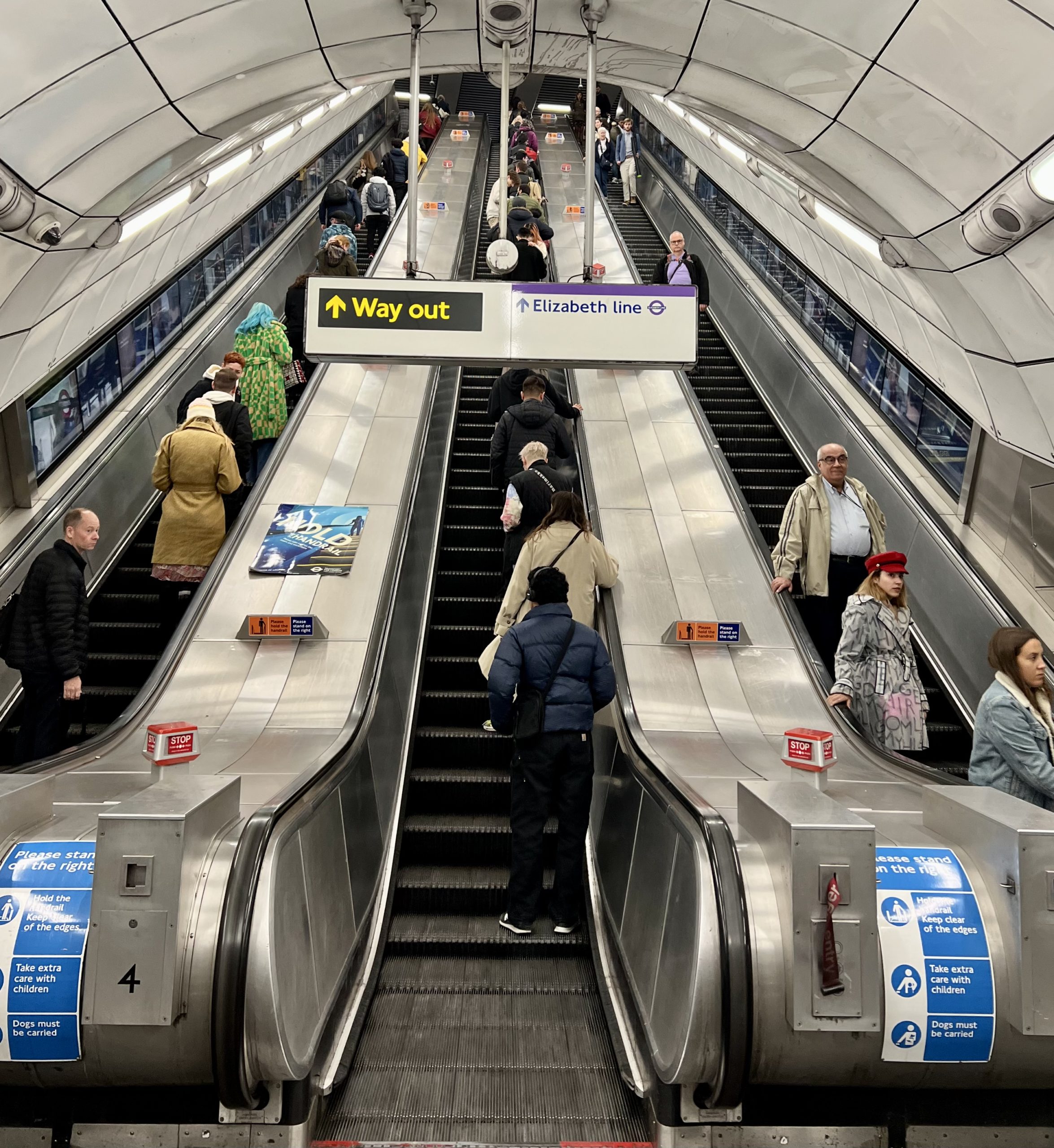
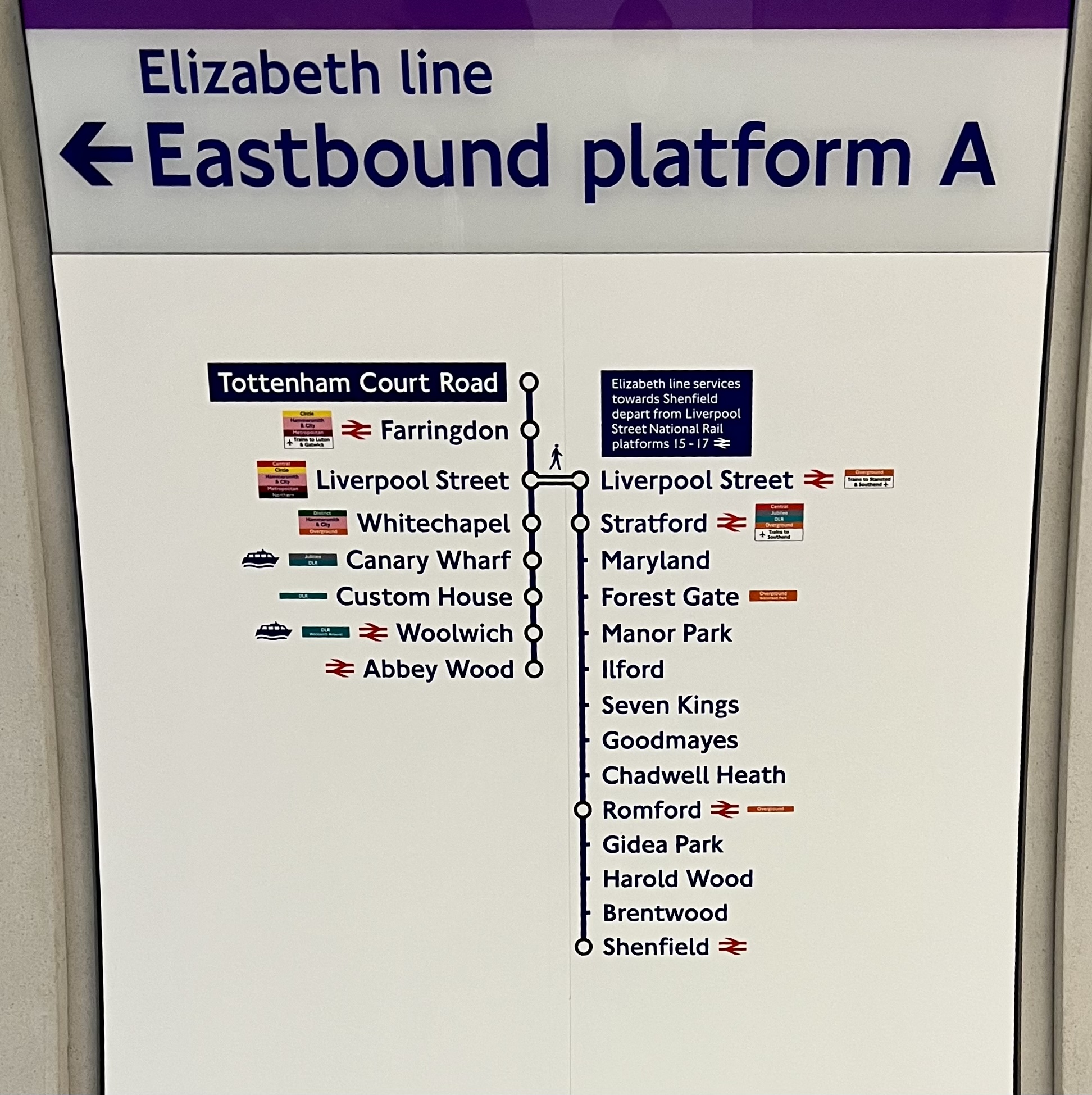
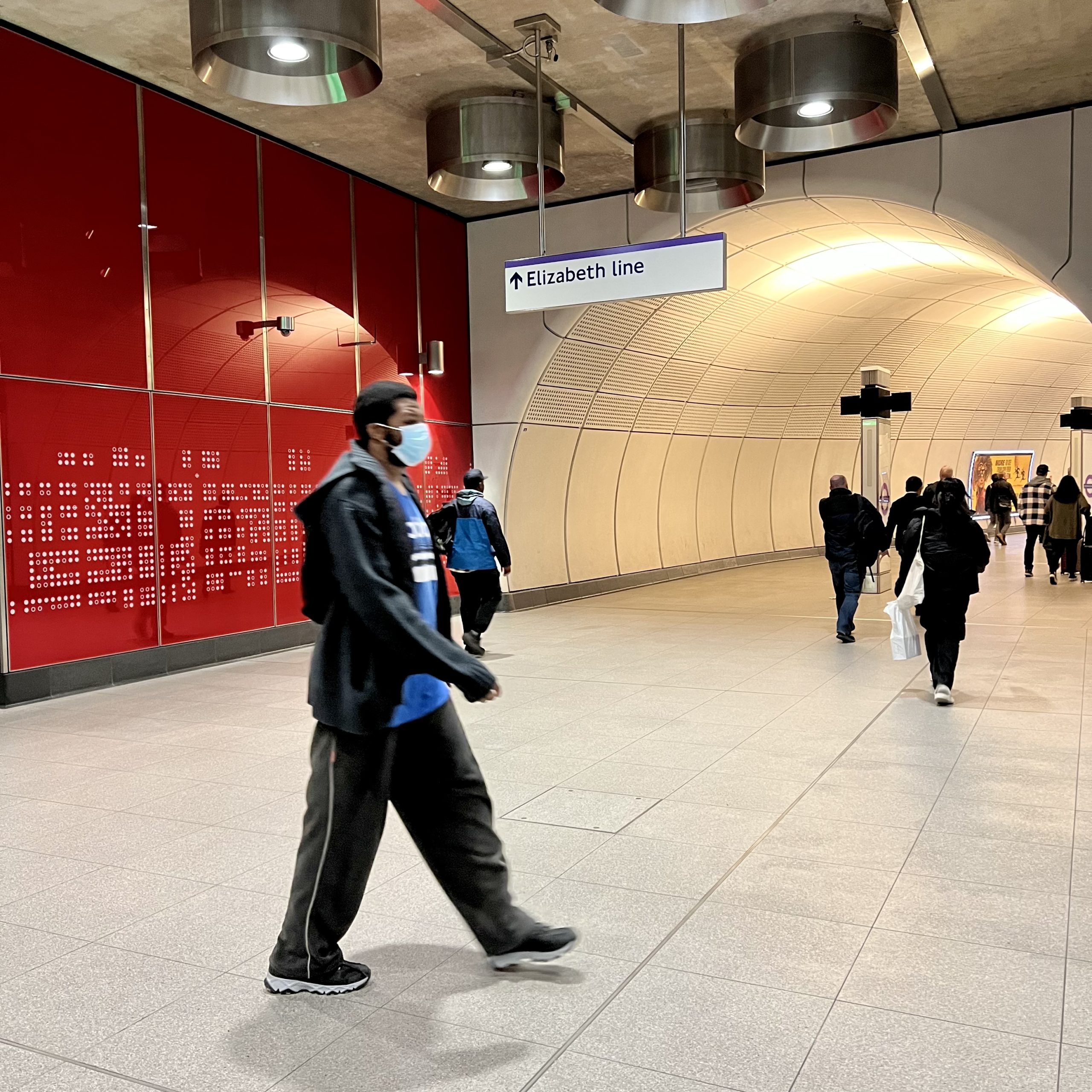
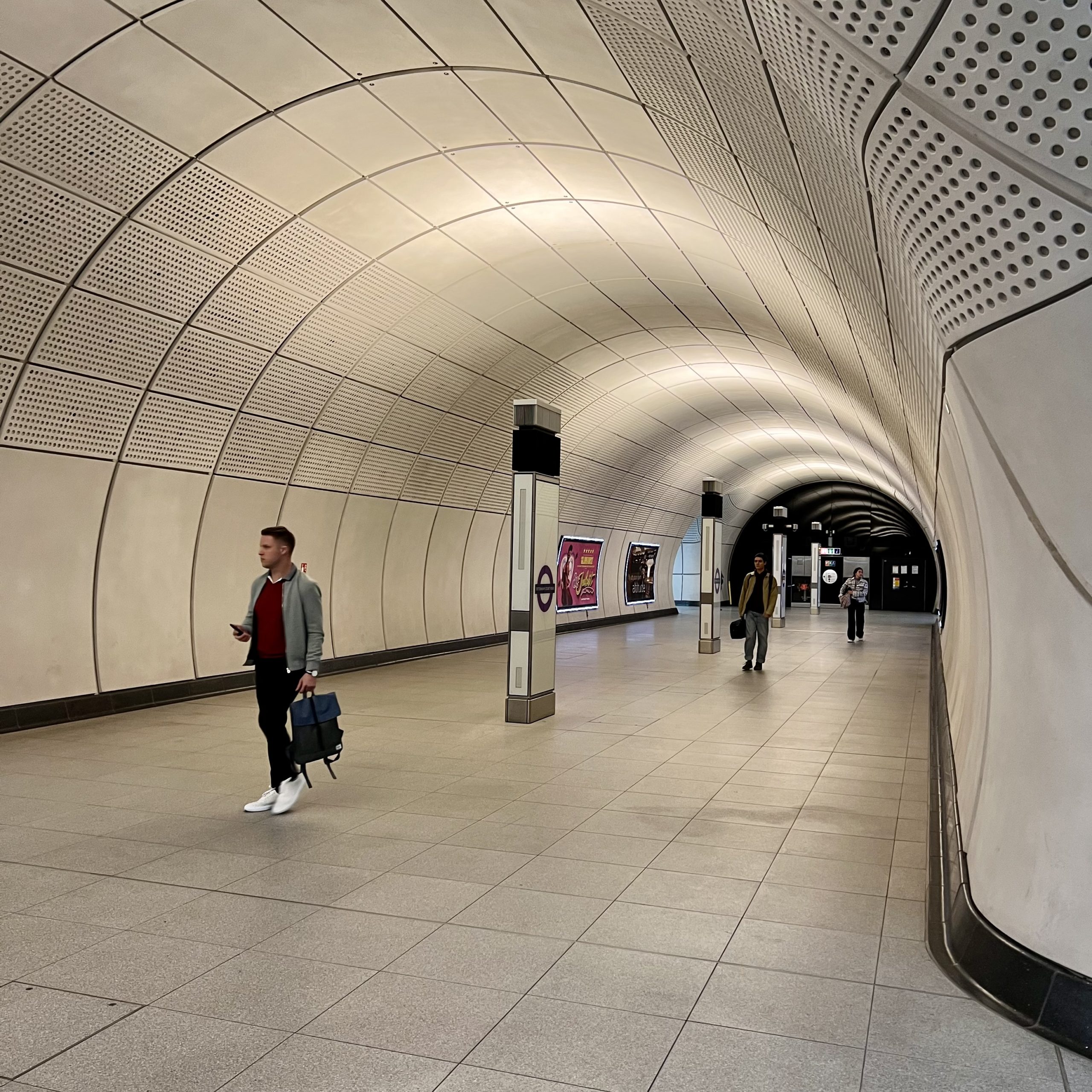
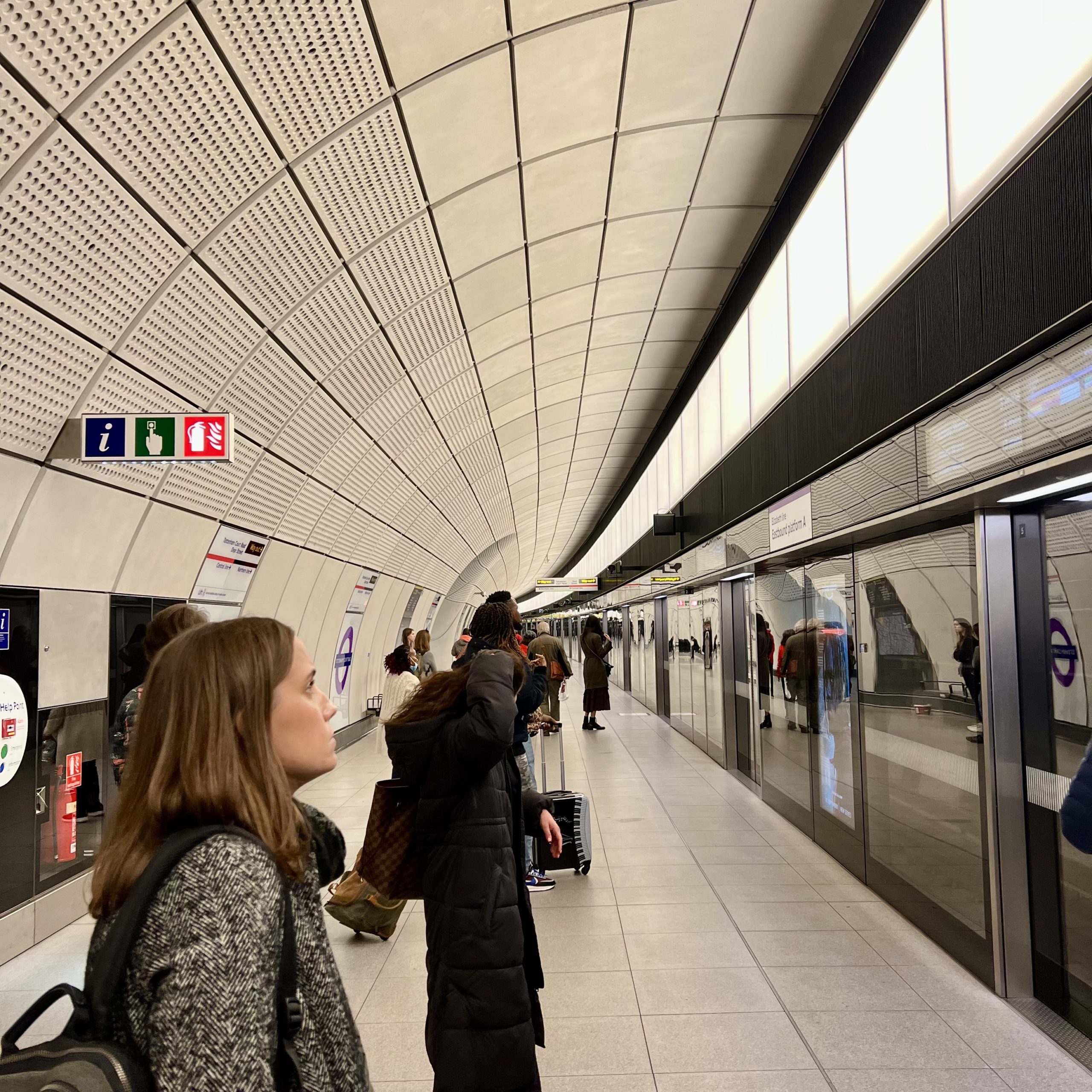
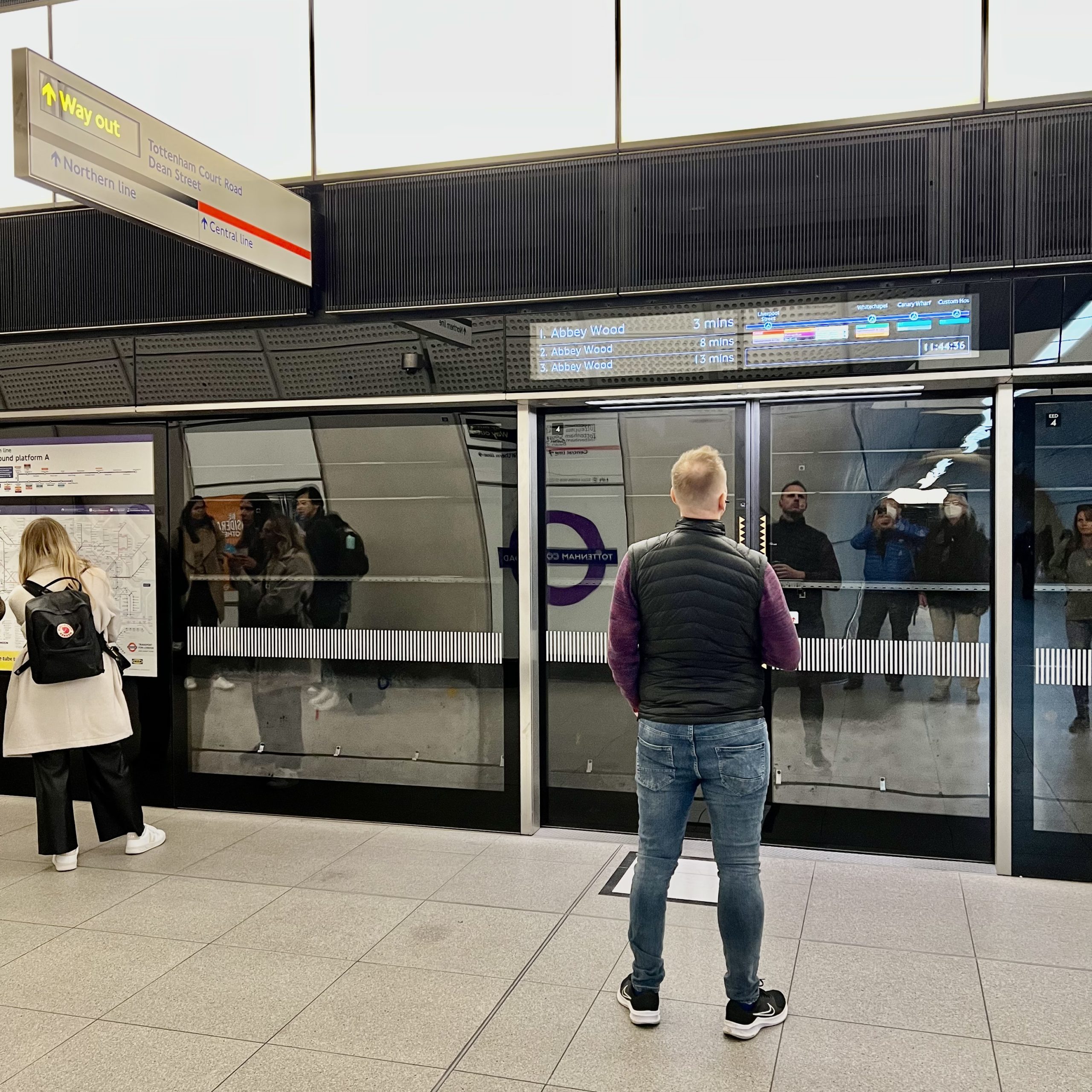
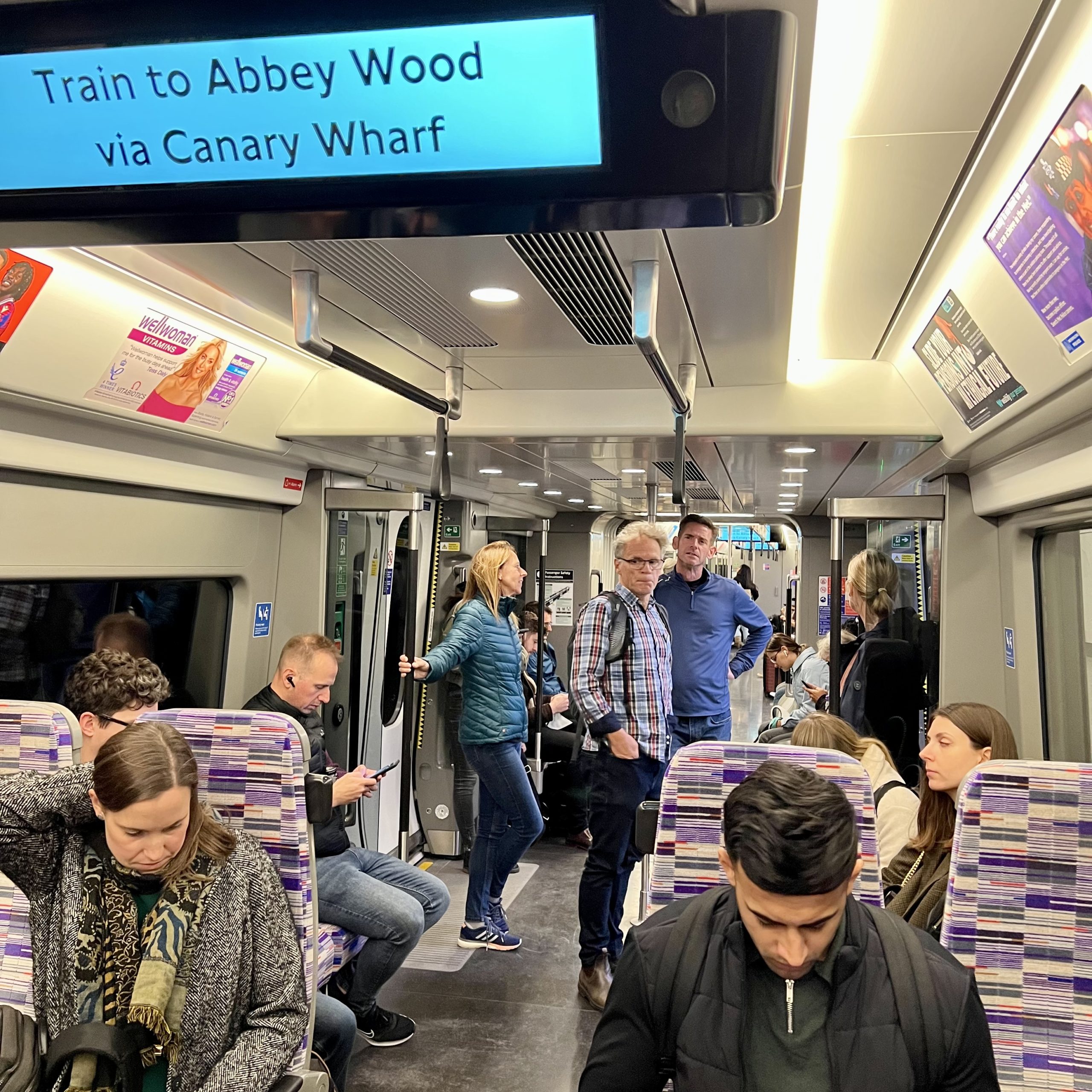
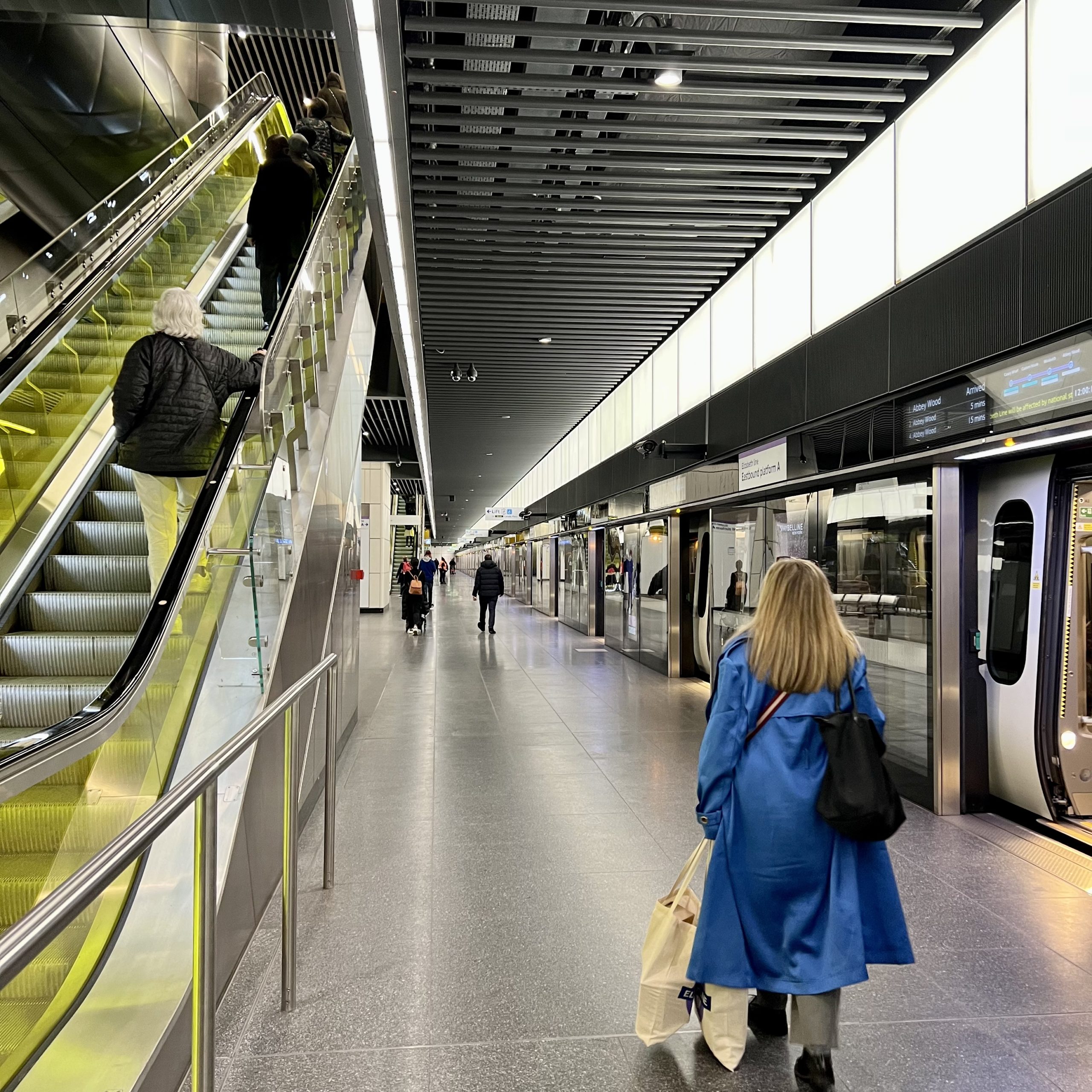
Canary Wharf
We exited the Elizabeth line on the east side of London at Canary Wharf. It is one of the main financial centers in the United Kingdom. It was the site of West India Docks, a kind of square island at the side of the Thames, that became obsolete in the 1970s with the increase in container shipping. The 97 acres, just a ten-minute walk from end to end, have more that 16 million square feet of development and more is under construction. The density of high-rise buildings is amazing, and walkways and roadways are on several levels. Channels of water run through, so Bonnie was reminded of being at the Exploratorium. While it does have some residential buildings, it can’t be lively at night. We arrived at lunch hour, and the walks and underground shopping center were packed. We found the place quite corporate. A little too sterile. As at other nodes in London, the architects seemed to have a ”get-out-of-design-review” card. Some buildings are well designed. Others are too contrived. The tallest building is by Pelli. The master plan was by Skidmore Owens and Merrill.
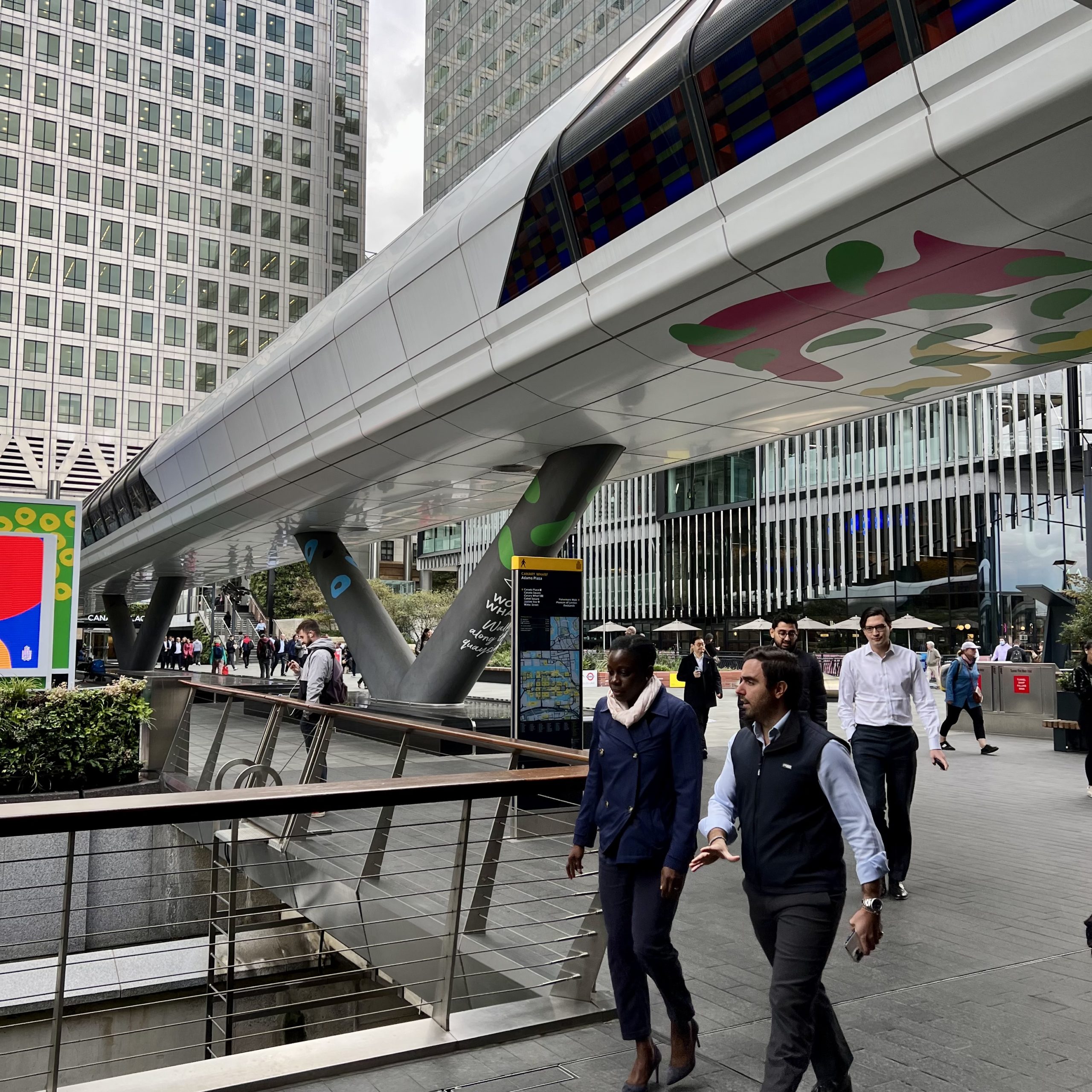
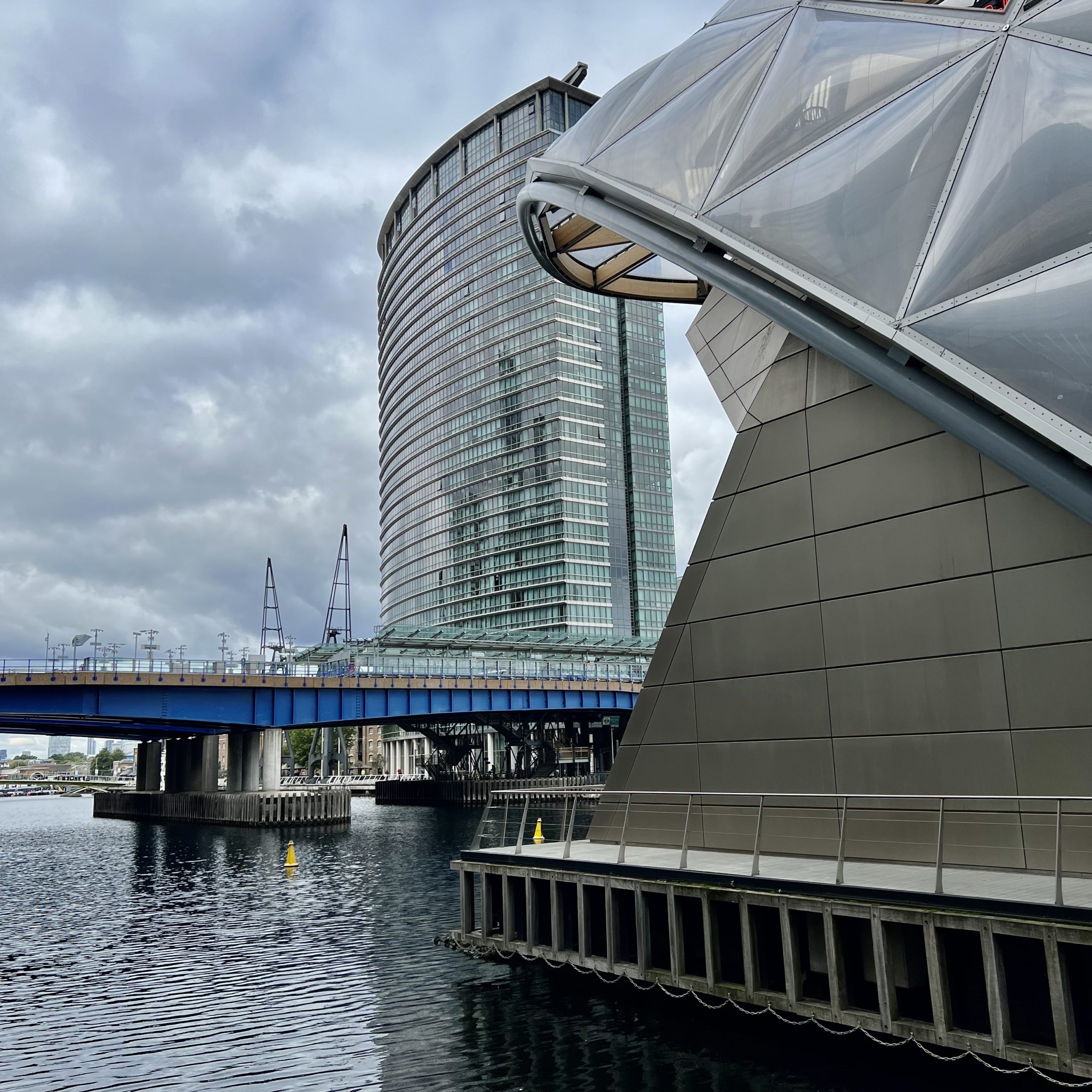
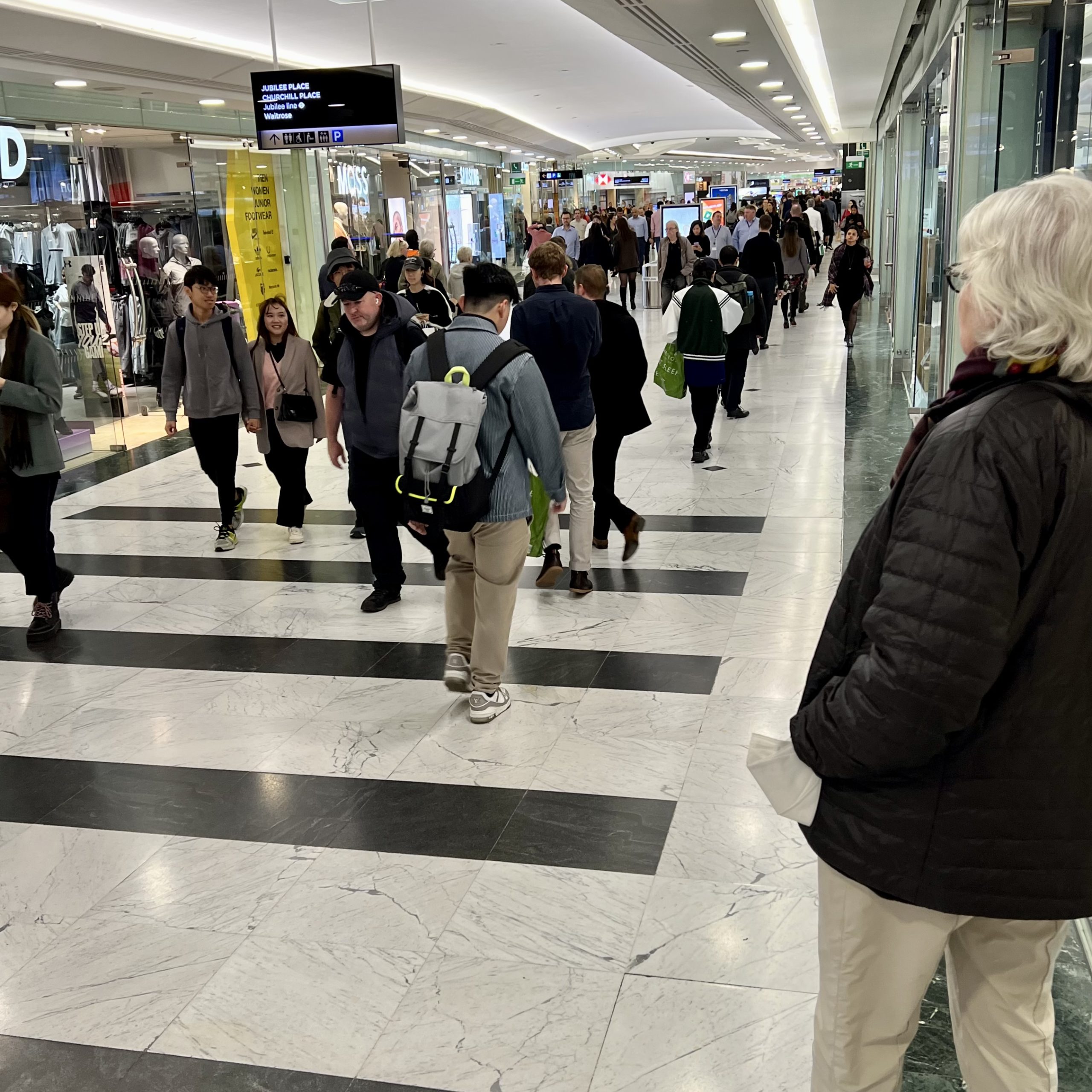
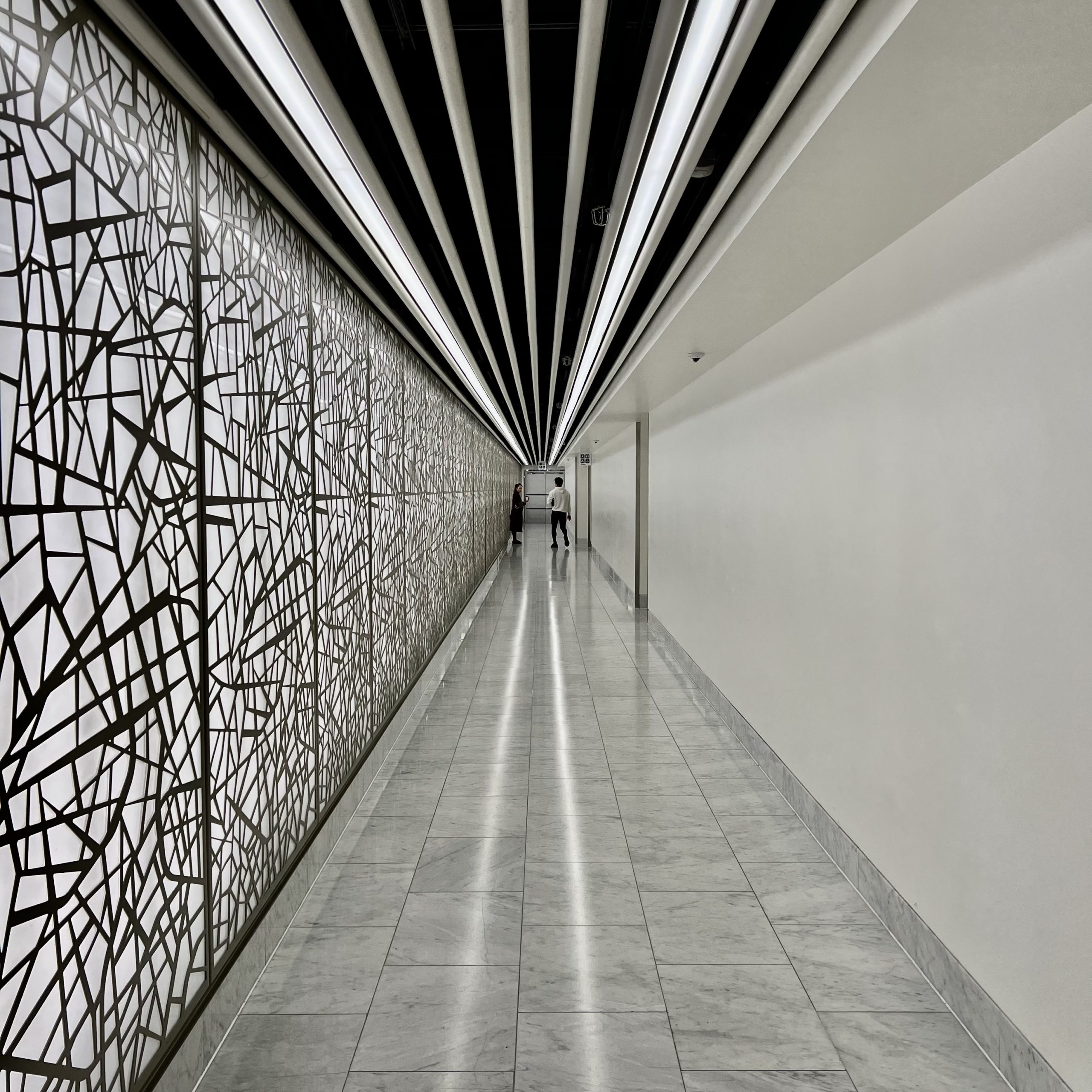
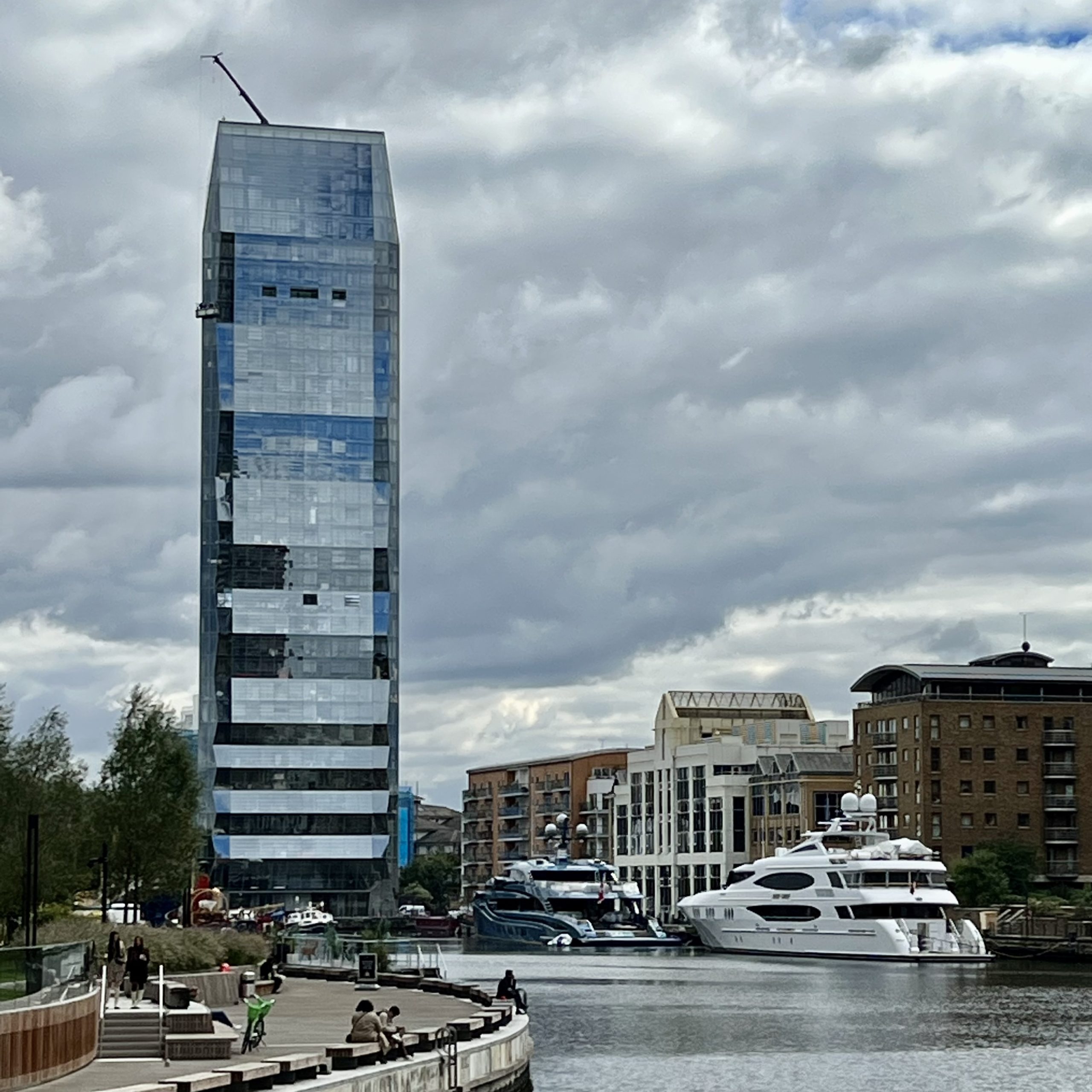
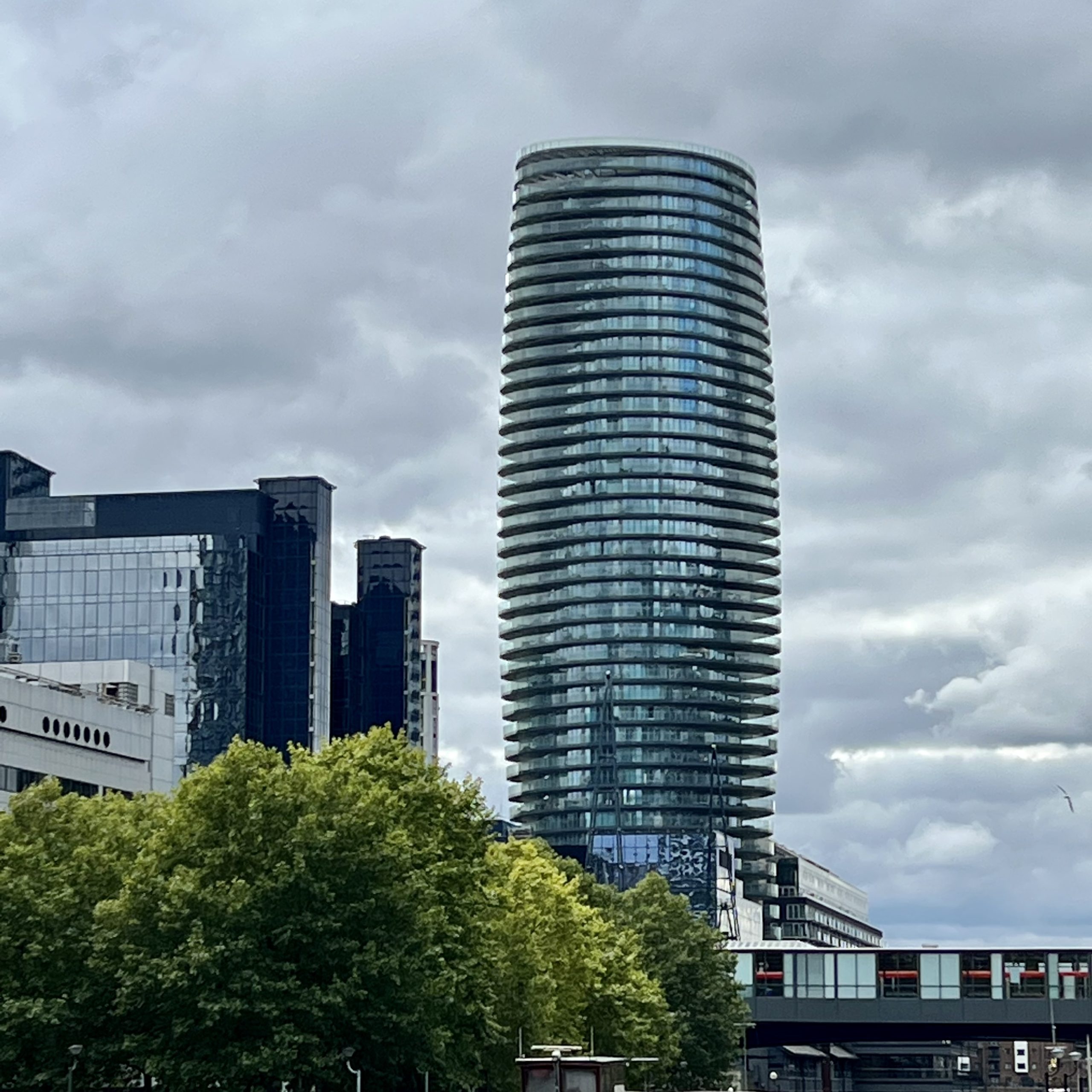
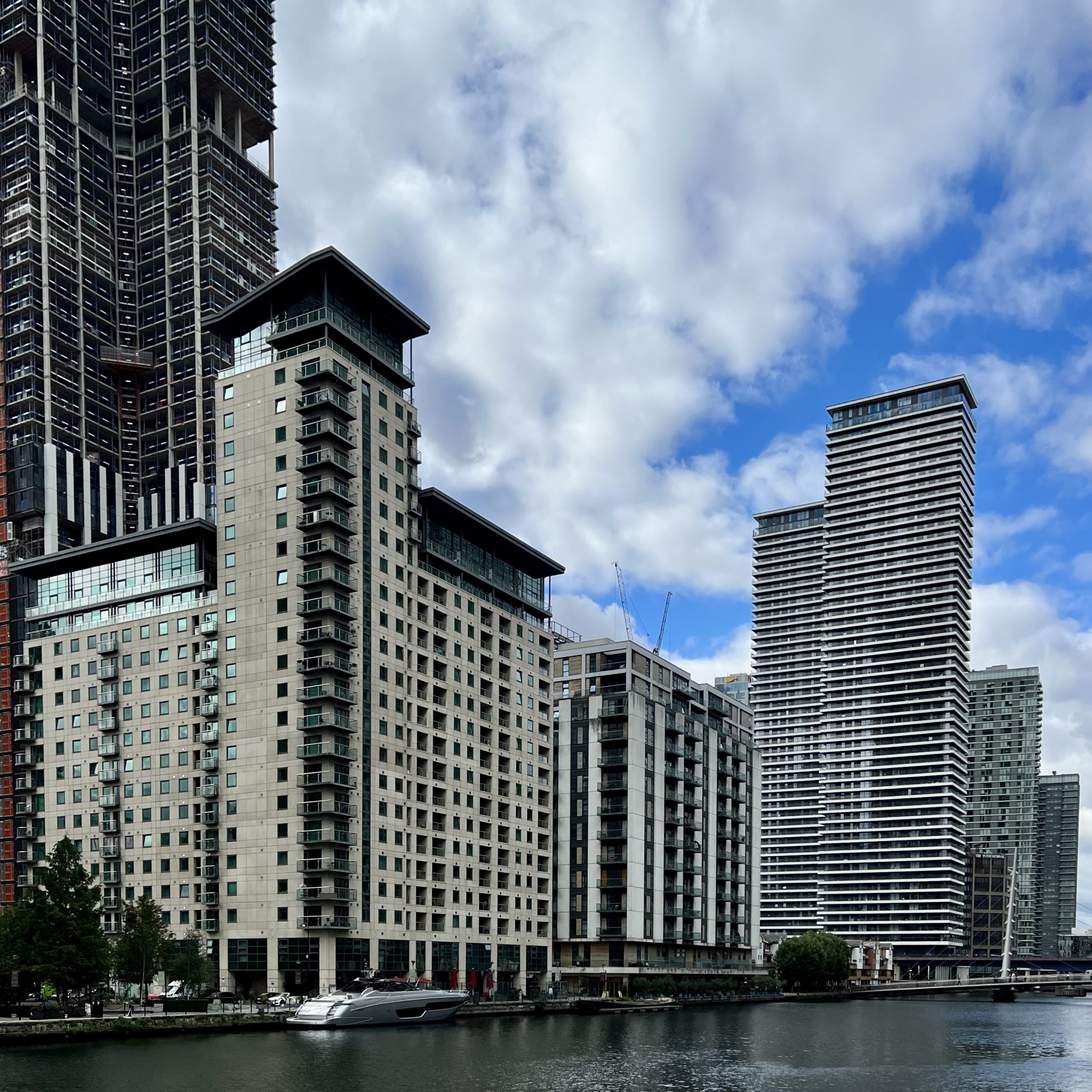
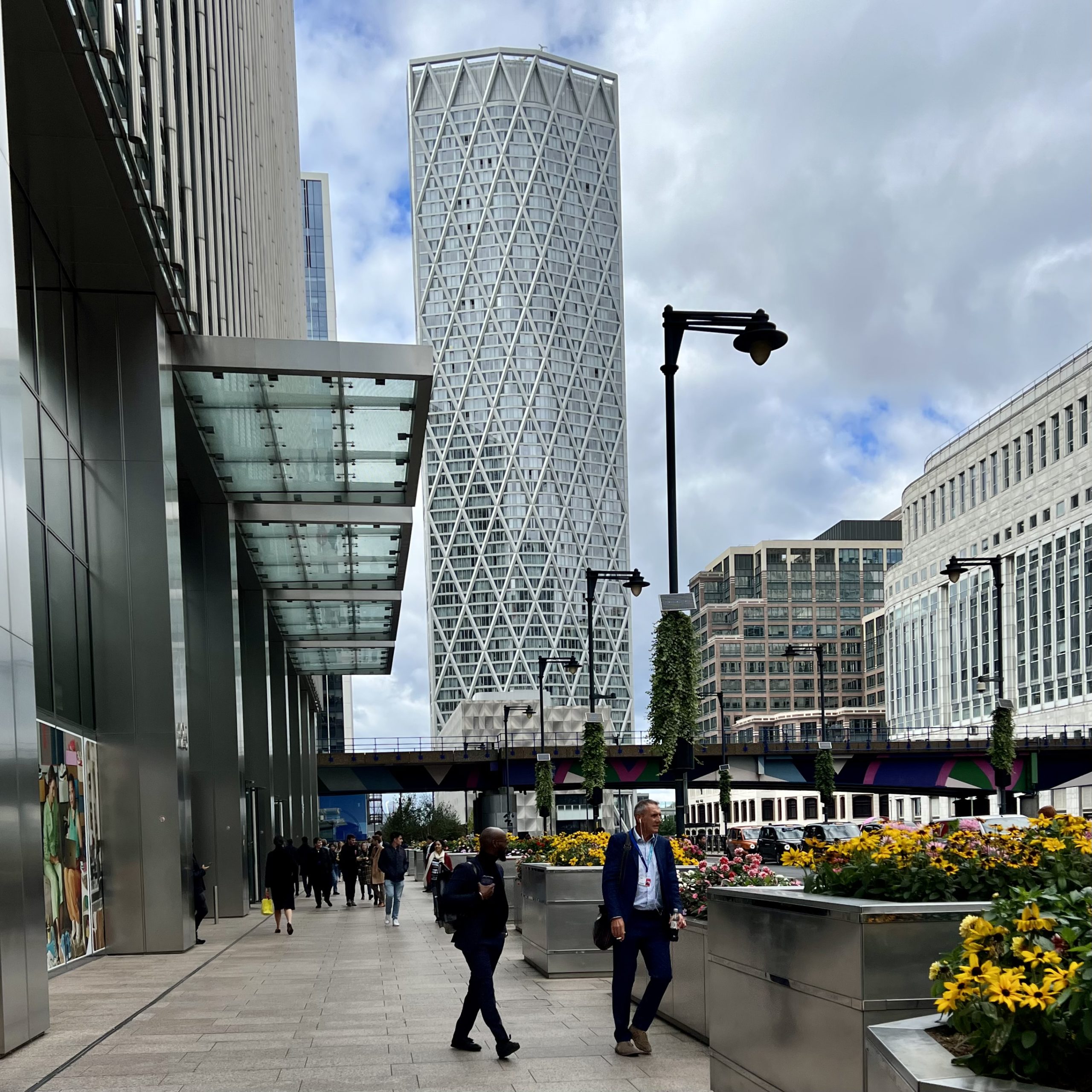
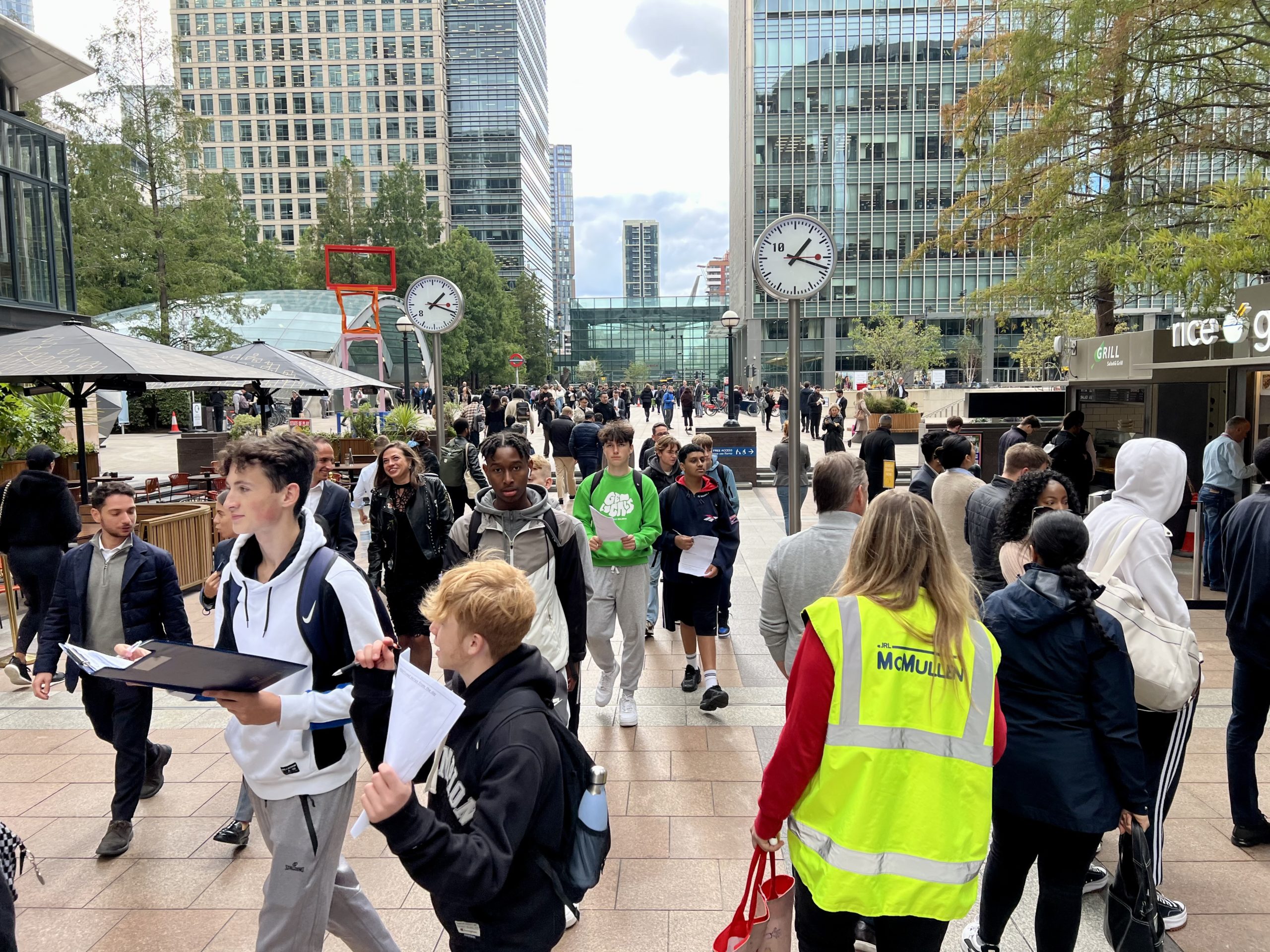
To the Tate Britain by Uber Boat
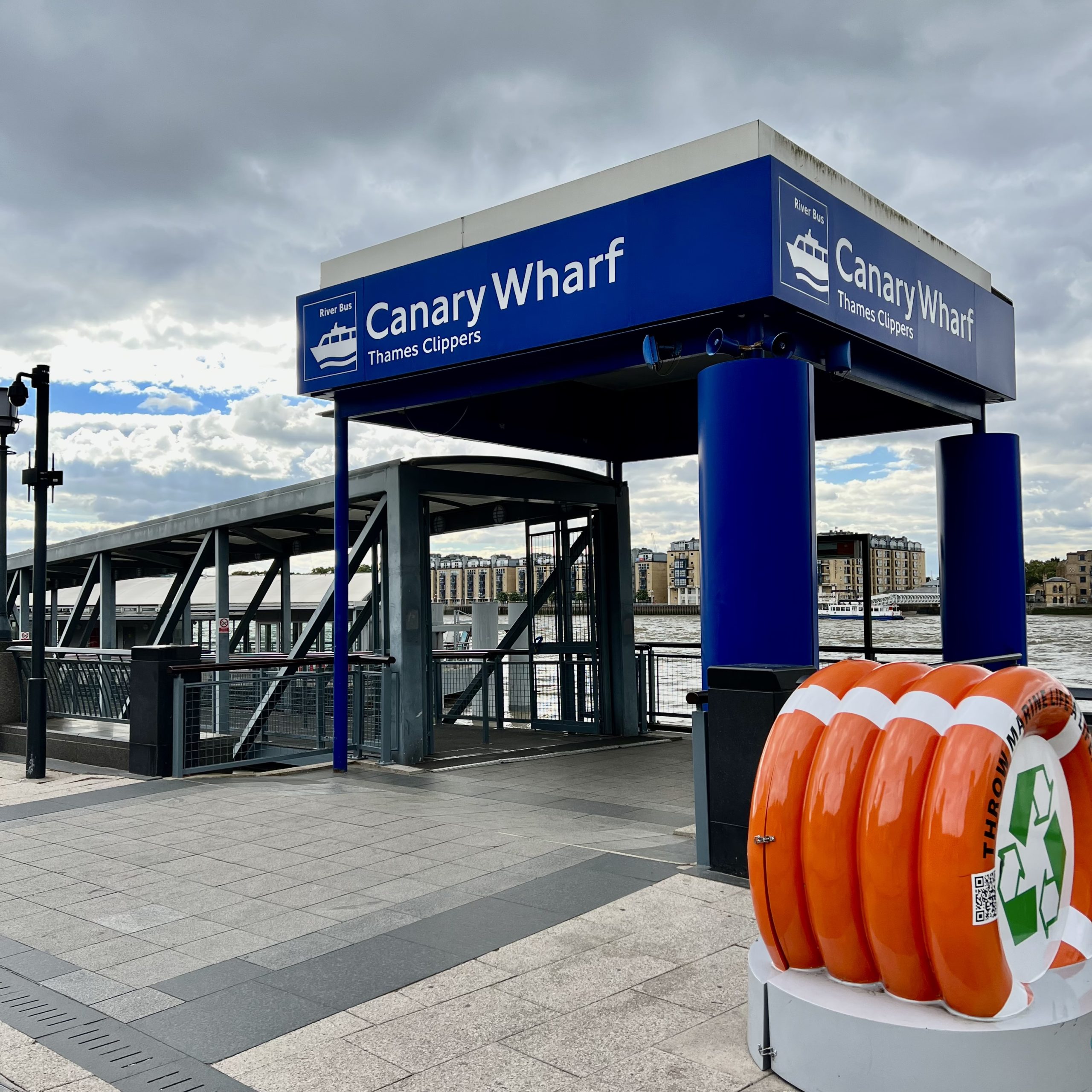
Yes. You got that right. An Uber Boat. Much like a water bus in Venice. We took the ride up the Thames from Canary Wharf, and after several stops, got off at the Millbank Millennium Pier. Nice ride. Saw many popular destinations, like the Tower of London, from the water side. Depite the Uber name, the service is run by the London tube people, so you can tap in with the tube app on your phone. Inexpensive.
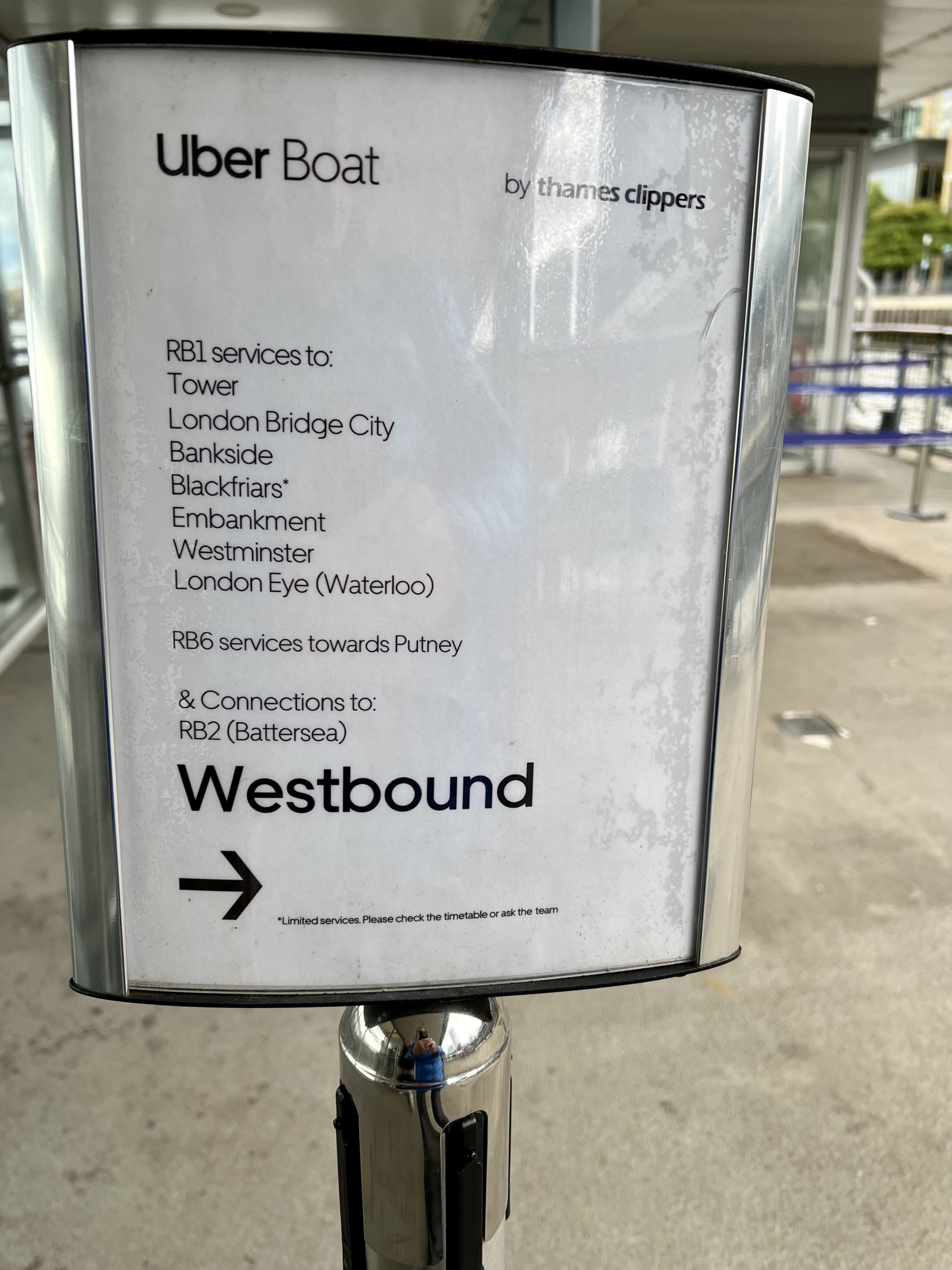
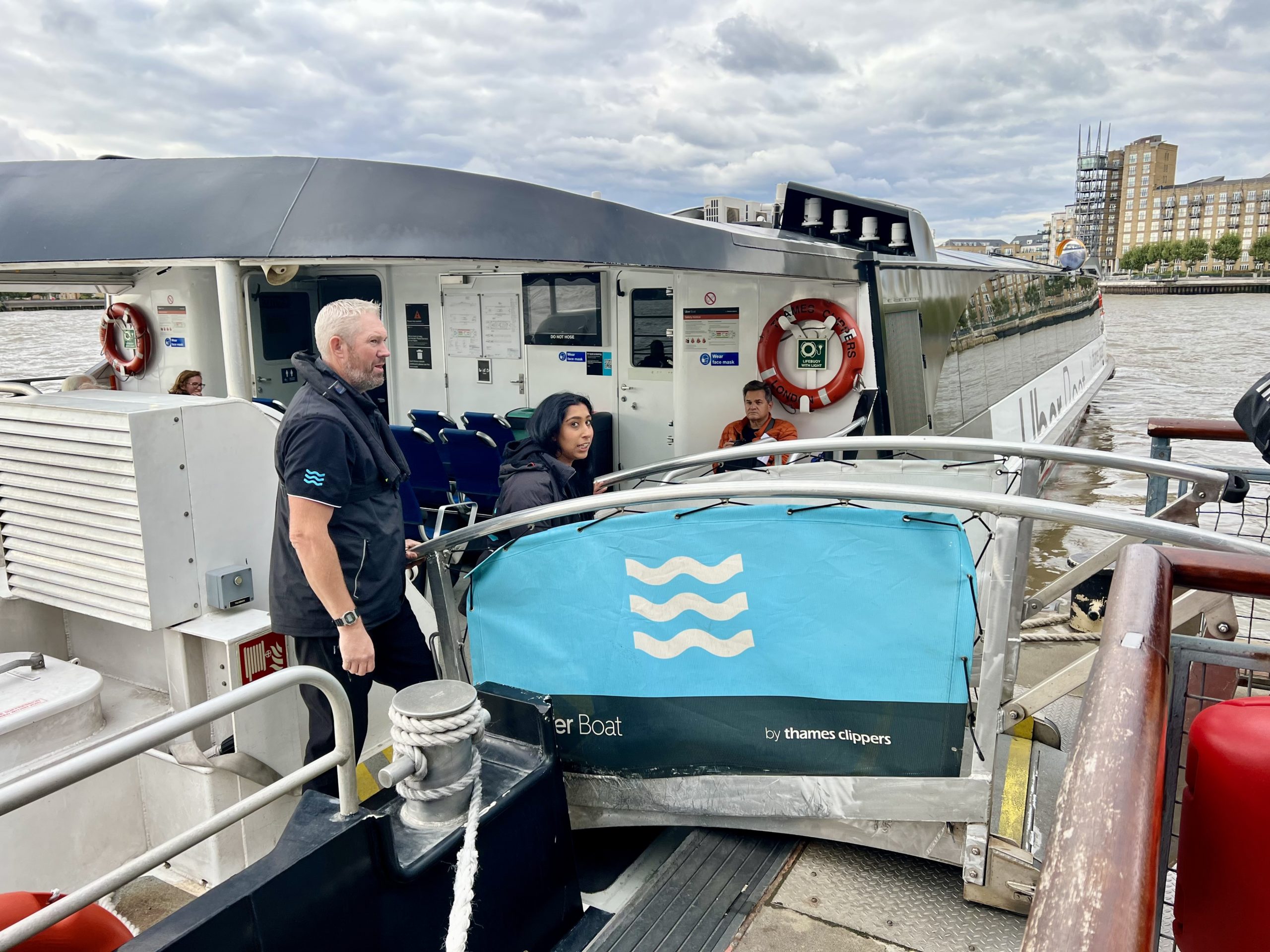

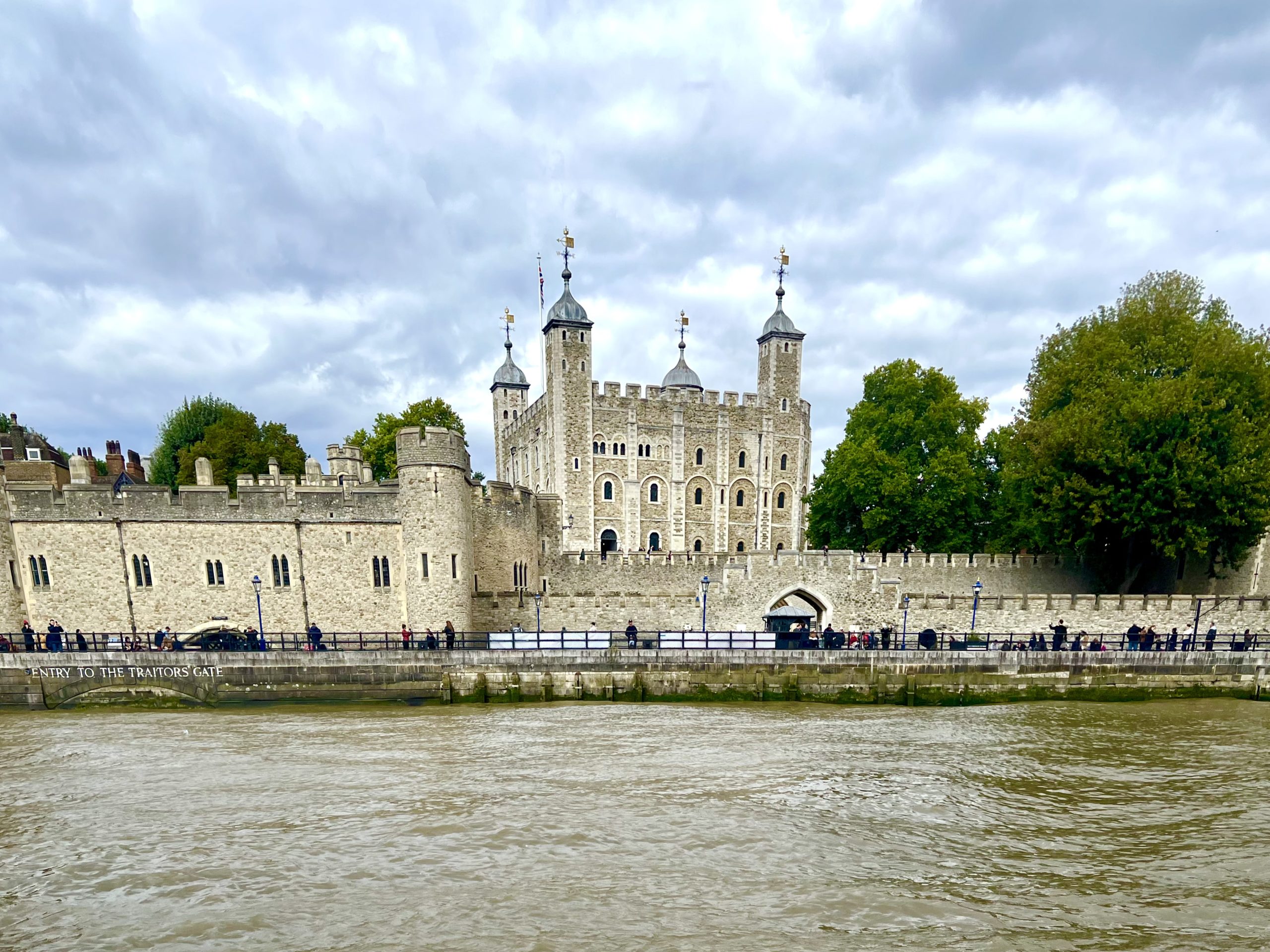
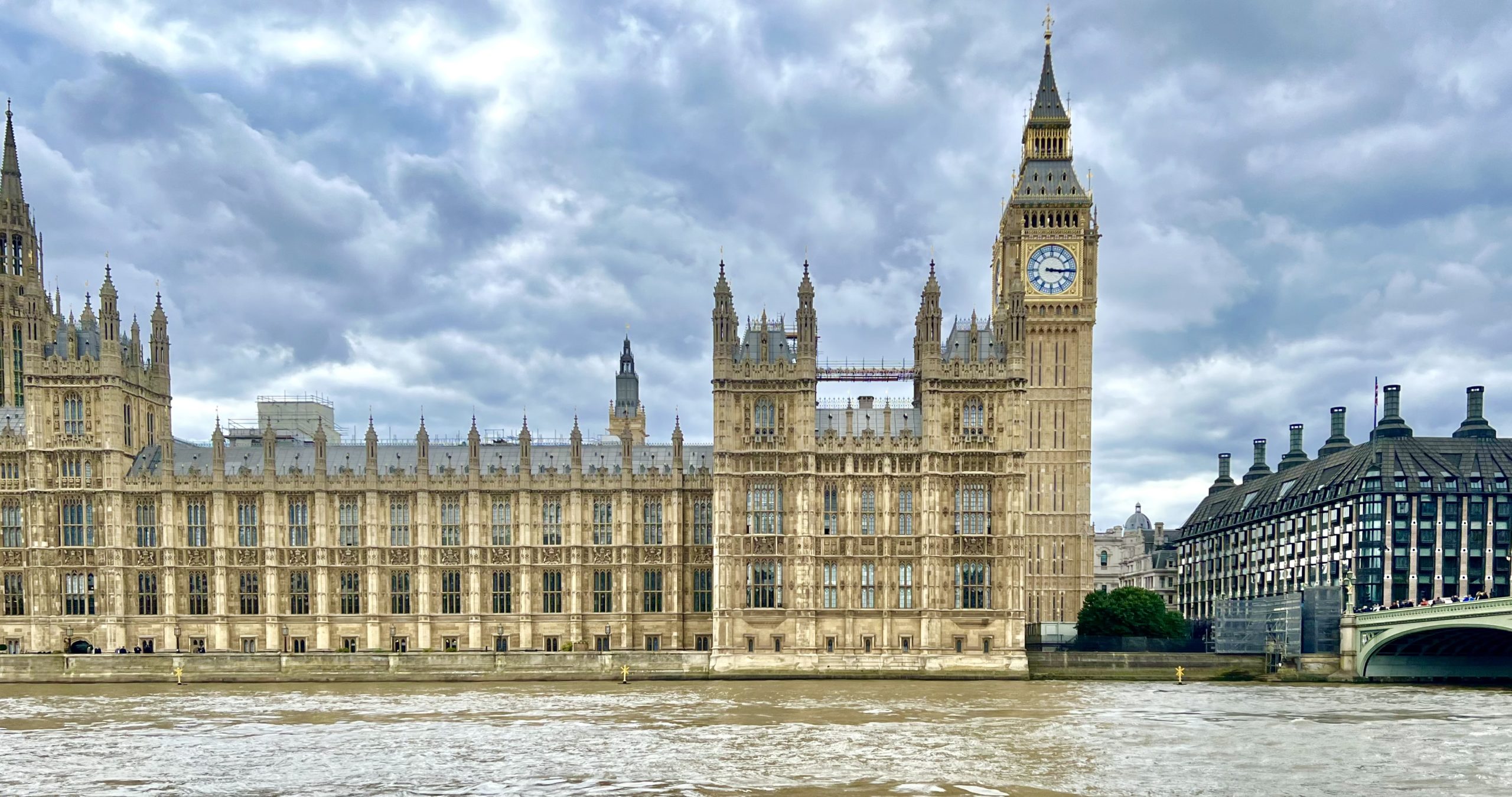
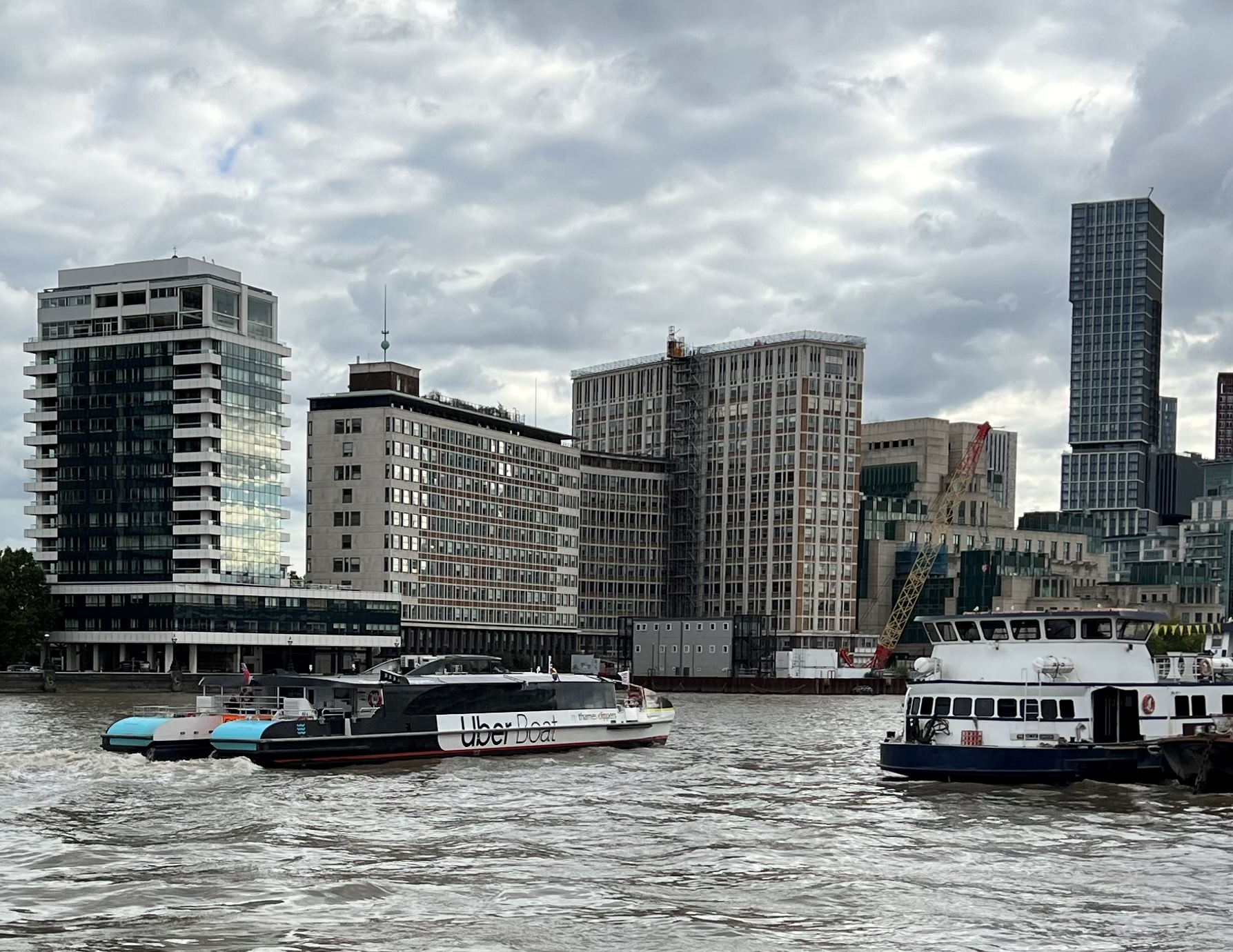
Tate Britain Gallery
Just the right size. British art displayed in chronological order. Lots of Turner and Rothko (even though he wasn’t British).
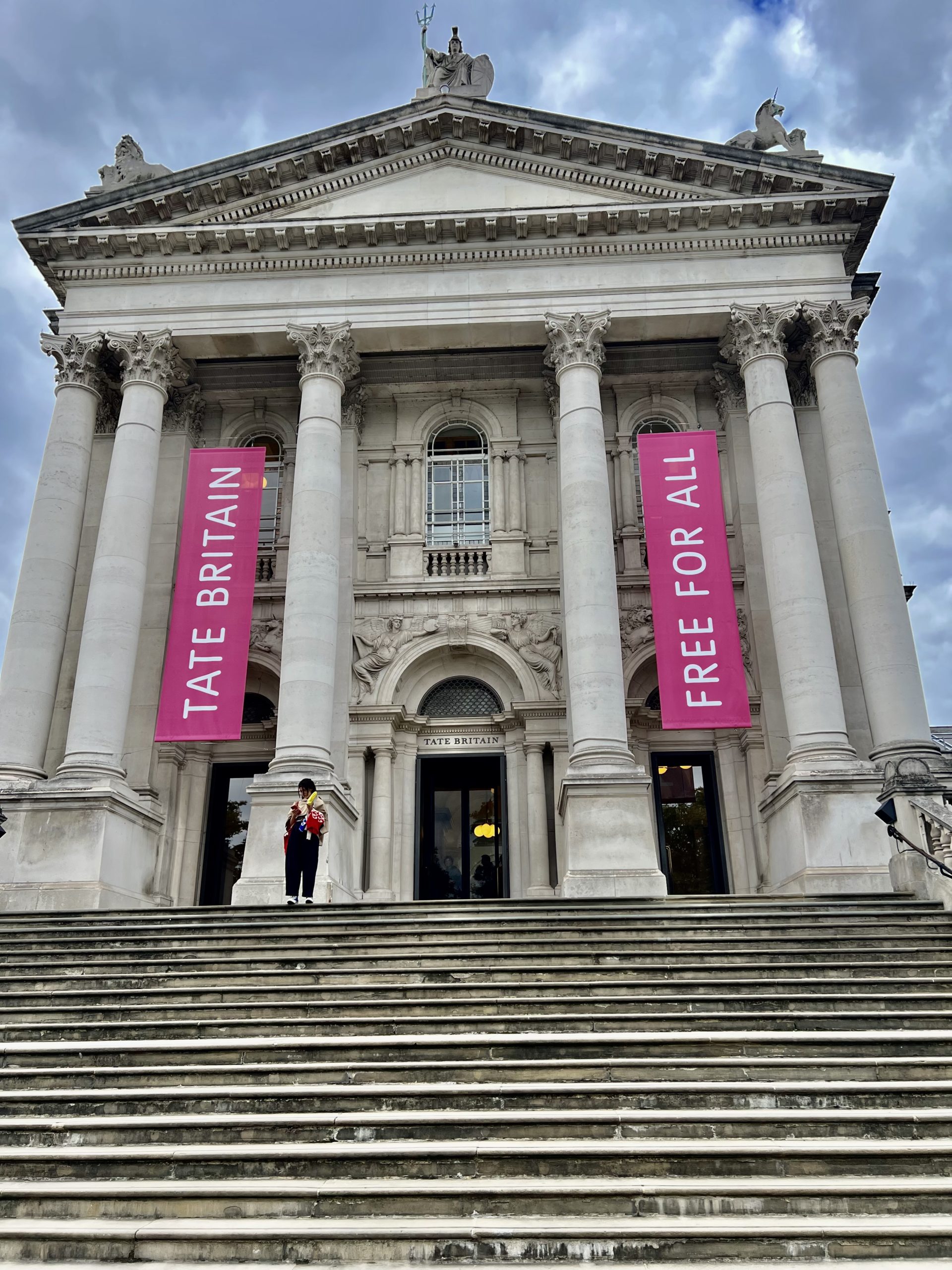
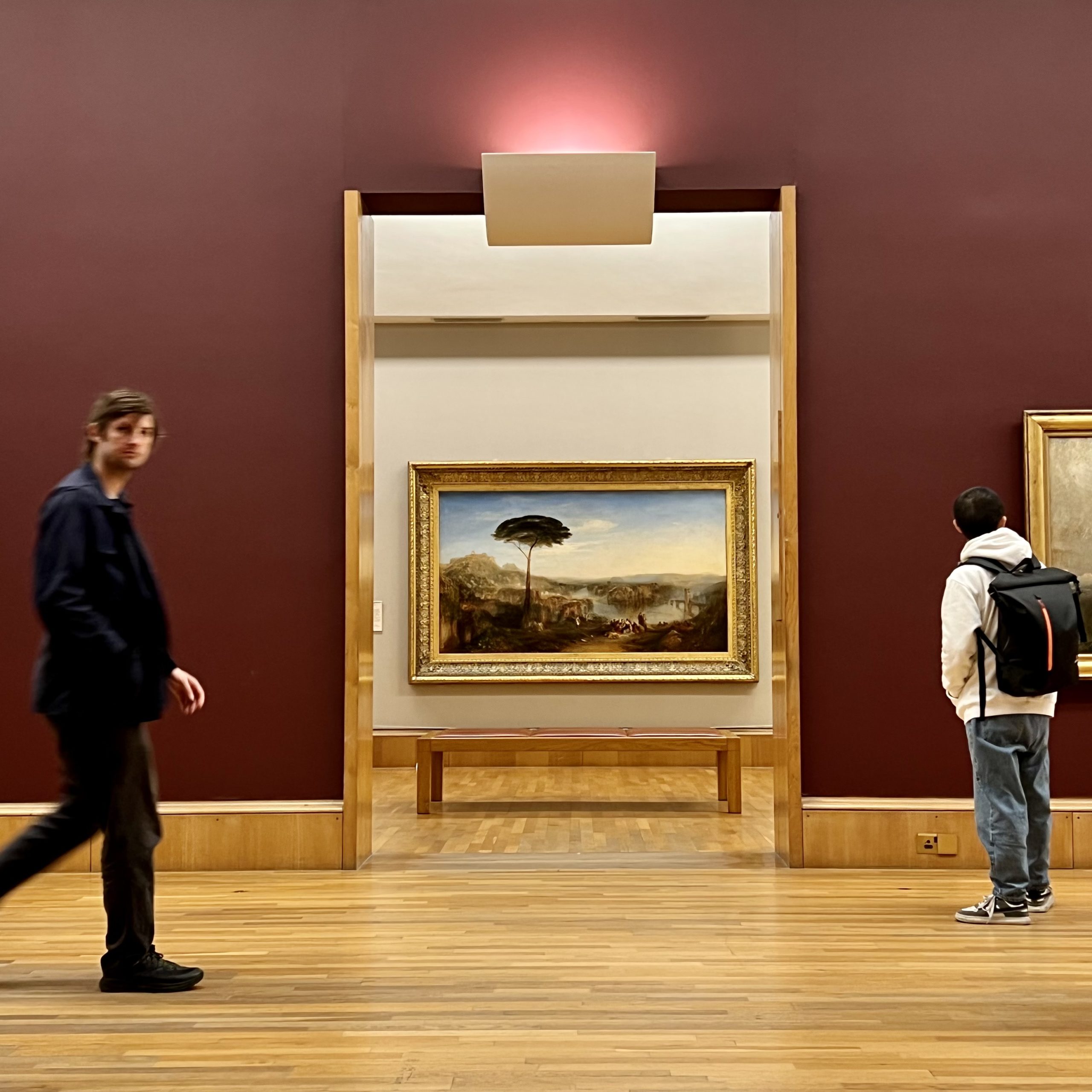
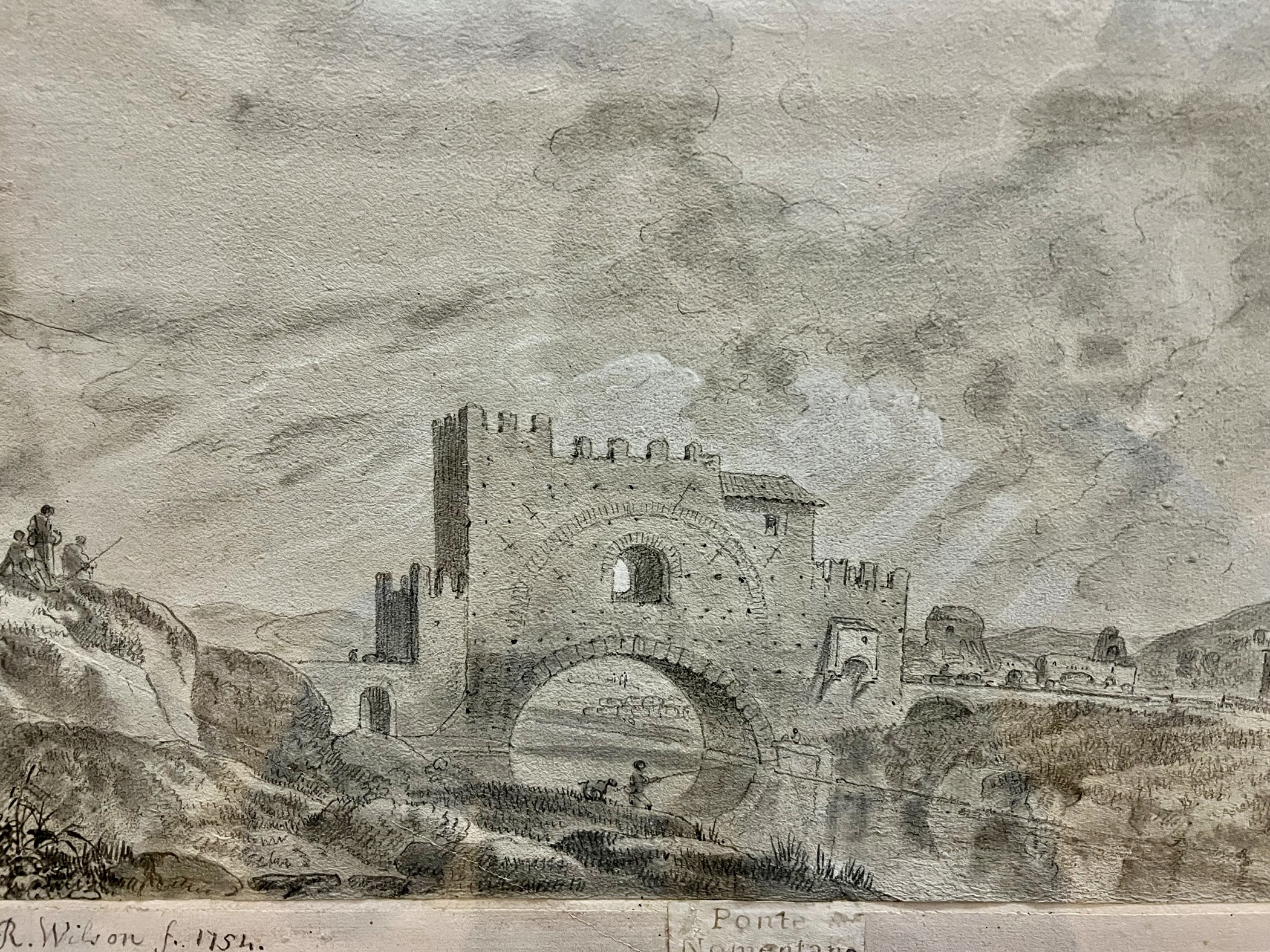
Near my cousins’s homes. An important north entry point into Rome.
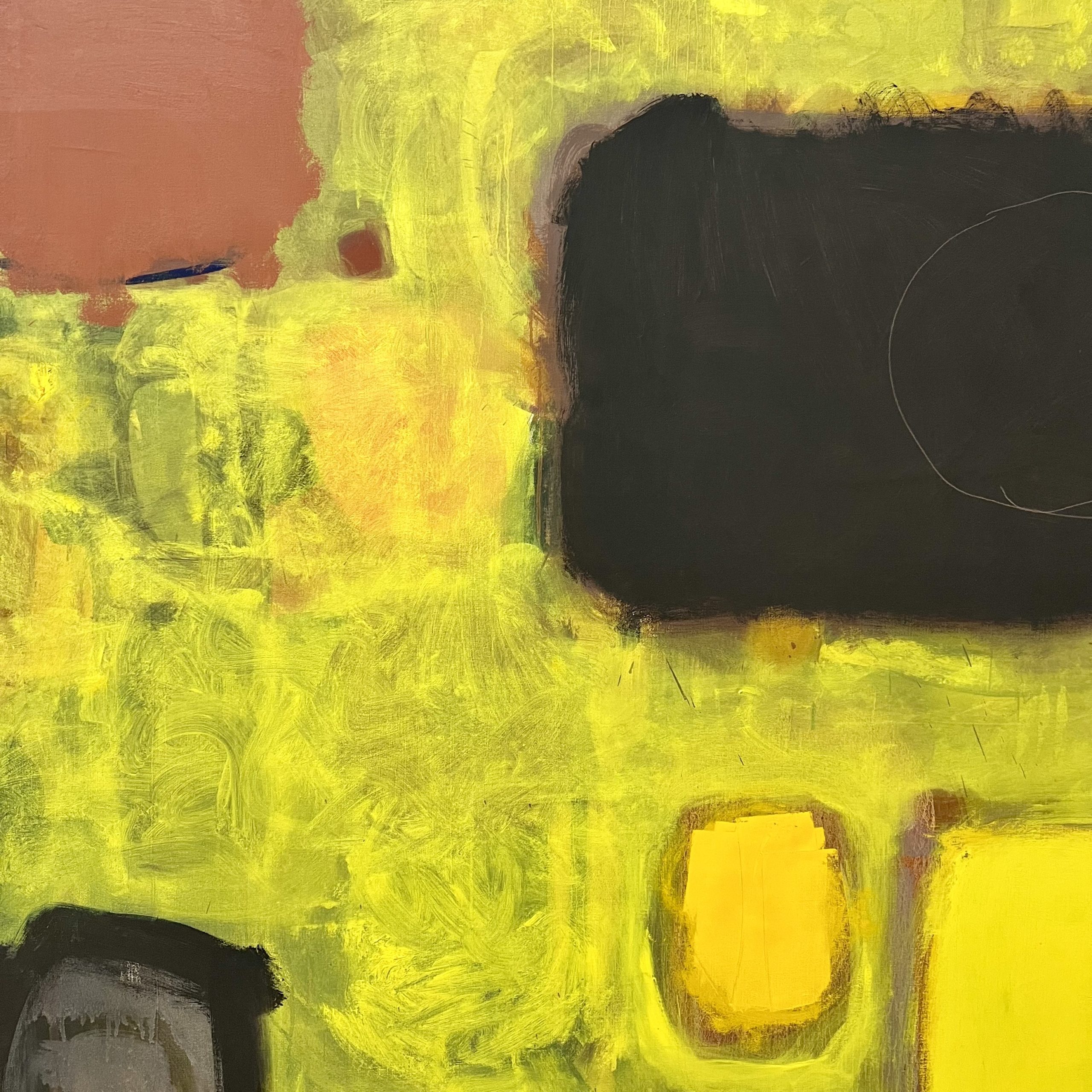
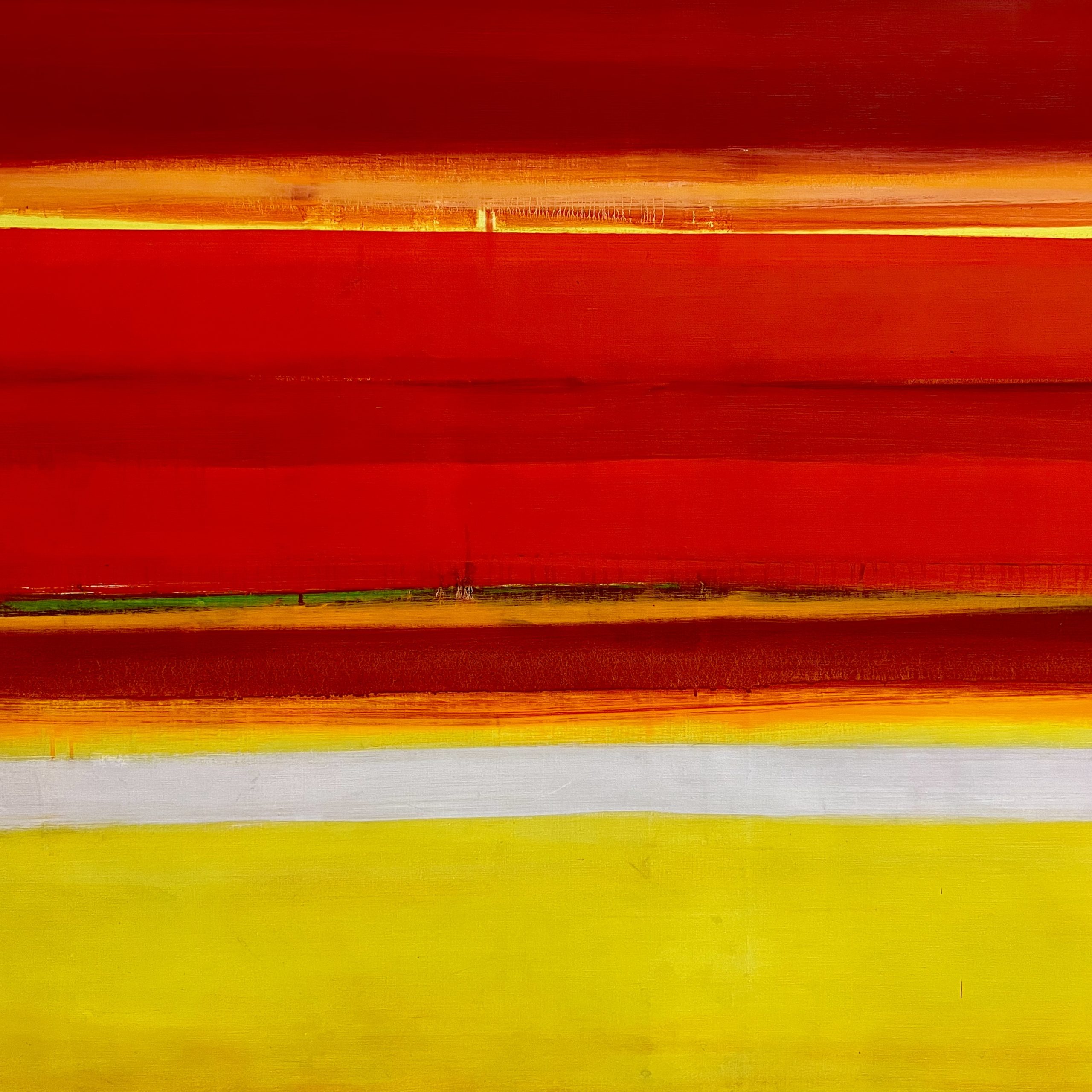
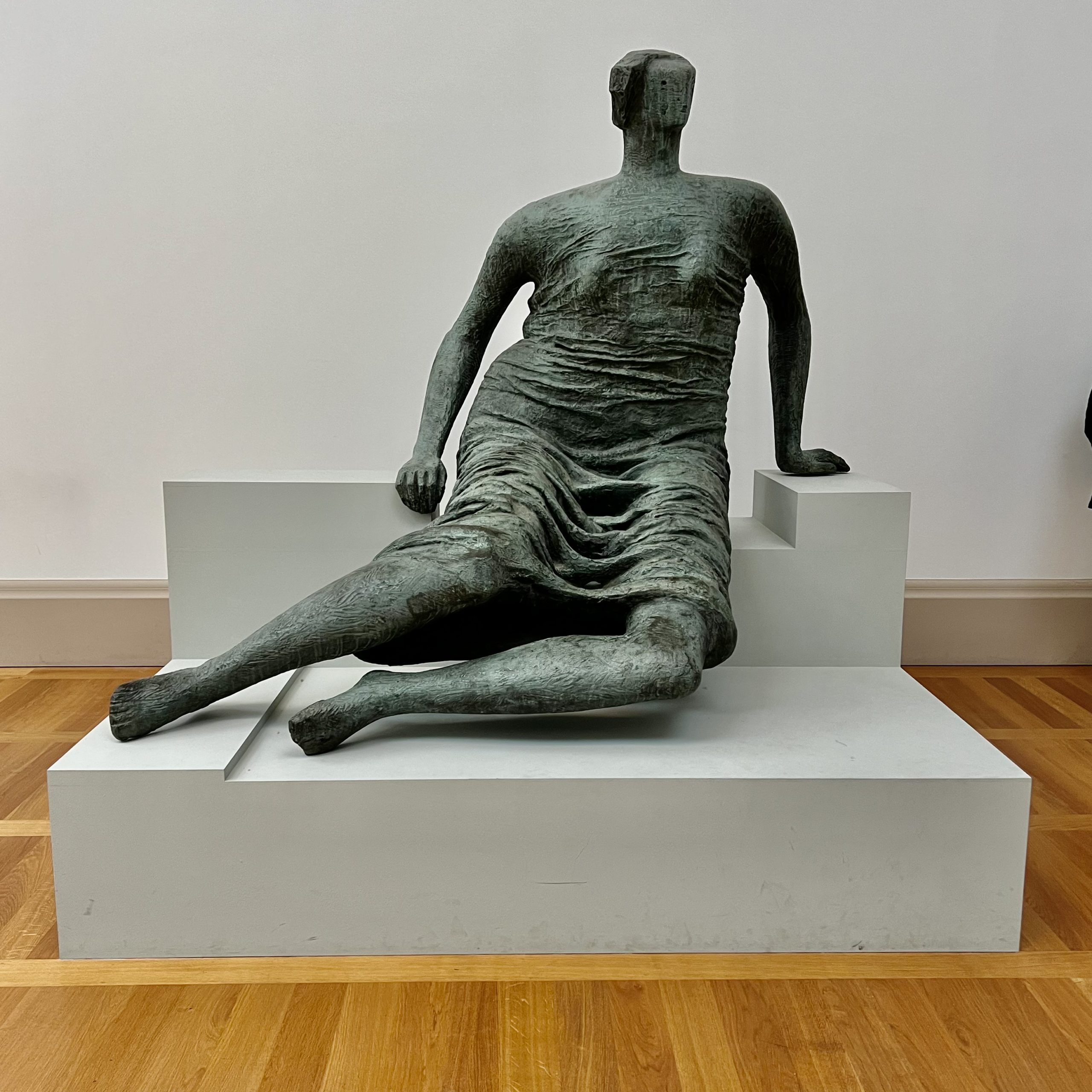
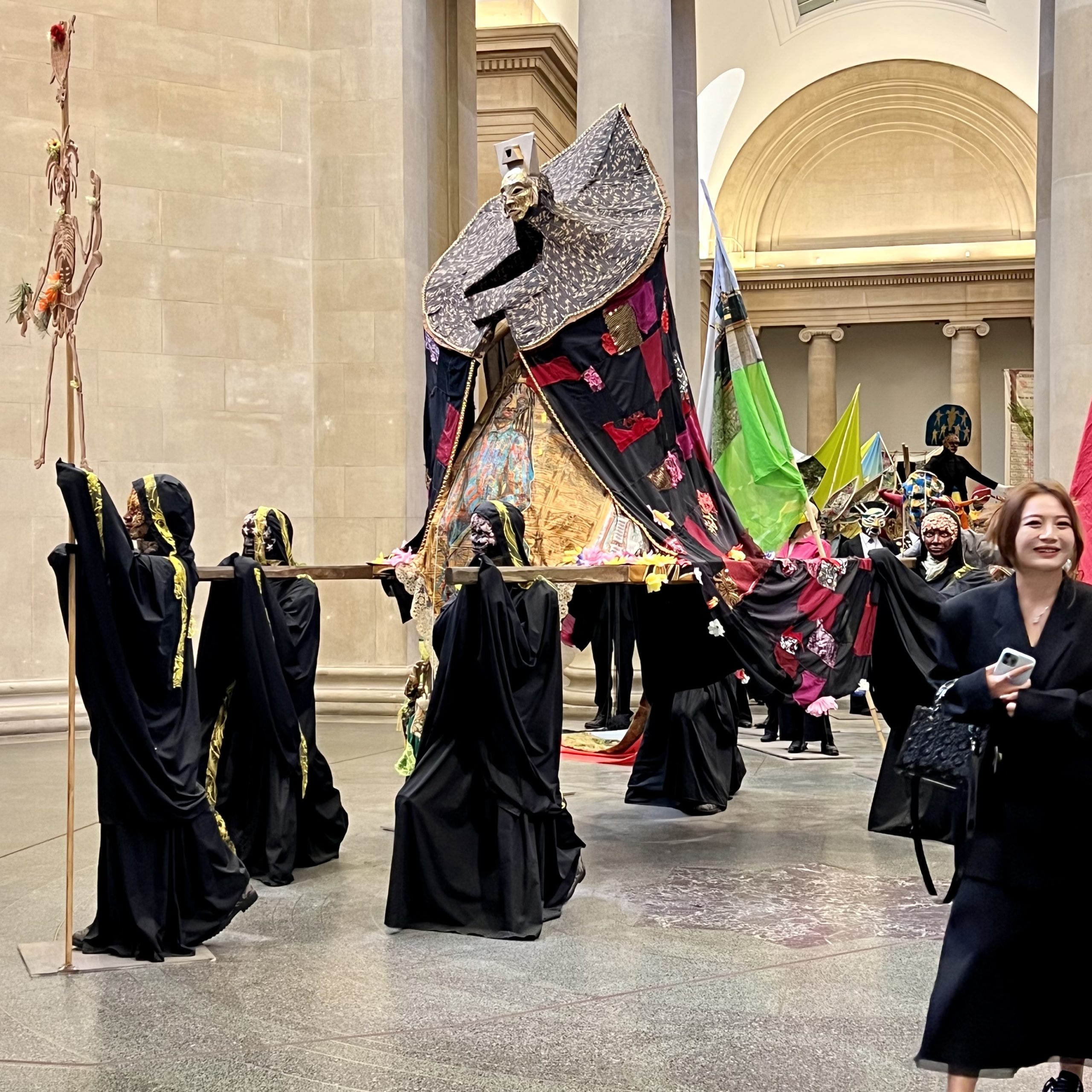
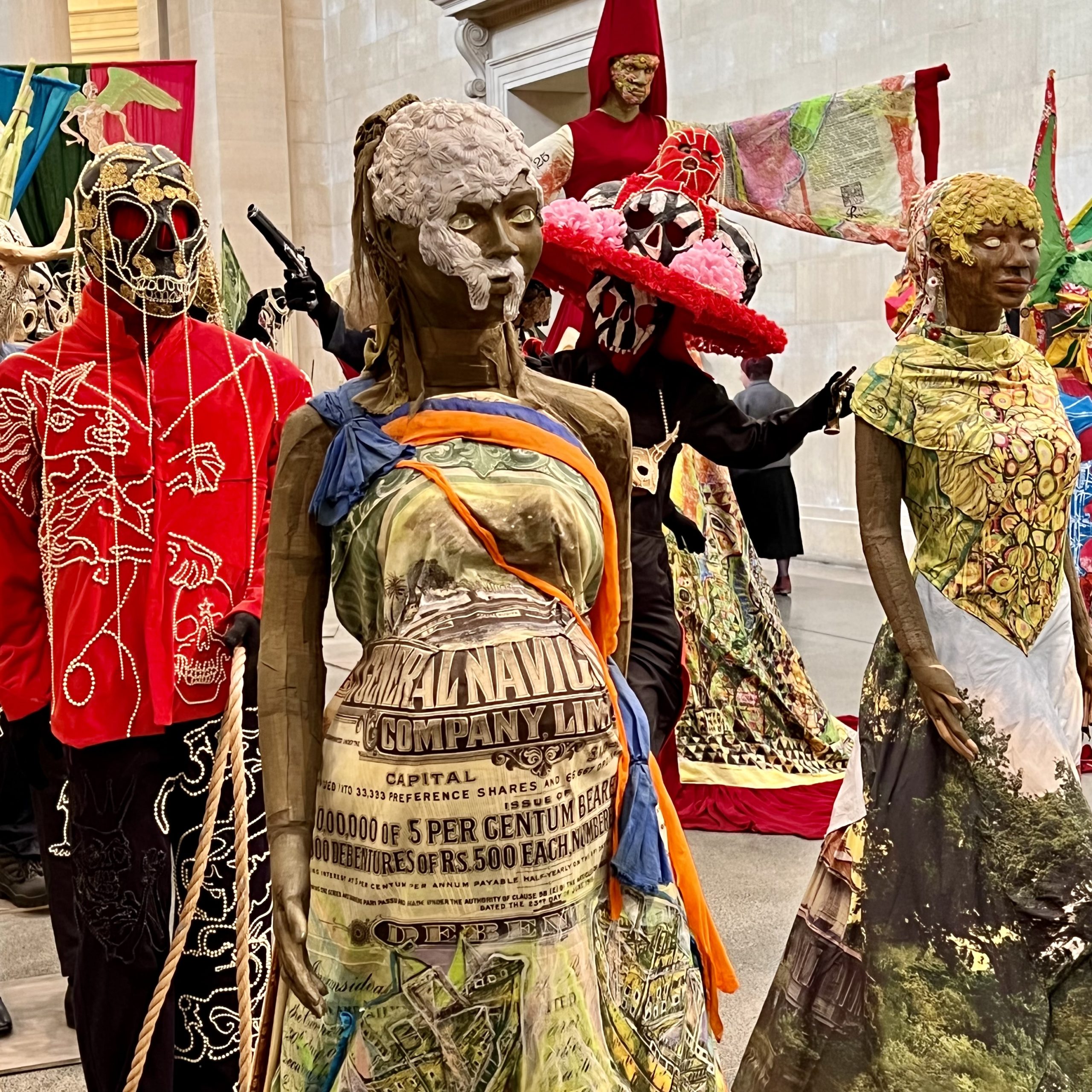
Heading Back to the Flat
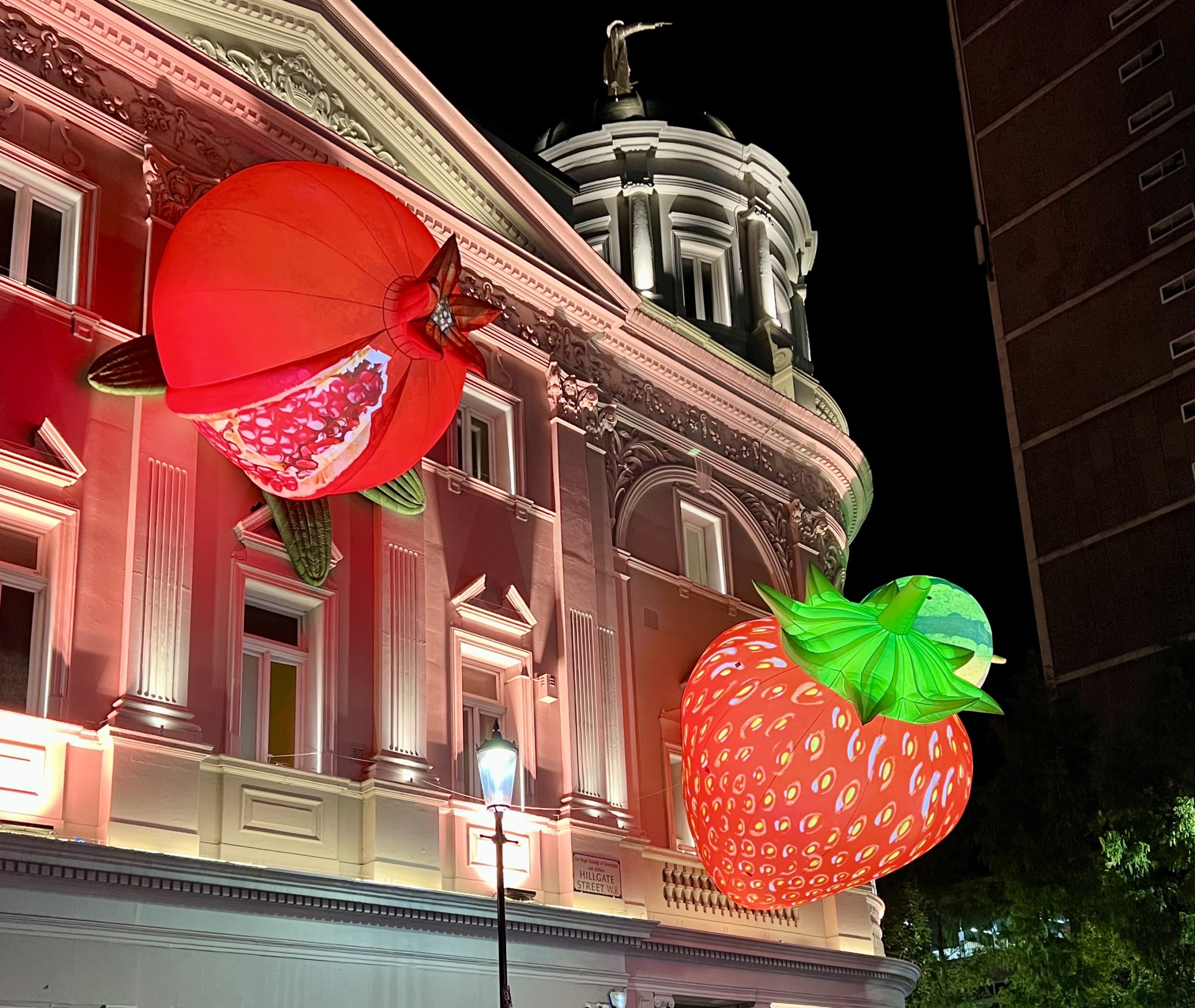
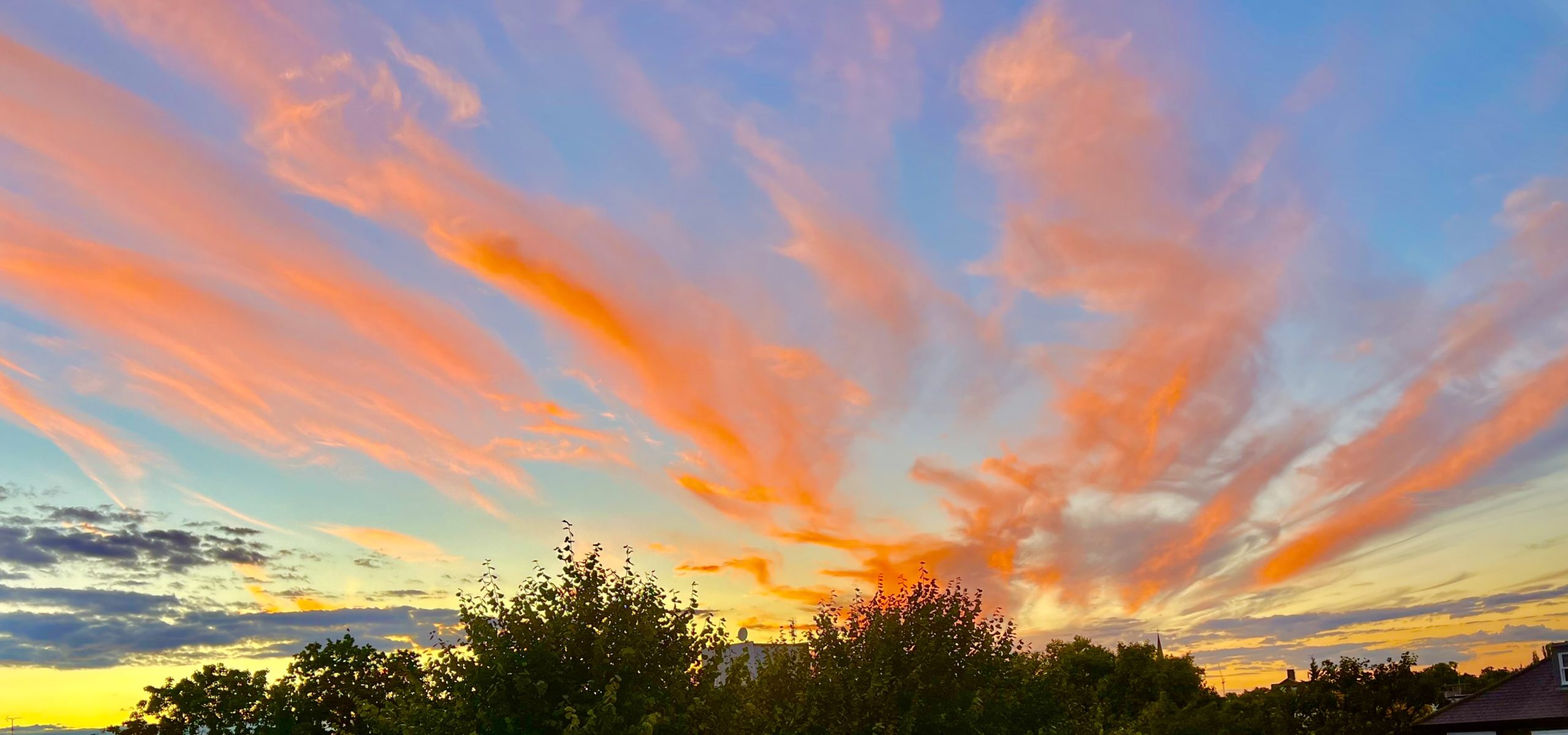
Other Important News
Sephora does not exist in London. When you are running out of eyeliner, this is critical. (To Bonnie, not Robert!) The substitute is Boots Beauty stores. The first two Bonnie tried were pathetic. Even the one next to Harrods. Few brands, few choices of items, many items out of stock. Although finally Robert steered a reluctant Bonnie into a Boots on Kensington High Street and at last a good Dior eyeliner was purchased.
The lack of Sephora or competitors is surprising because unlike Parisian women, London women wear makeup. Many wear at least a subtle lipstick. But lots do eyes and strong lips. This includes pale English girls like Bonnie, as well as the new English girls whose grandparents came from the Middle East or South Asia. Darker skin color and dramatic eyes and lips look great. But you can still pick out Americans, who, like Kardasians, cover all skin with foundation and subtle shading.
Food
Or as they say in London “Food”
